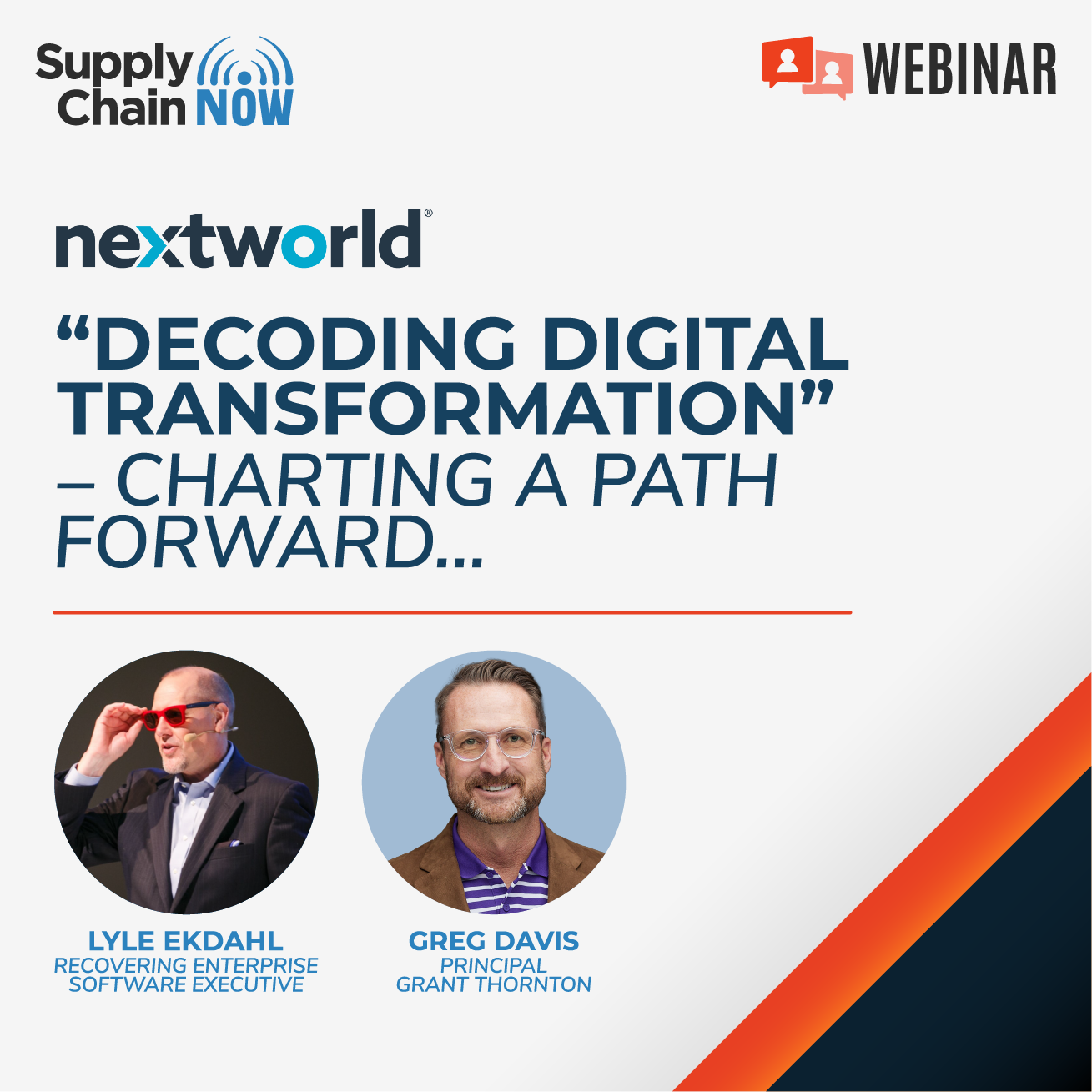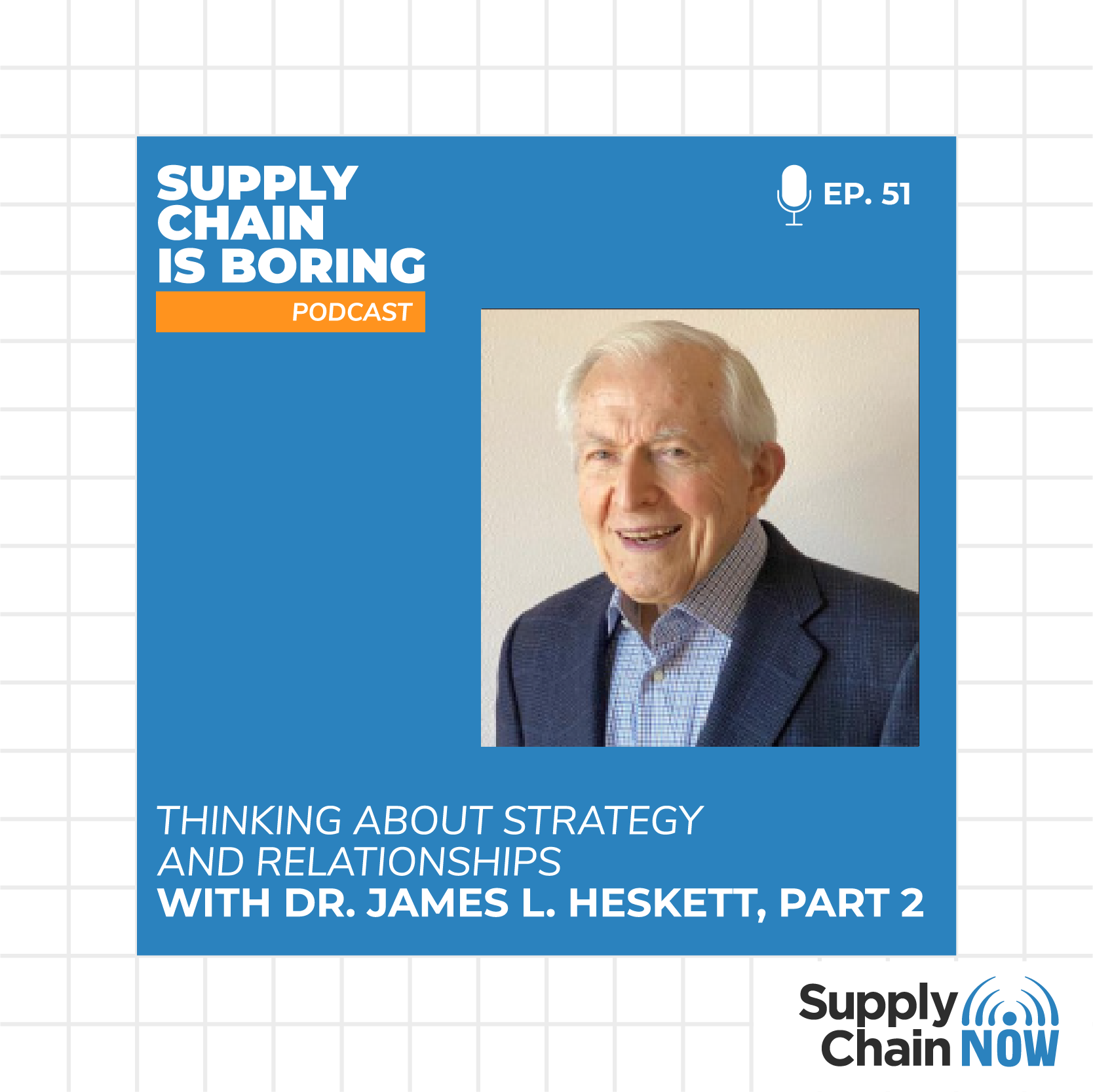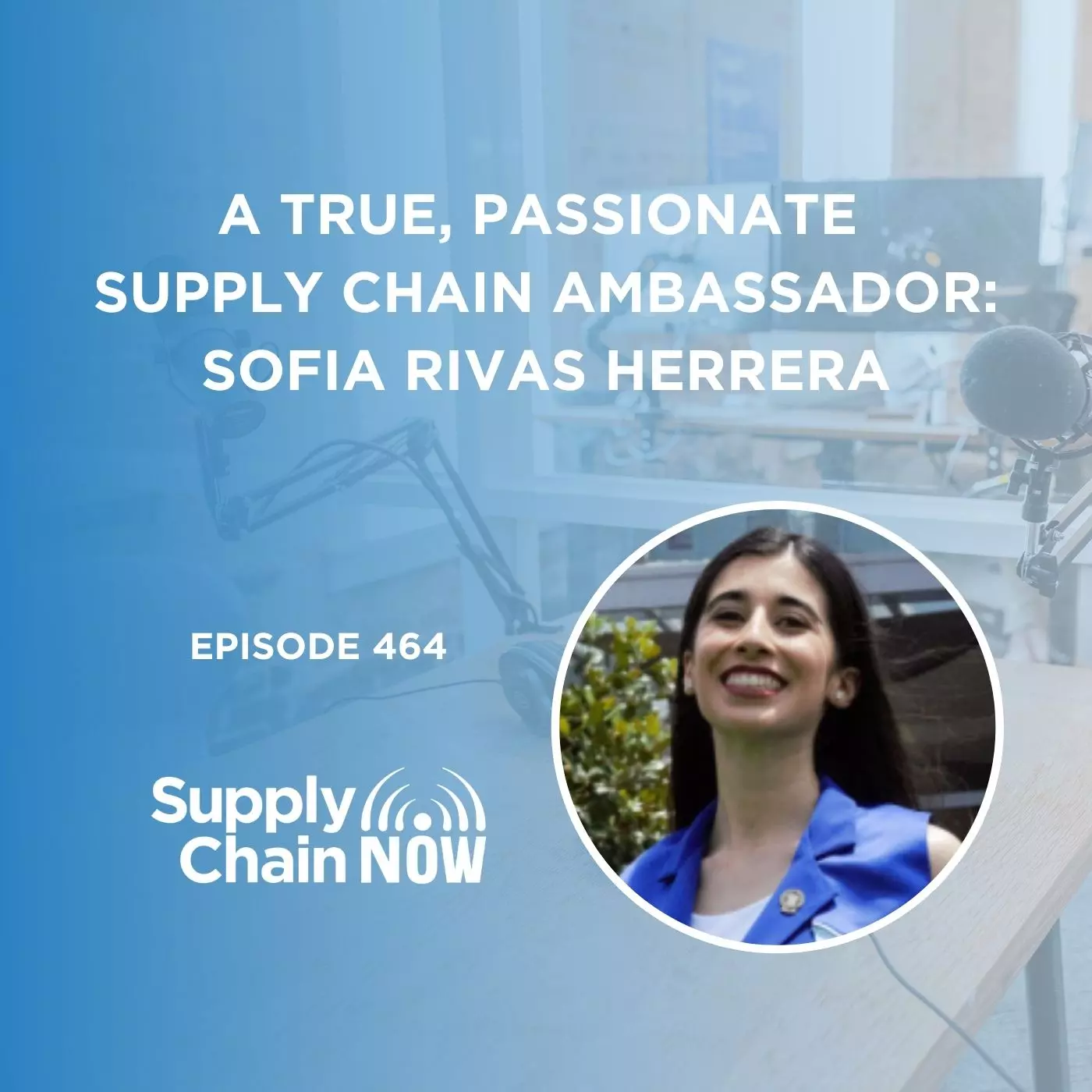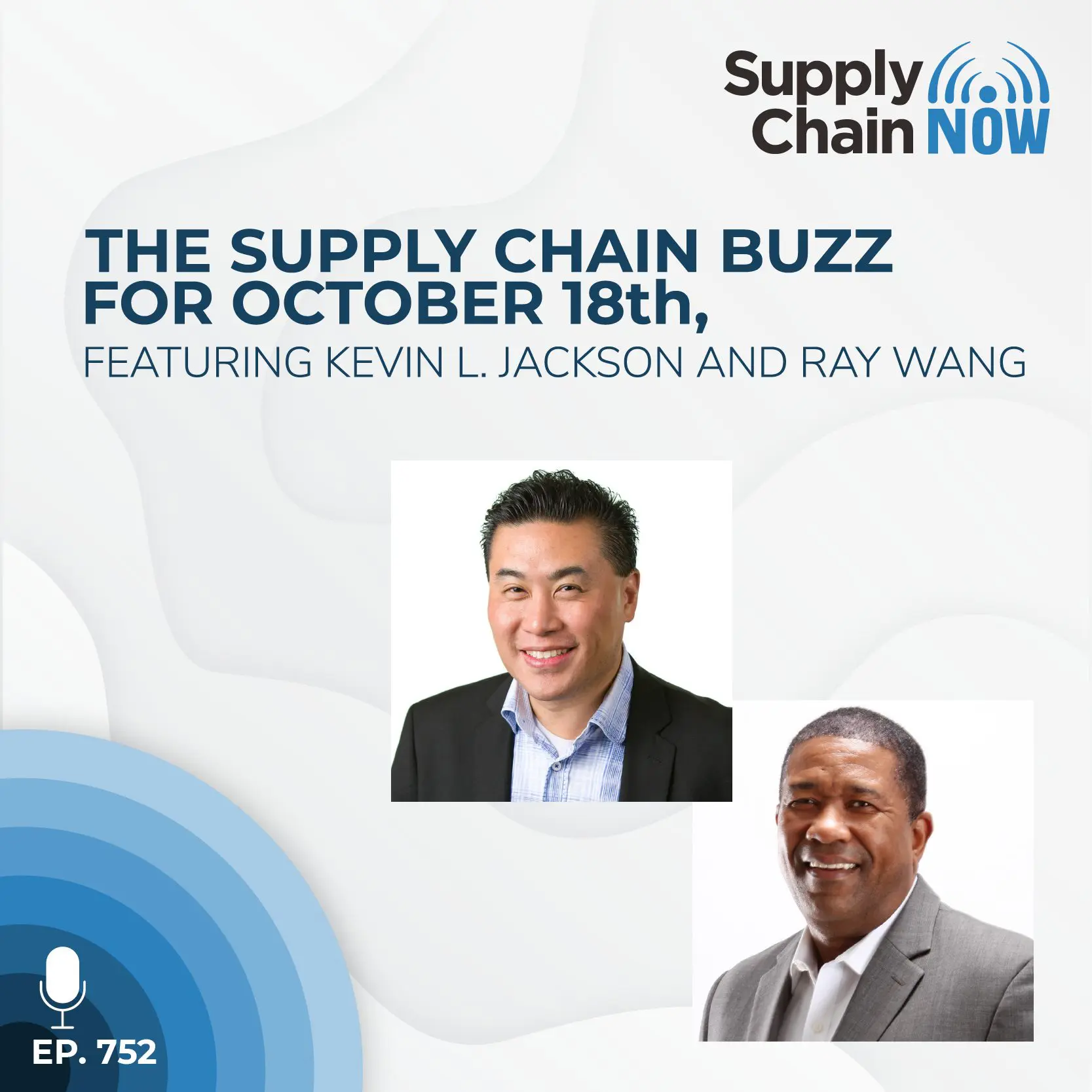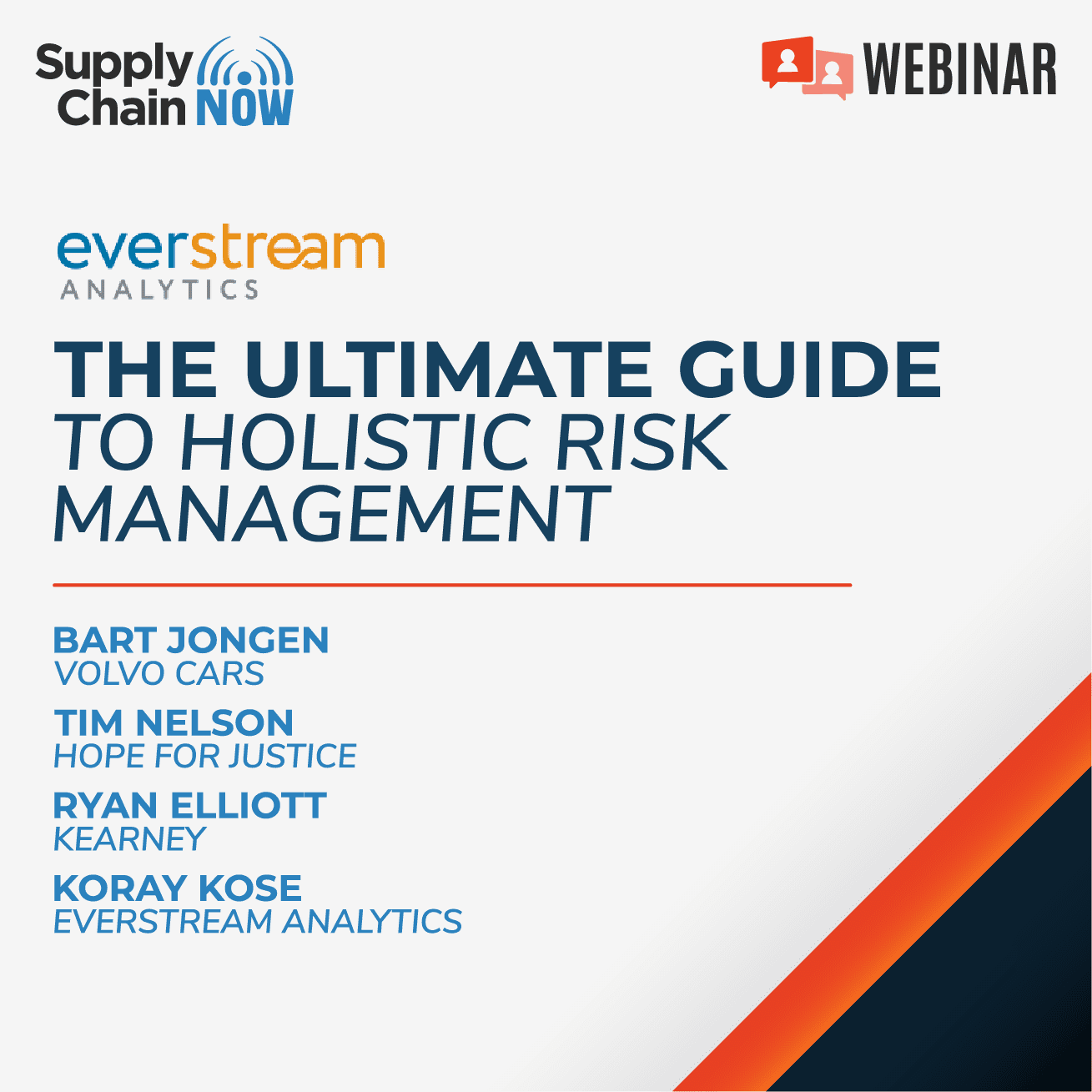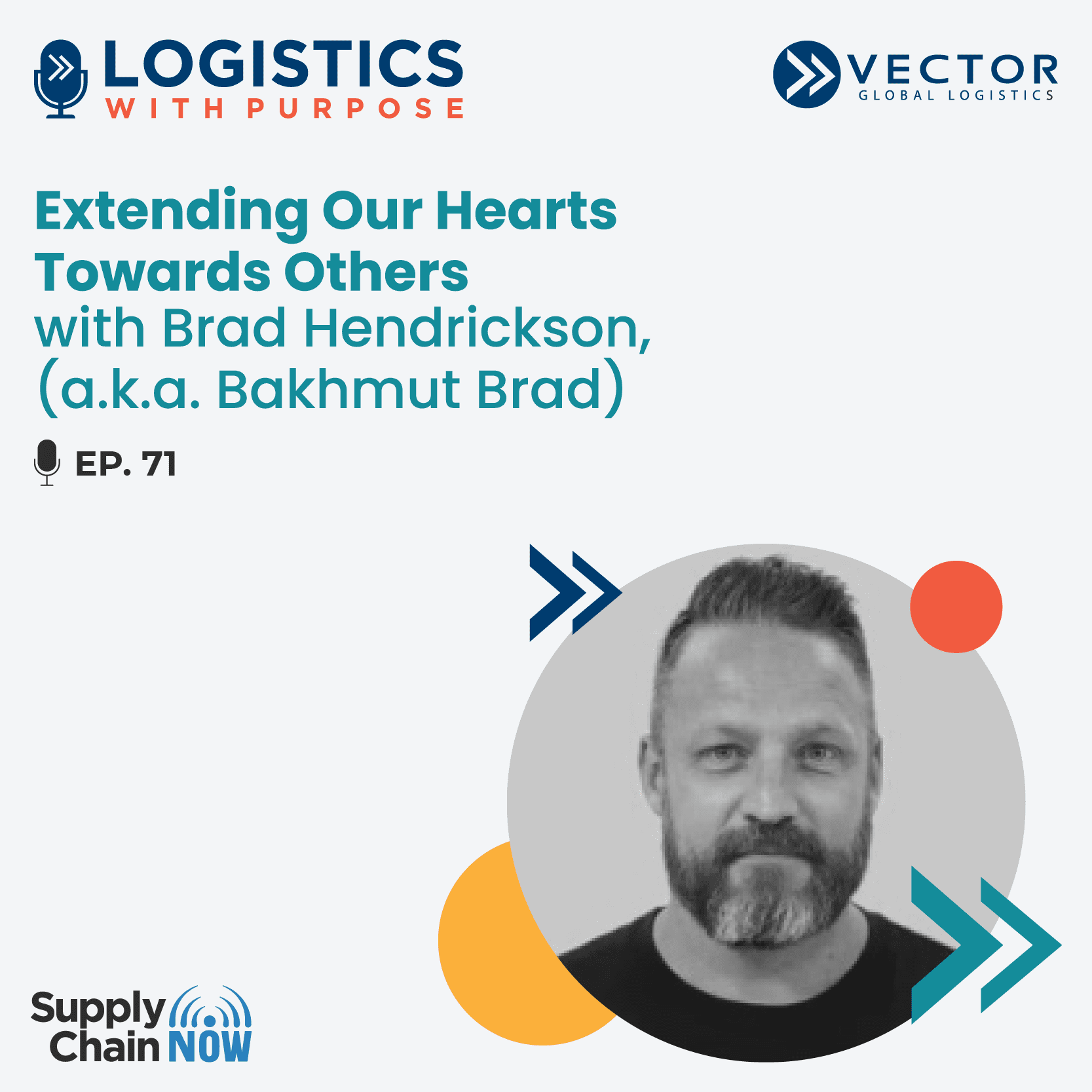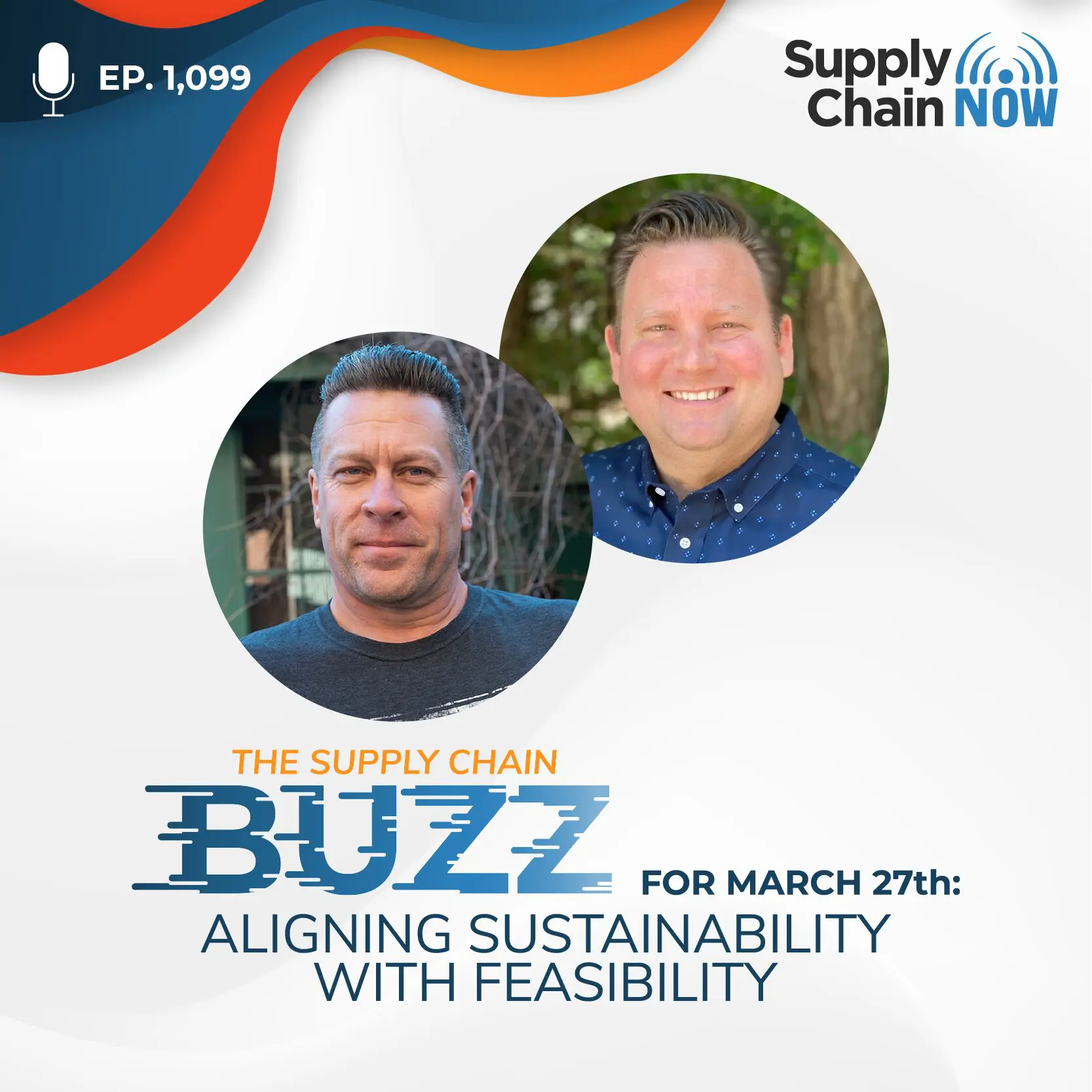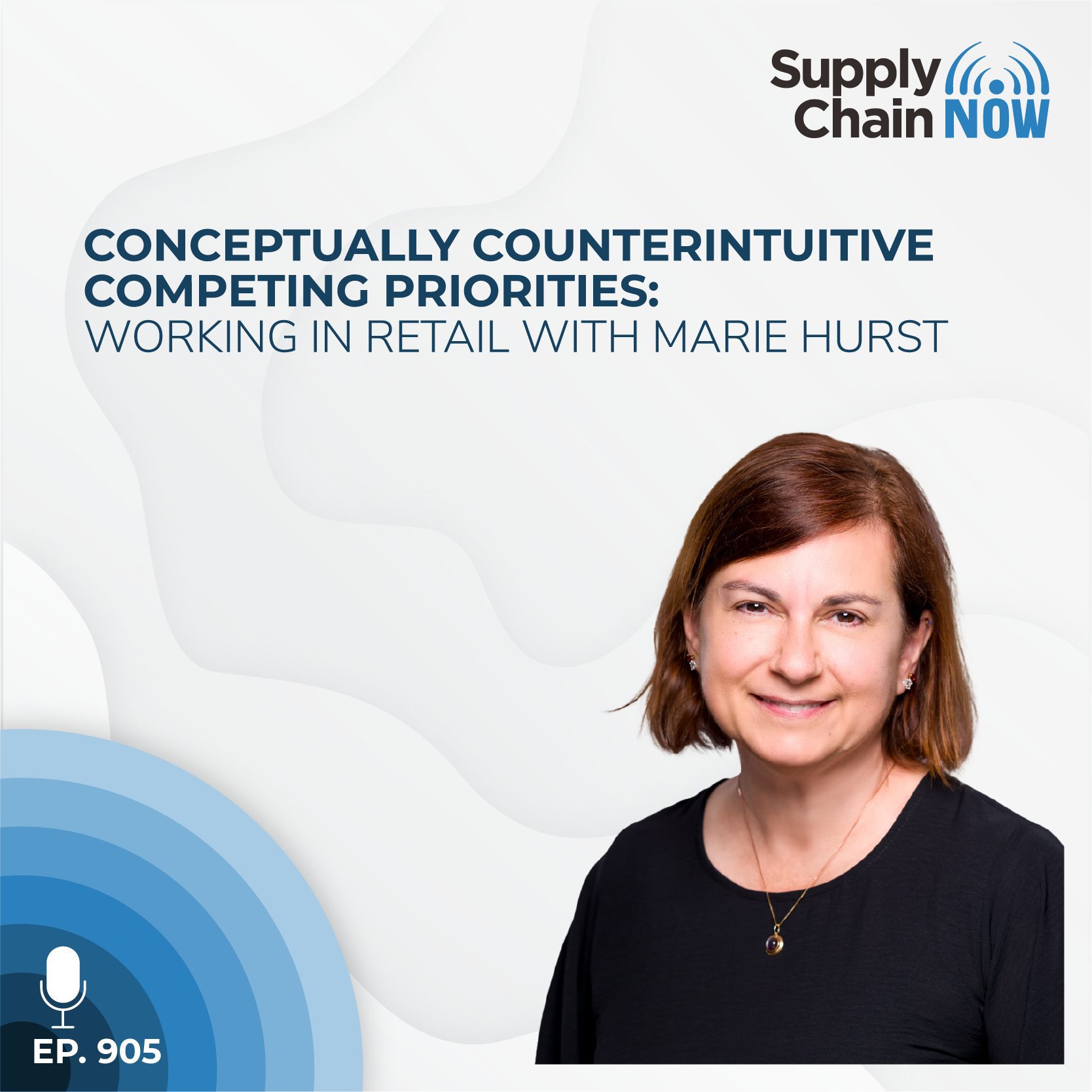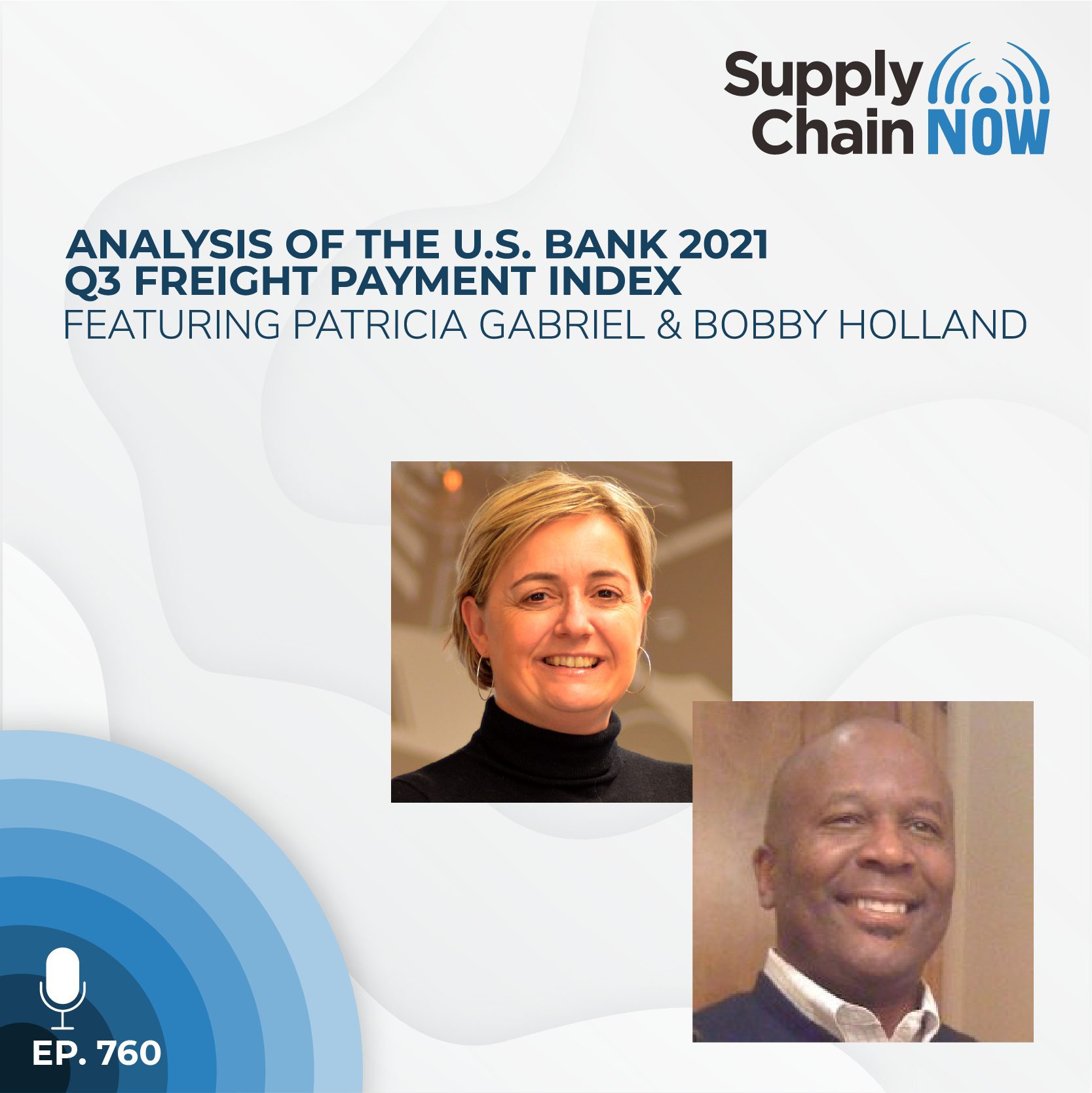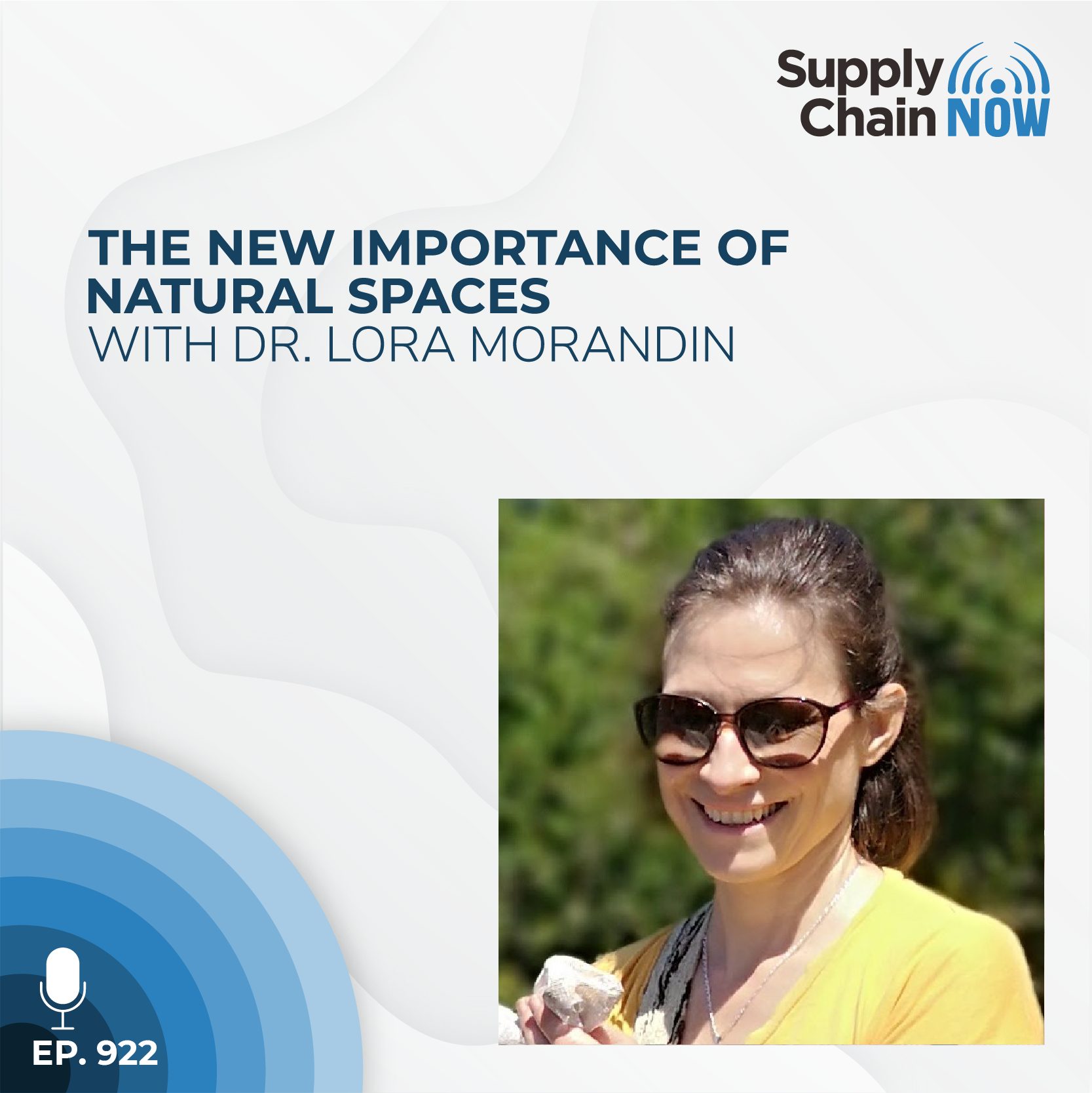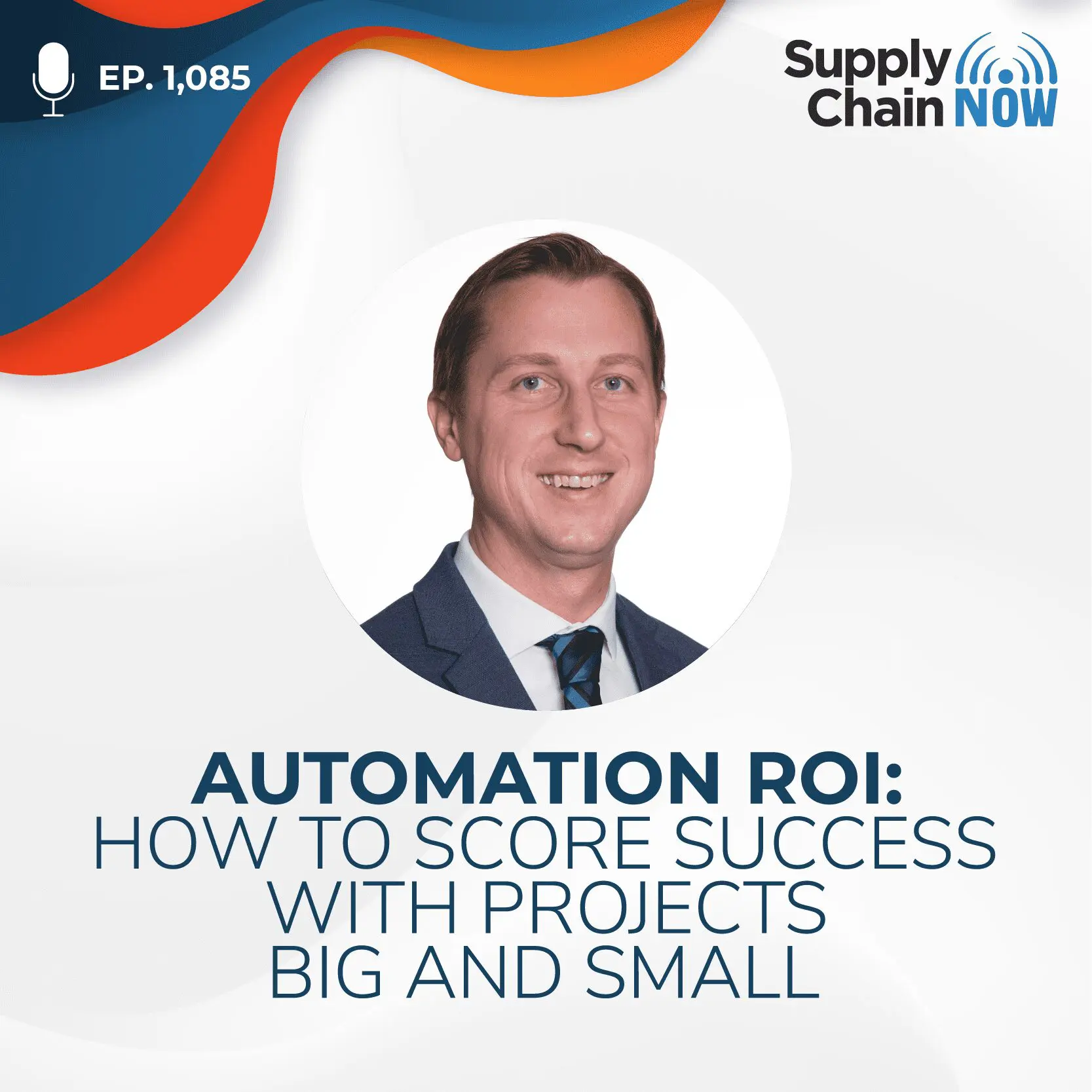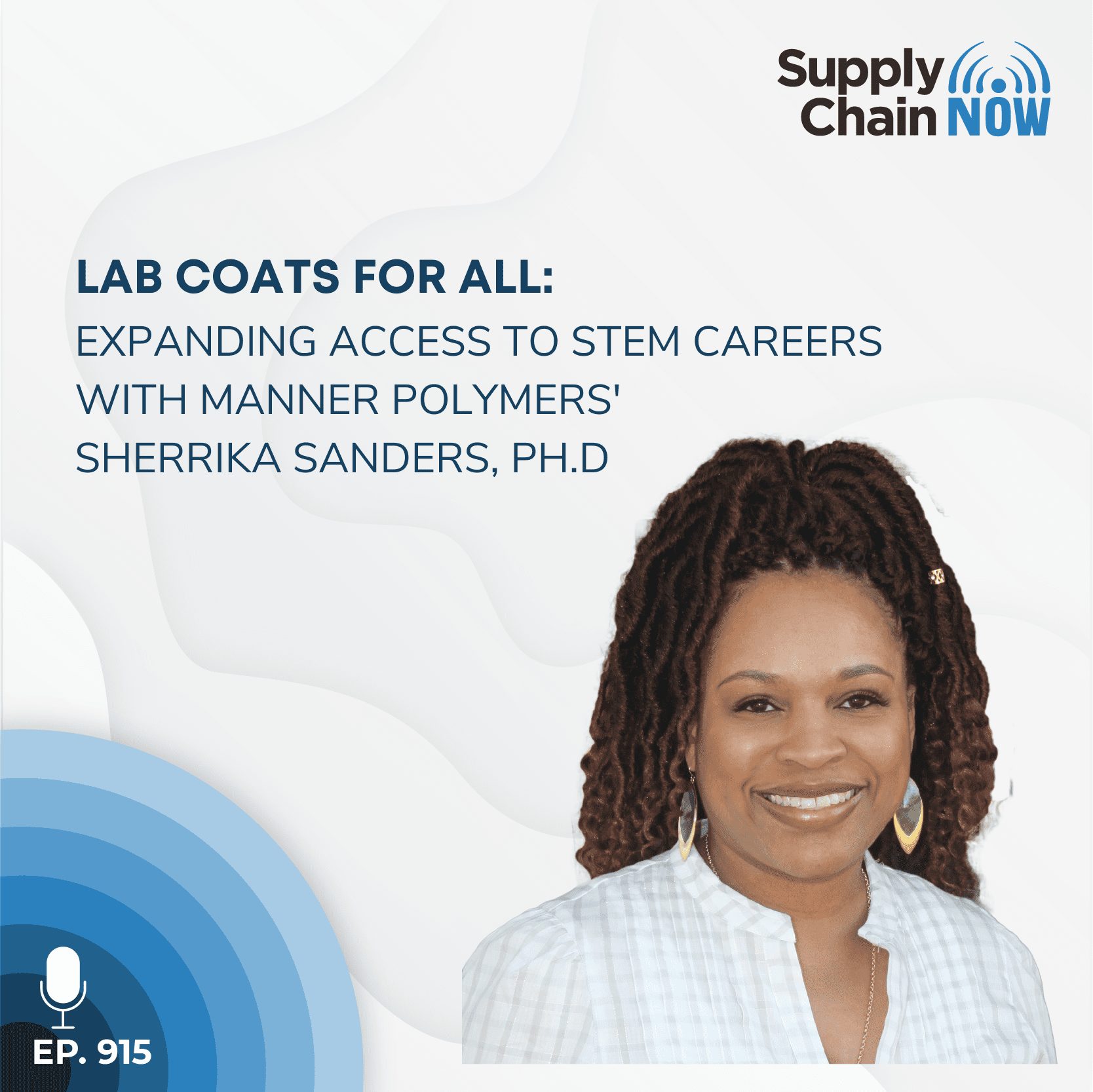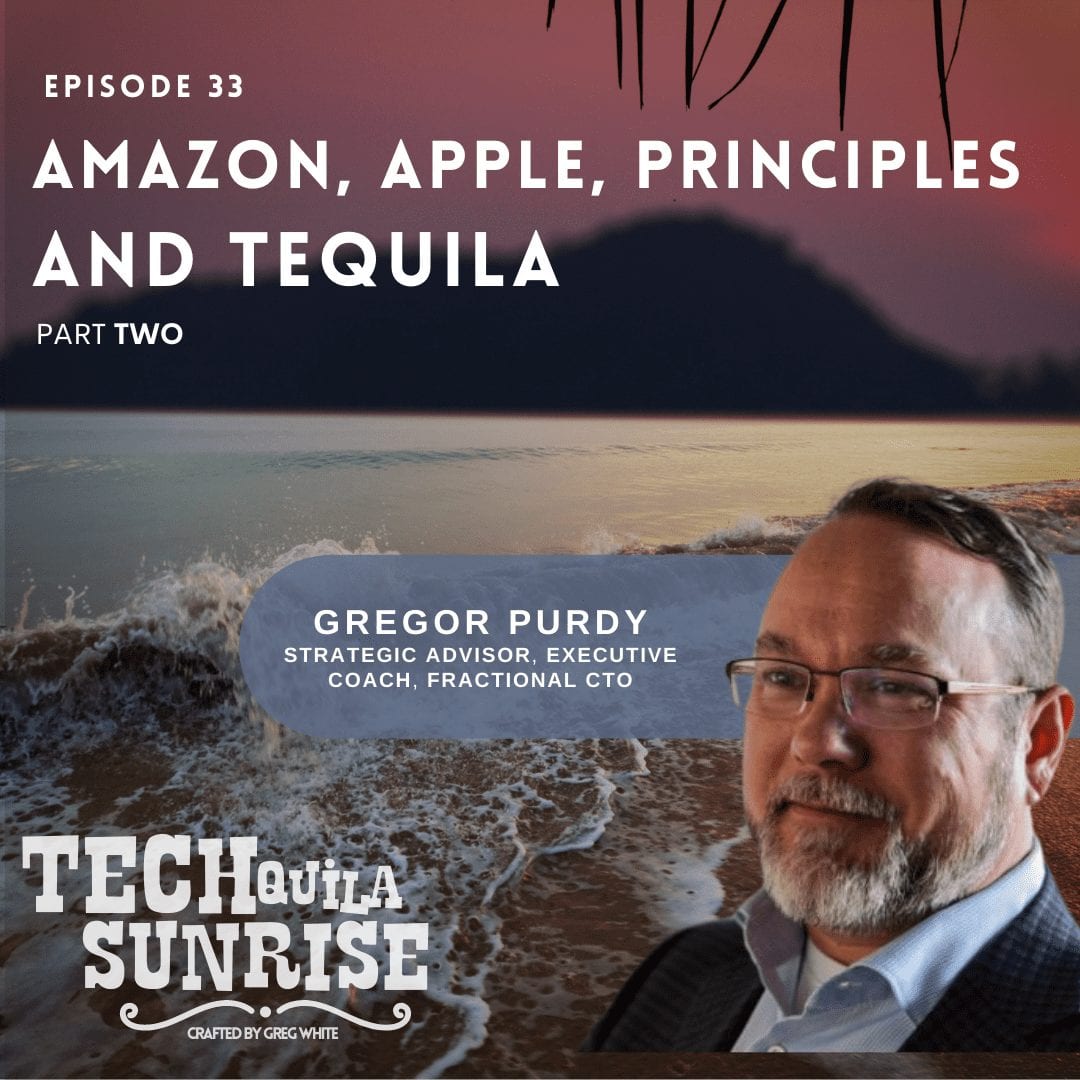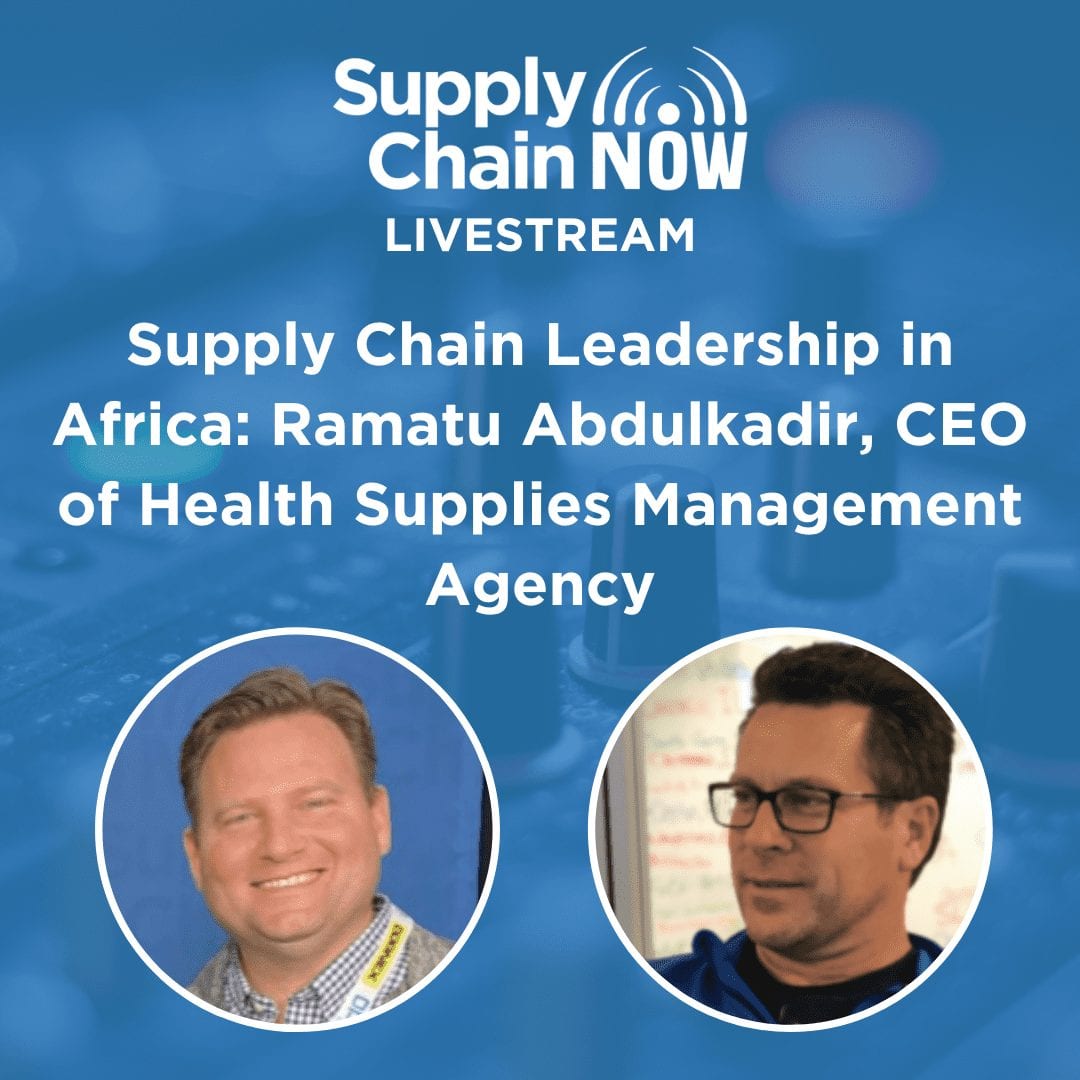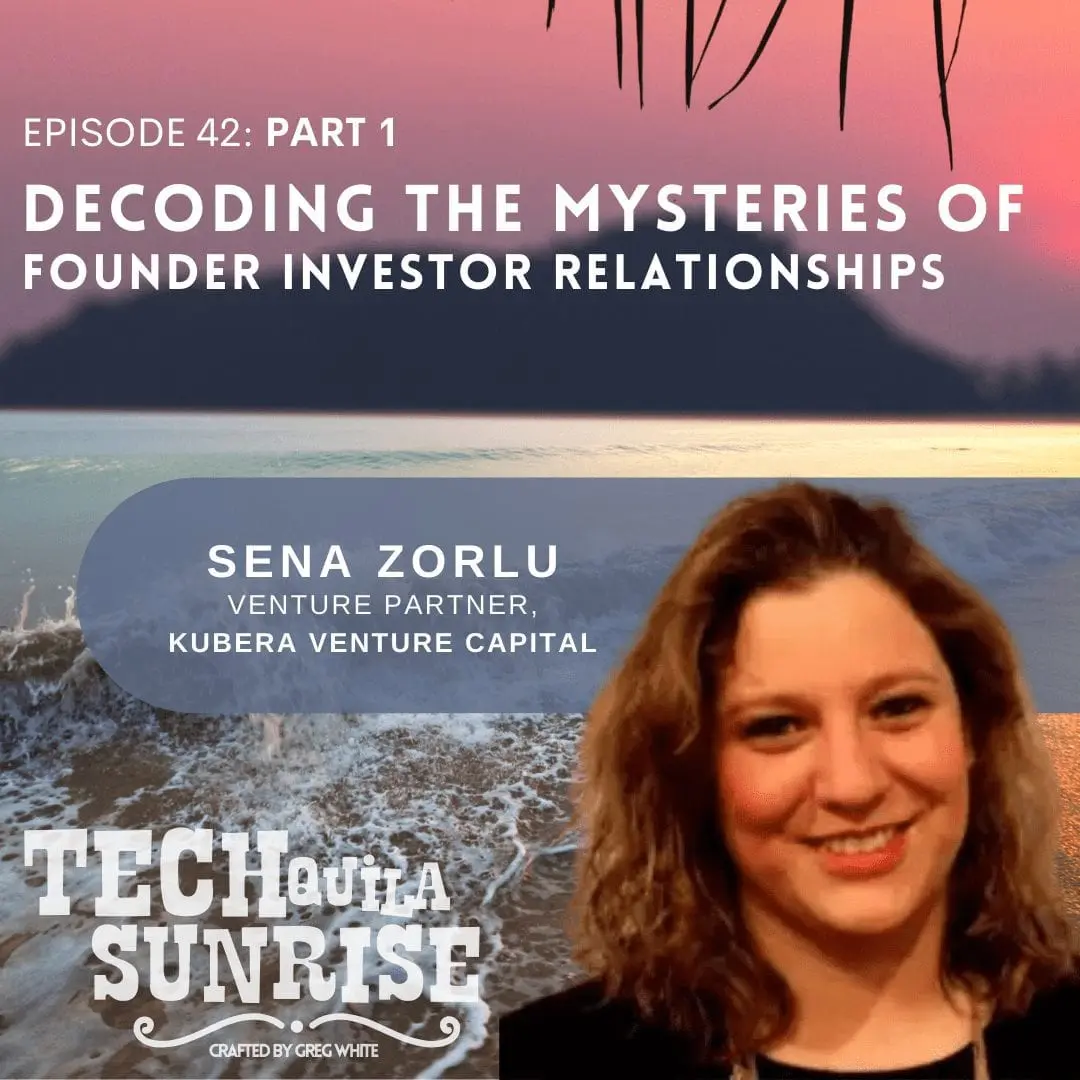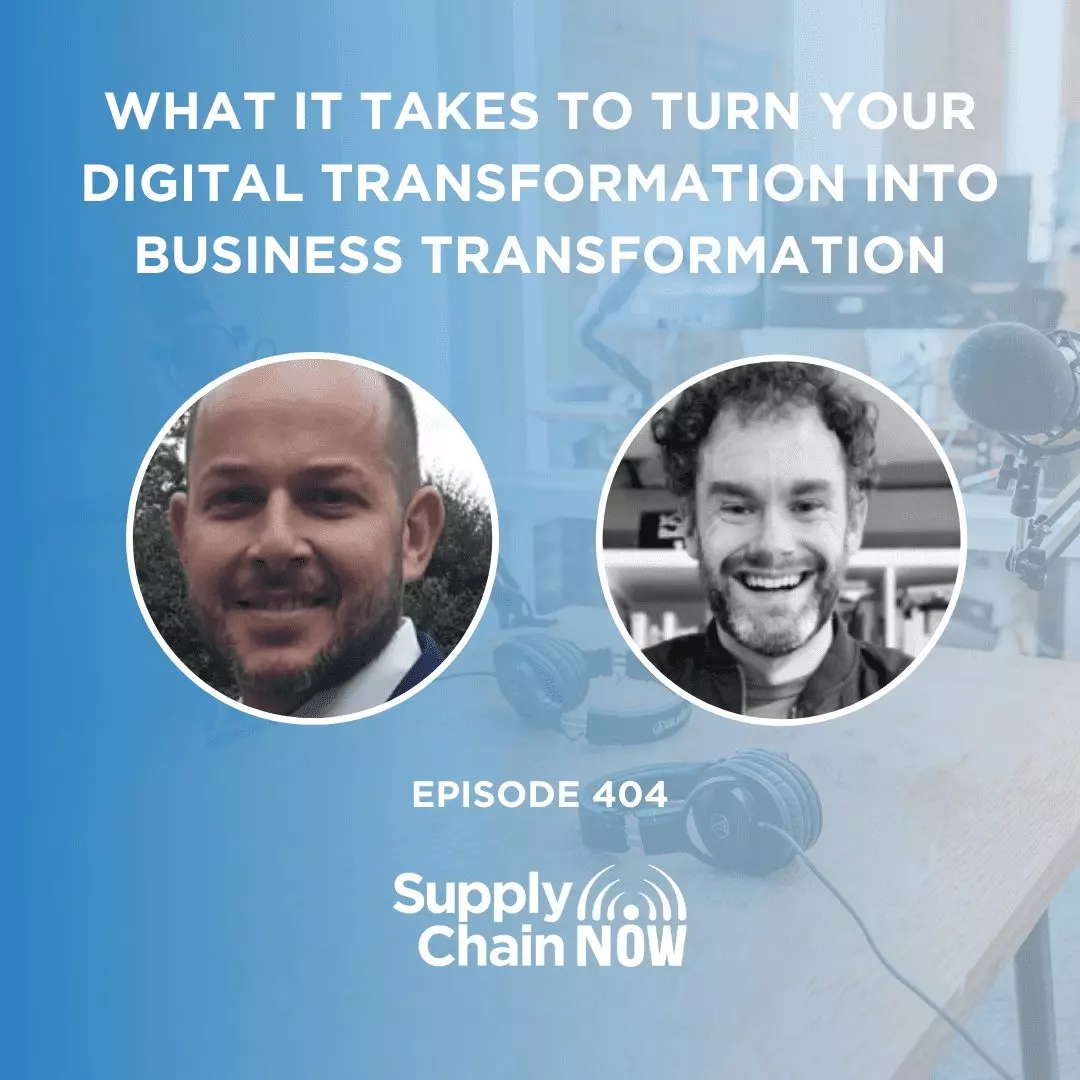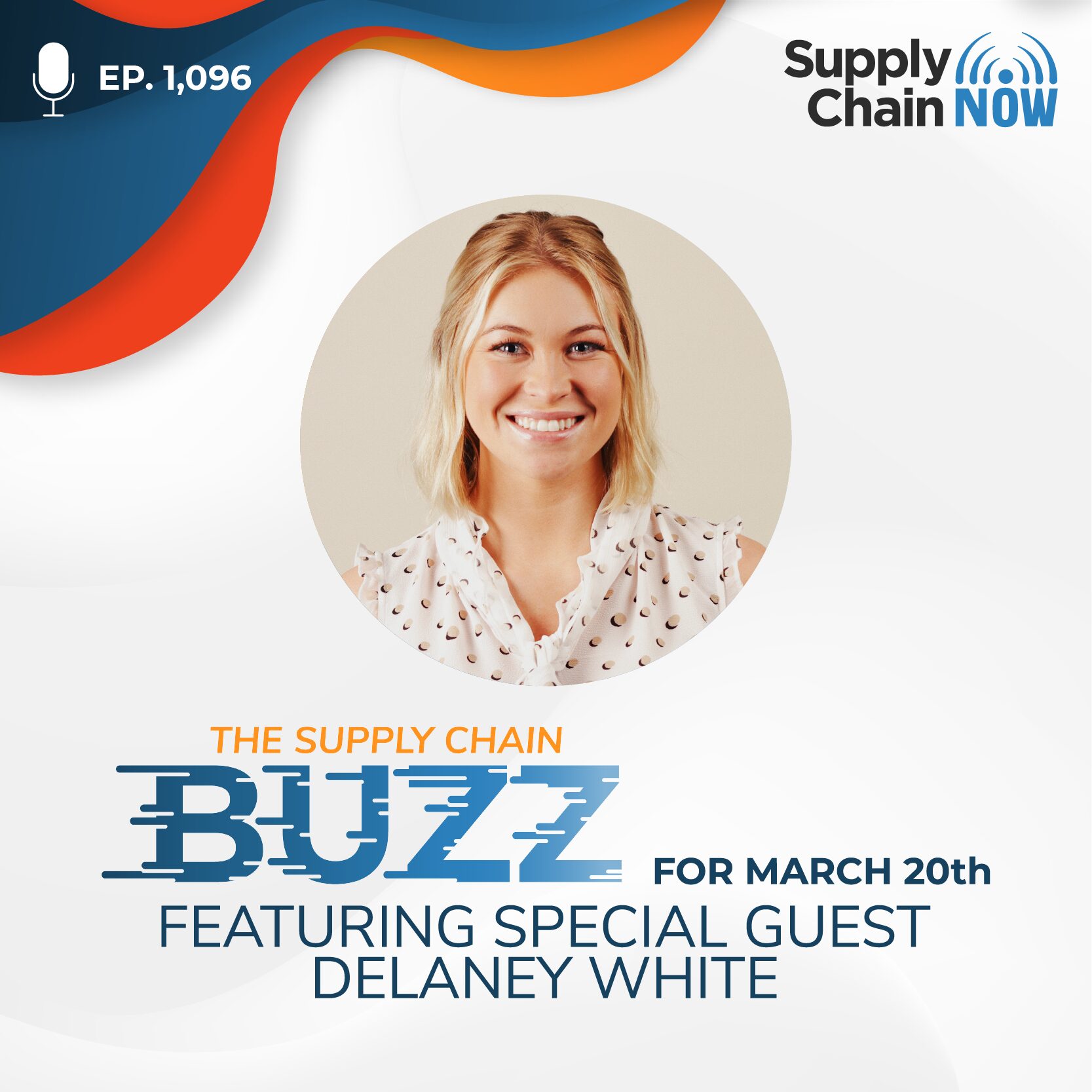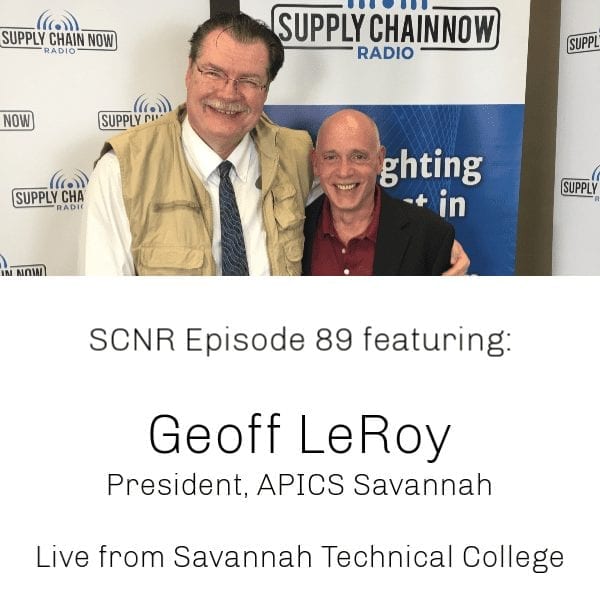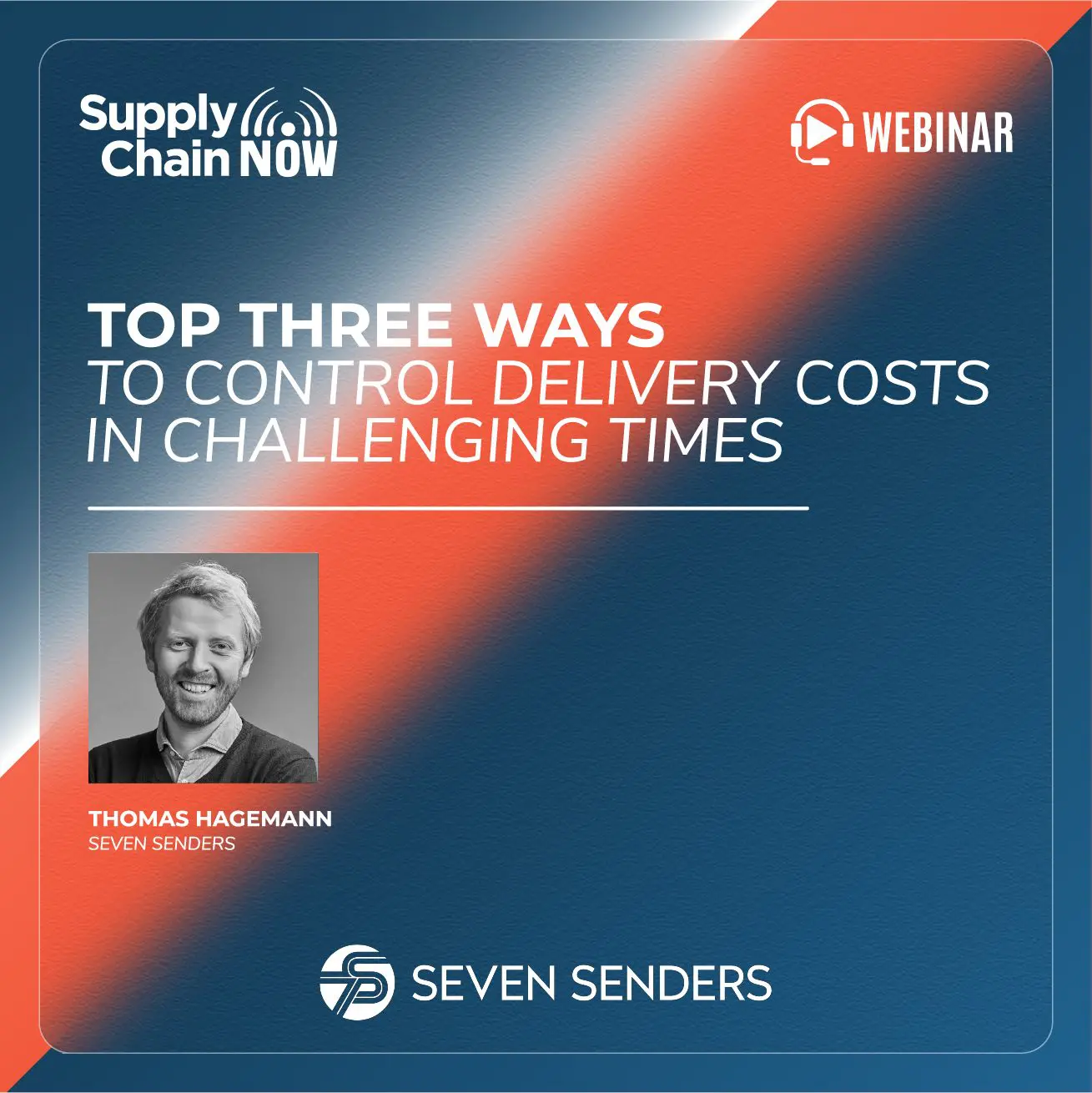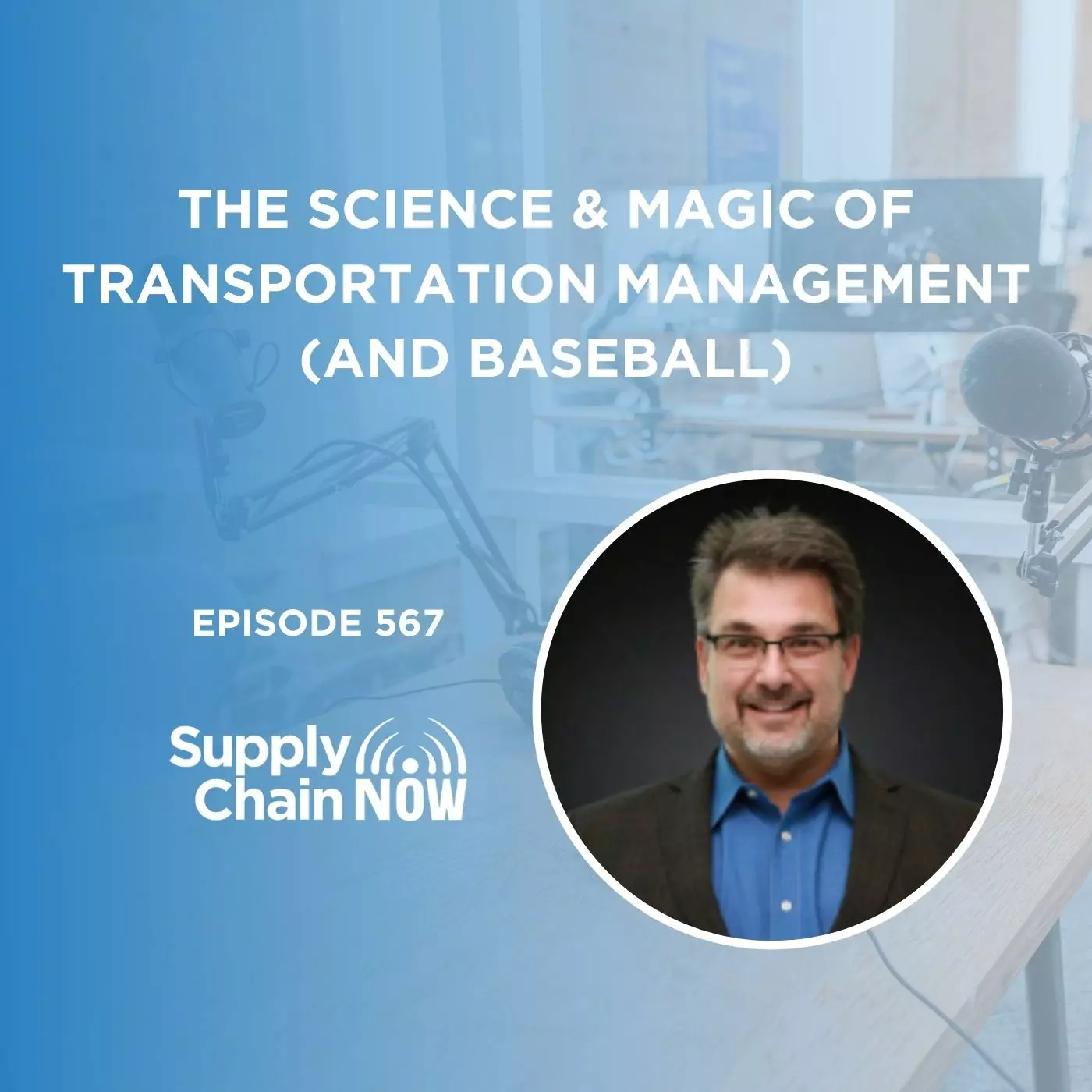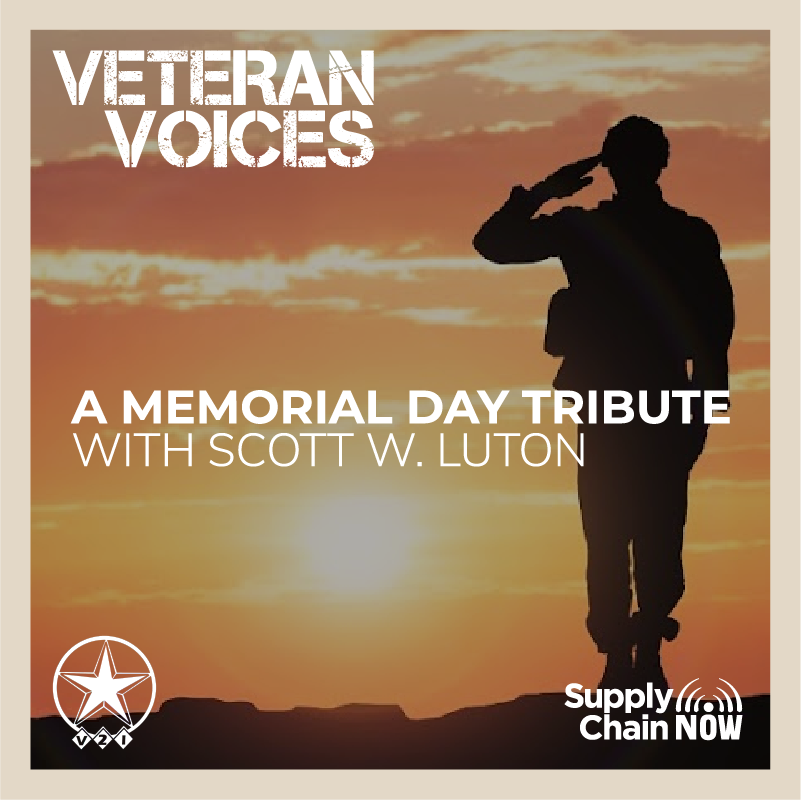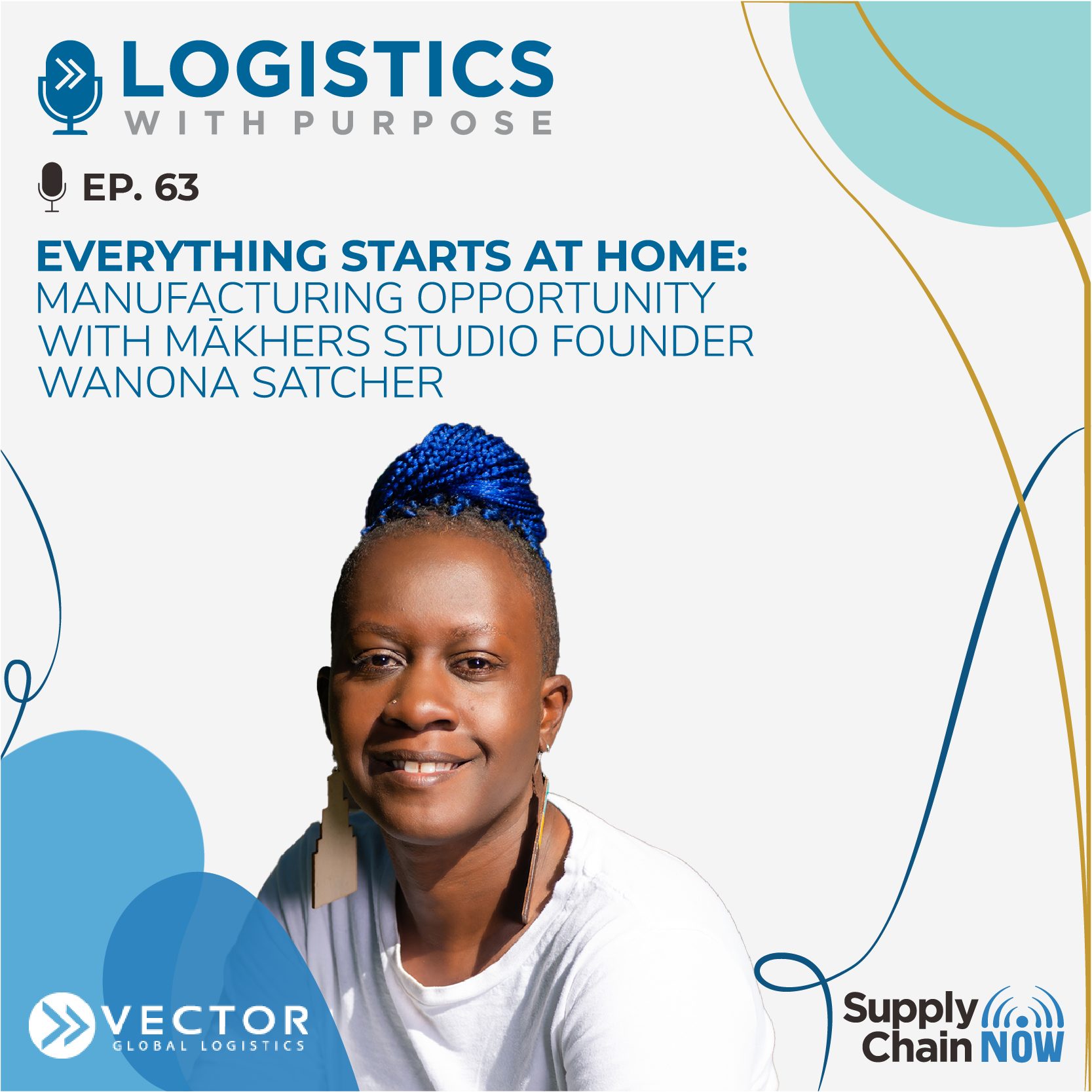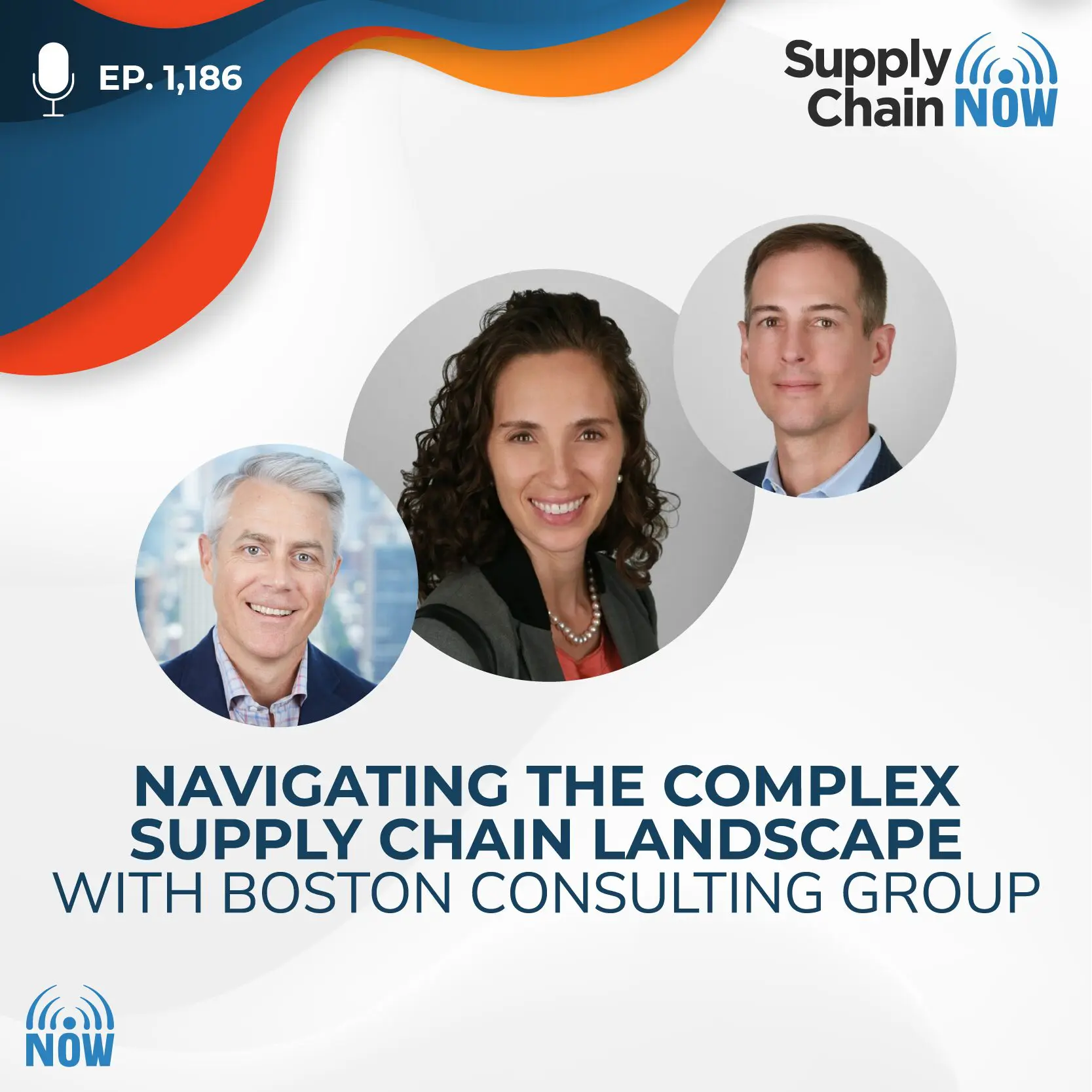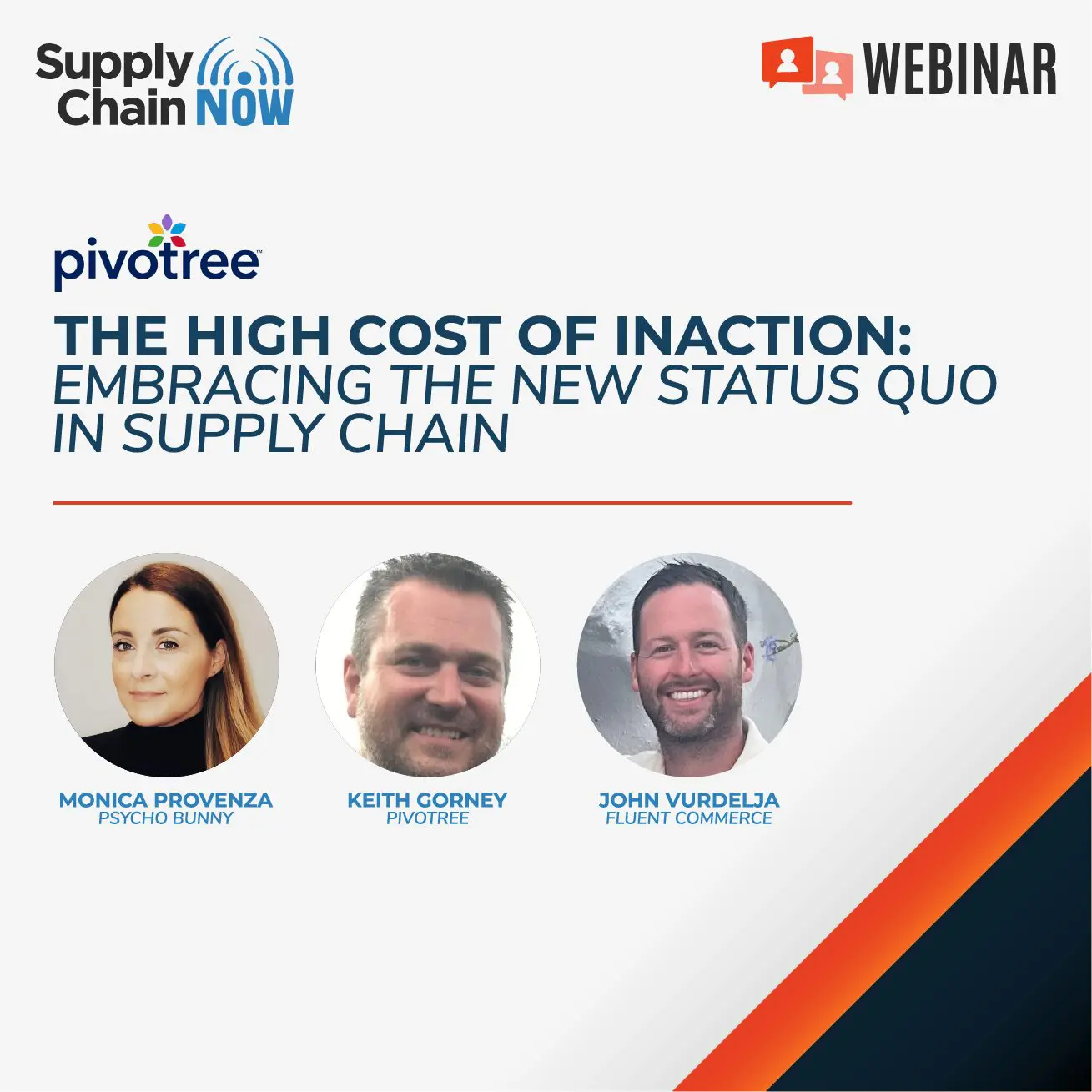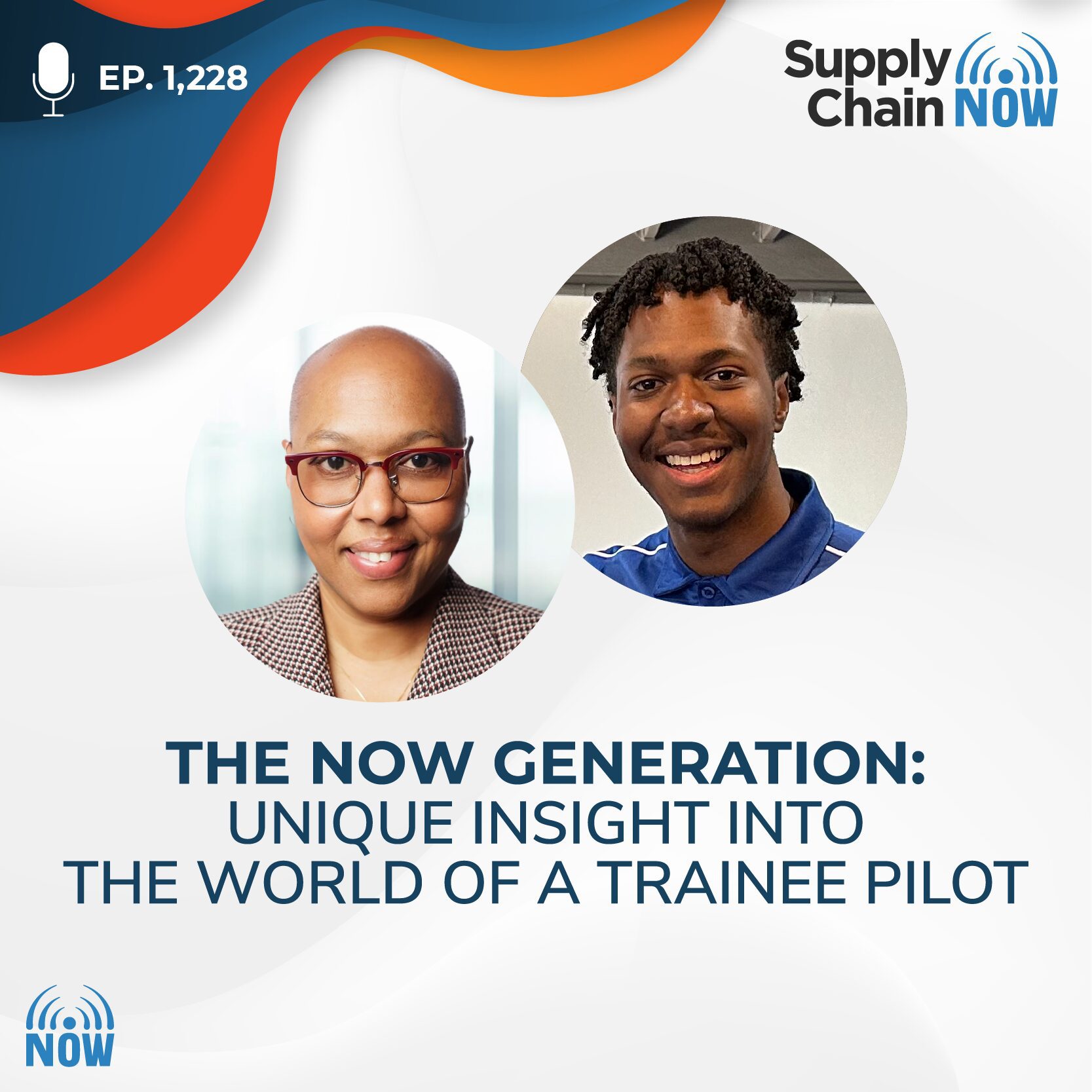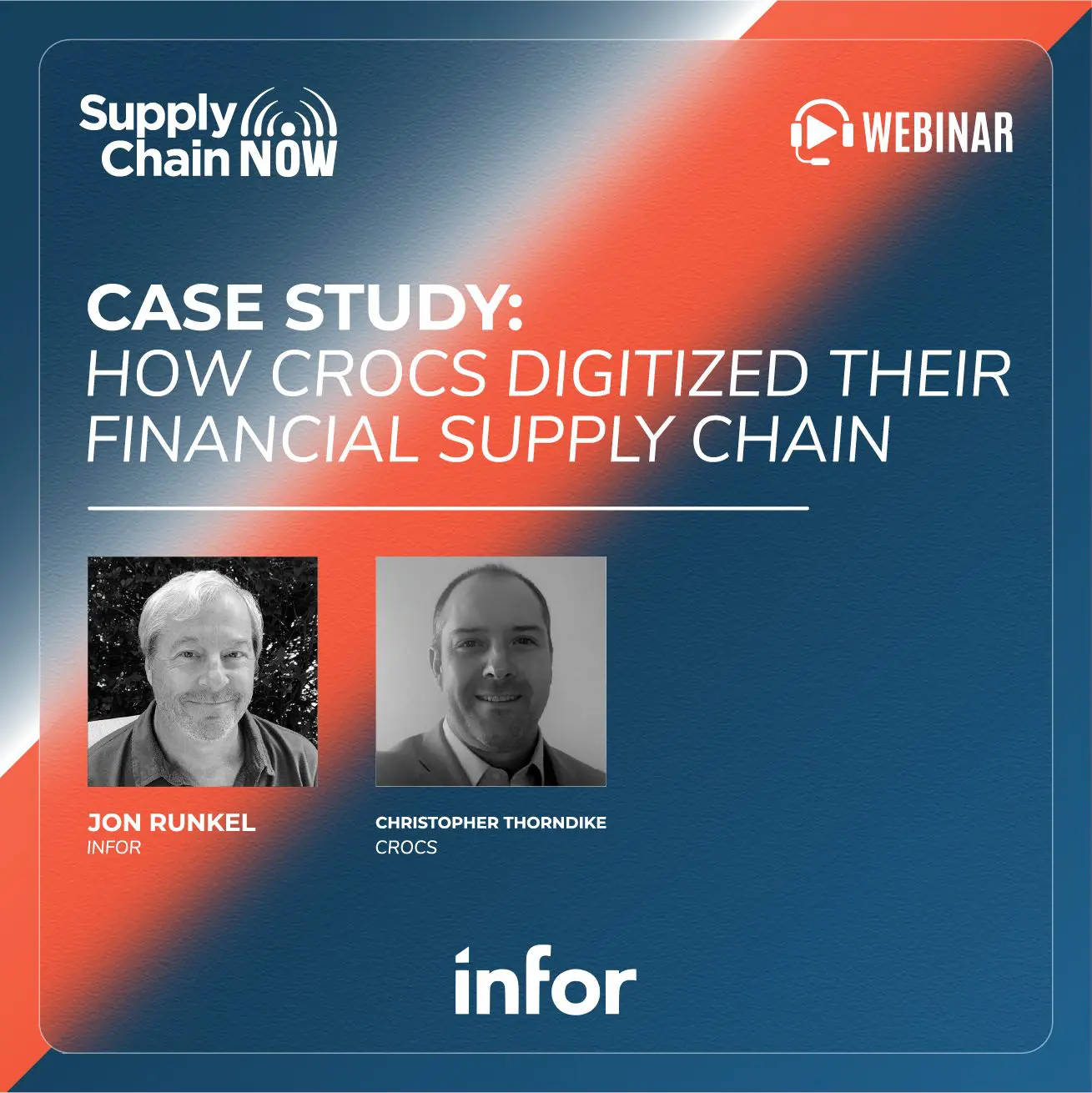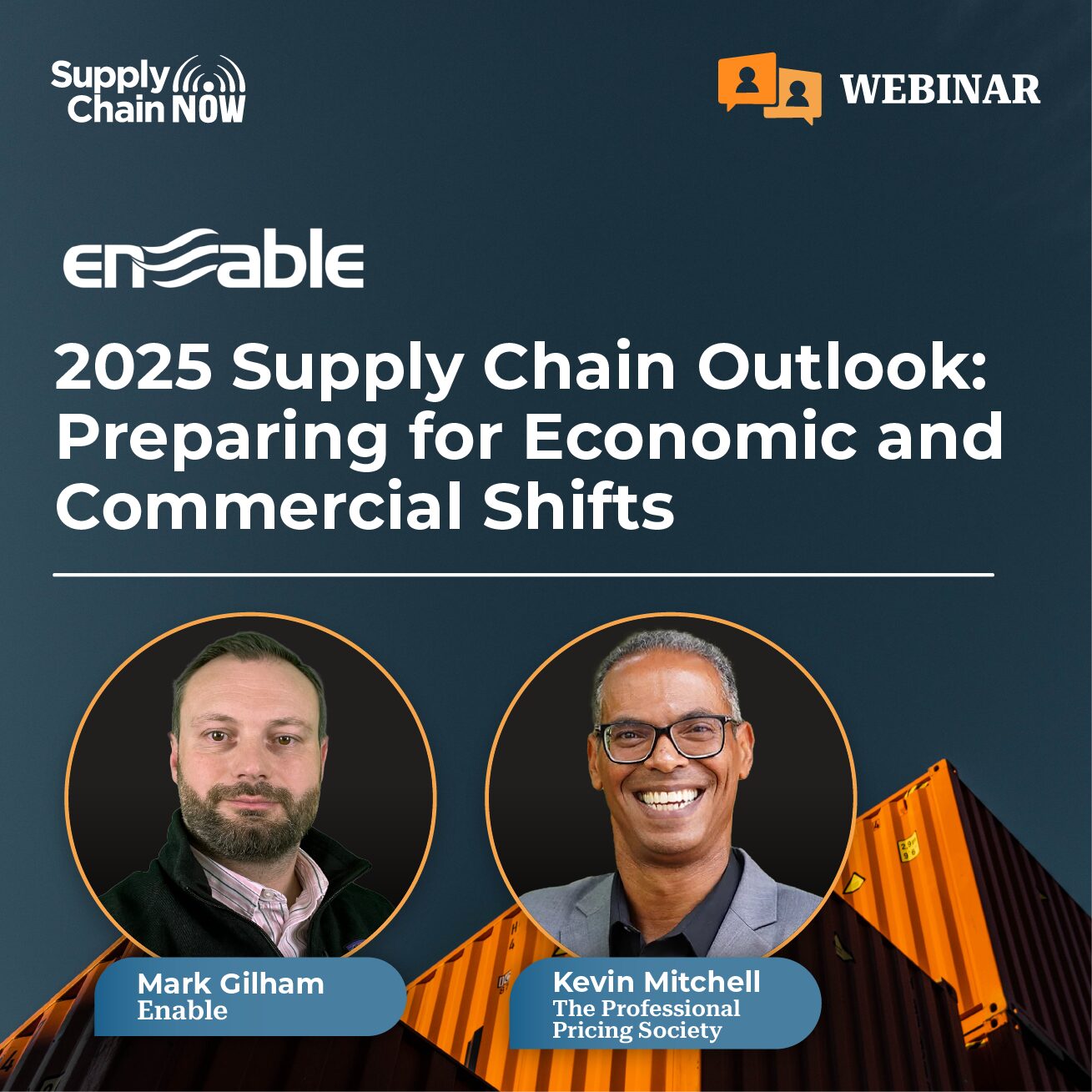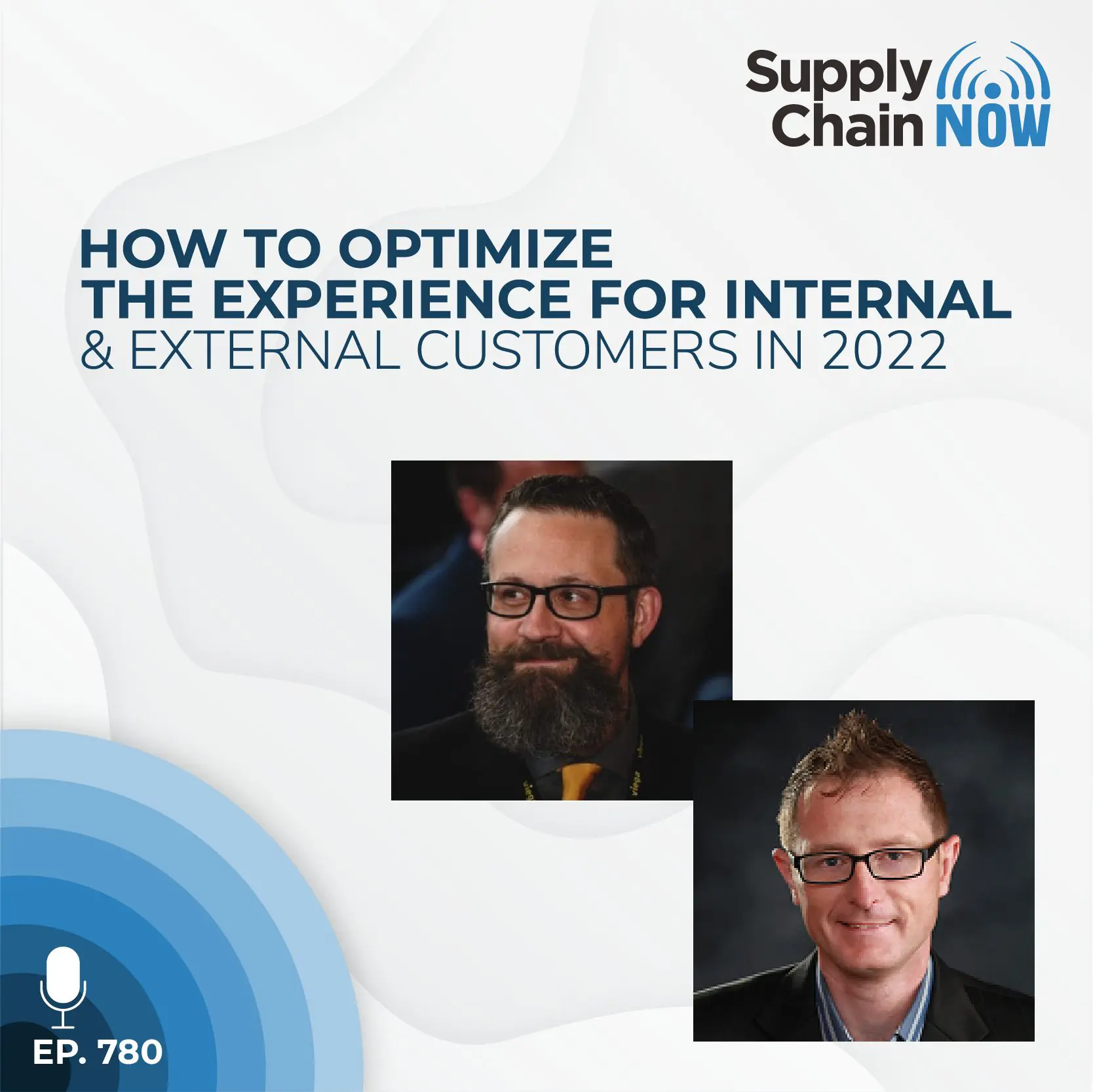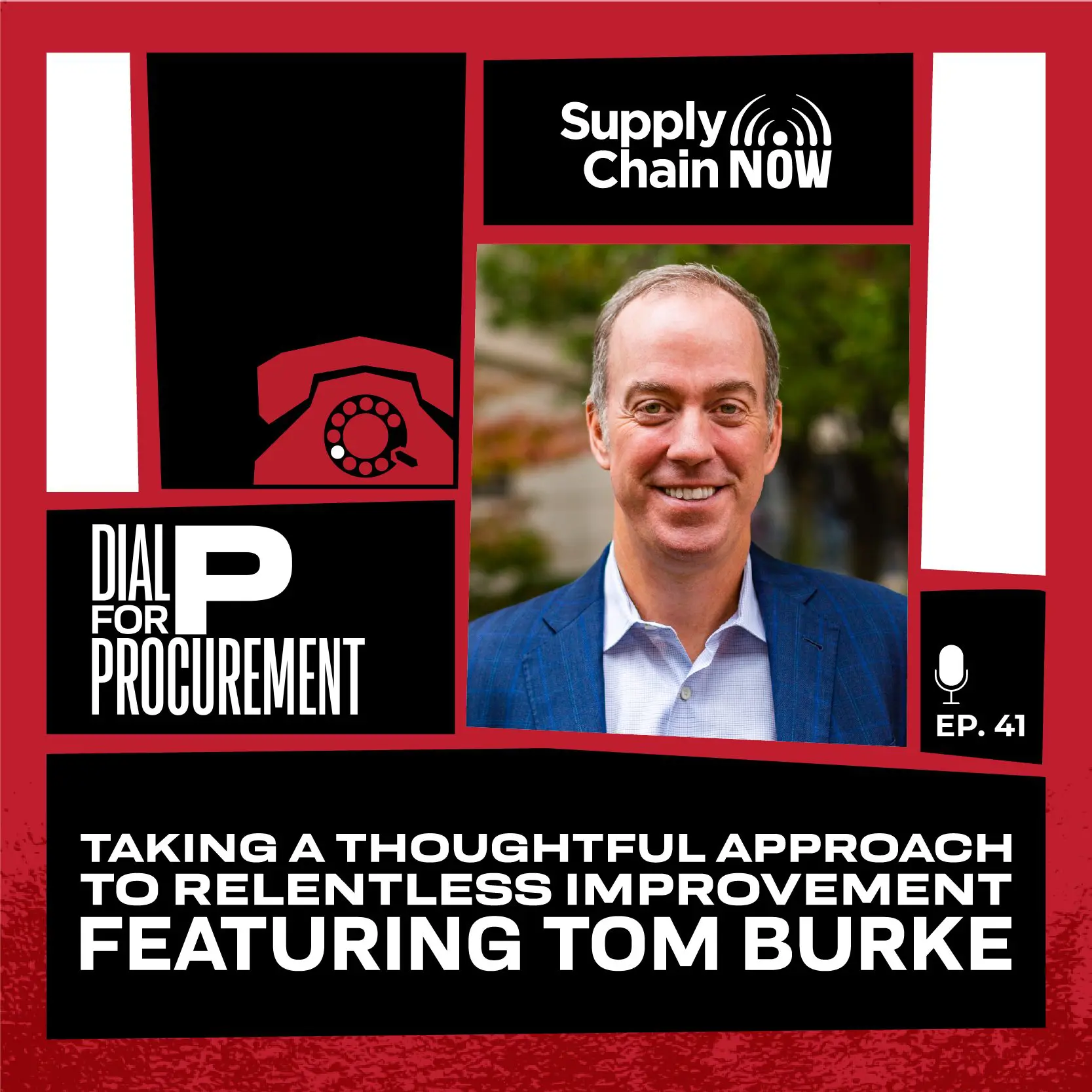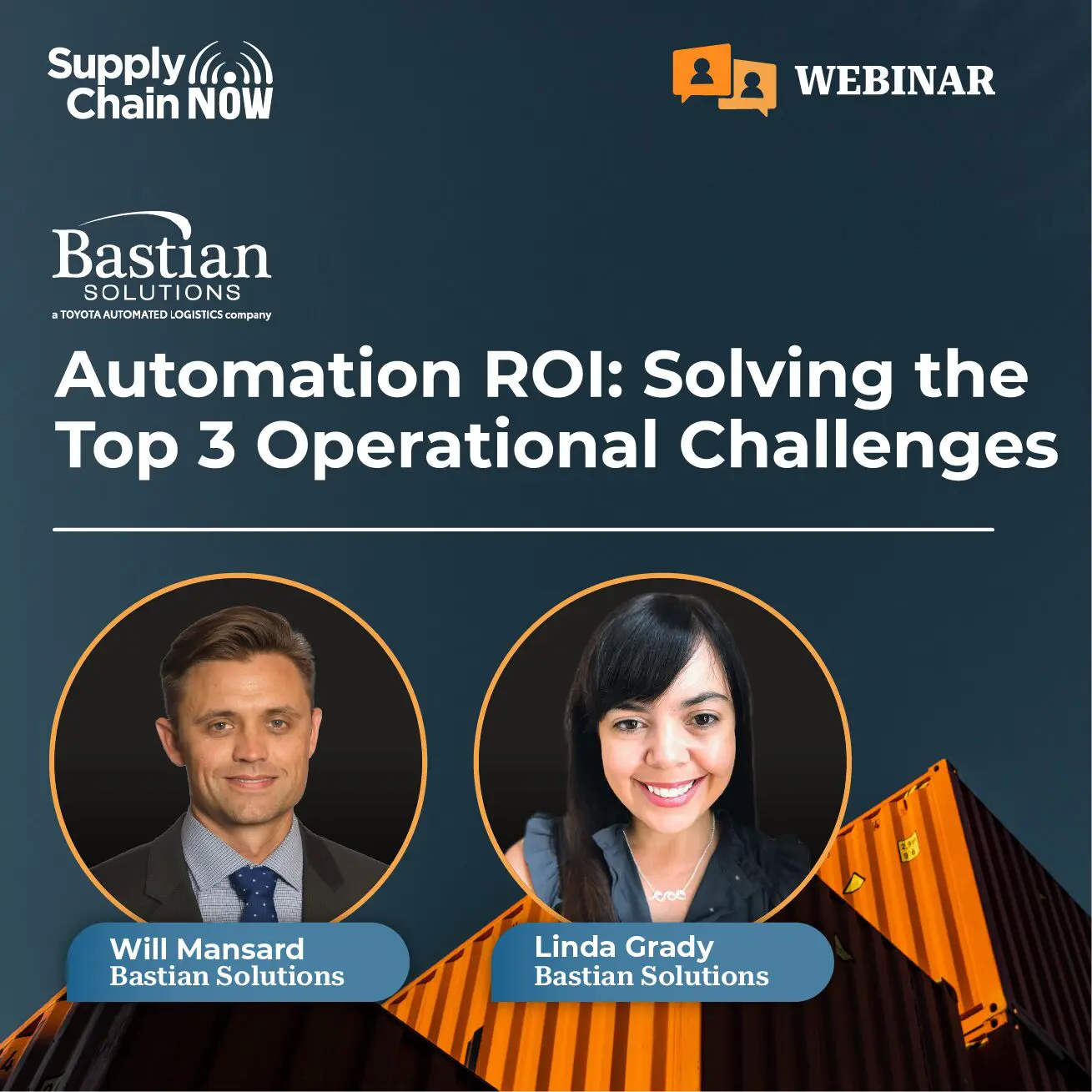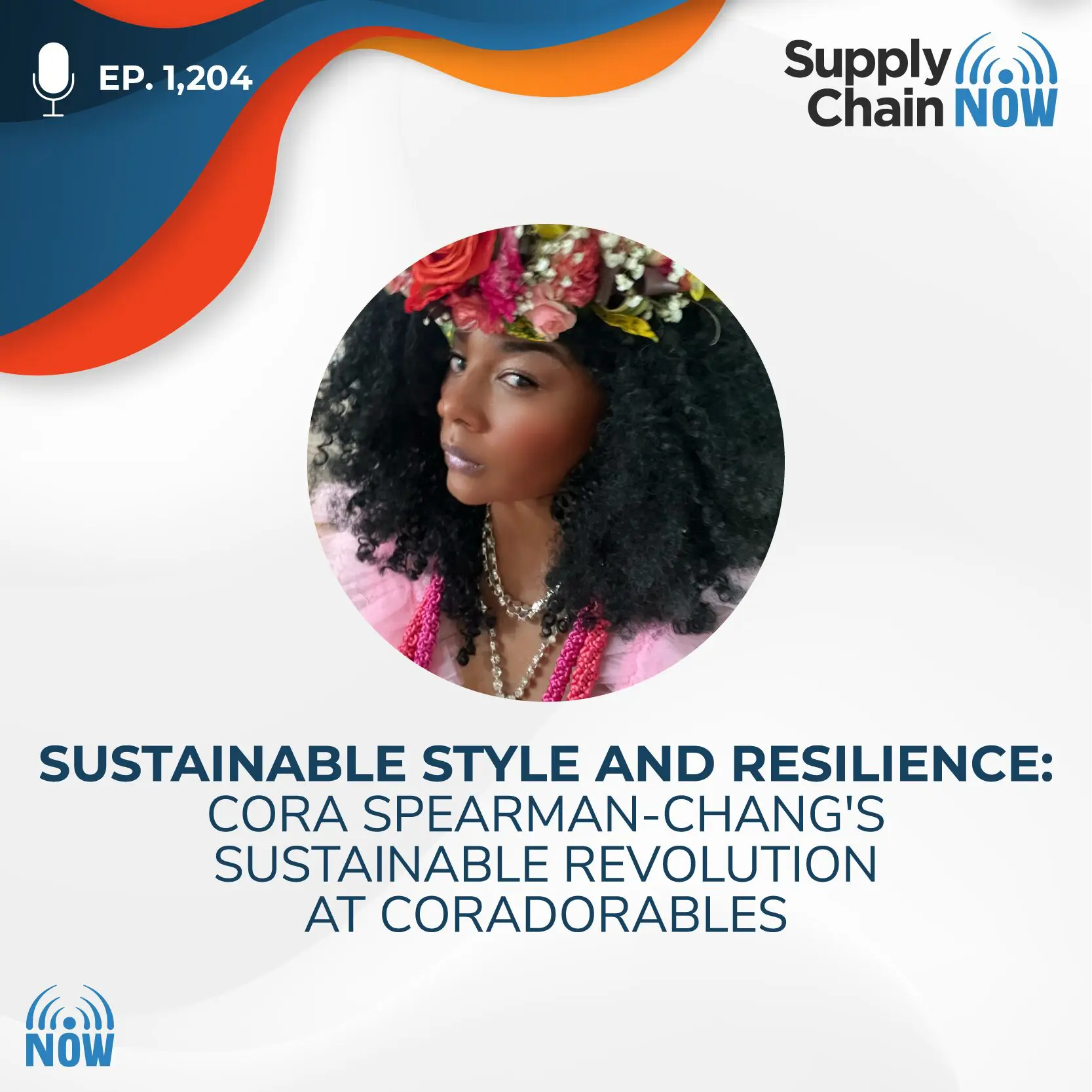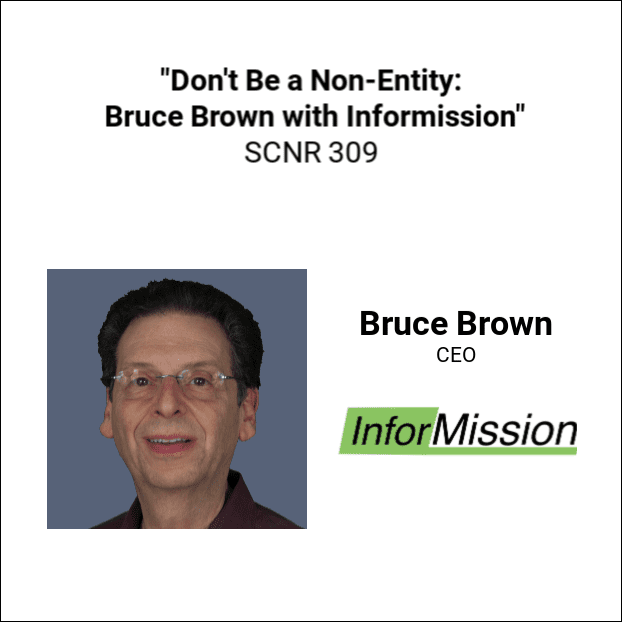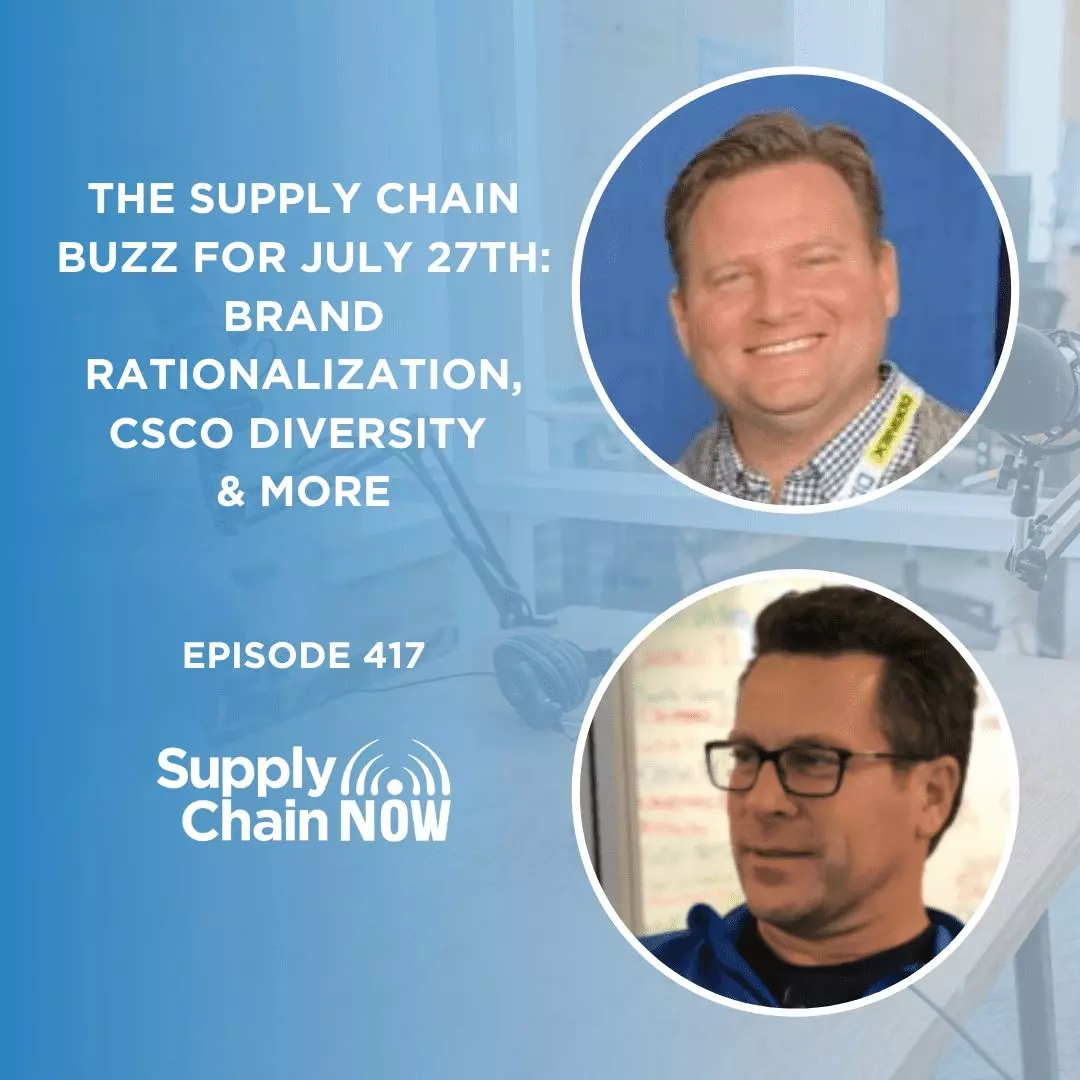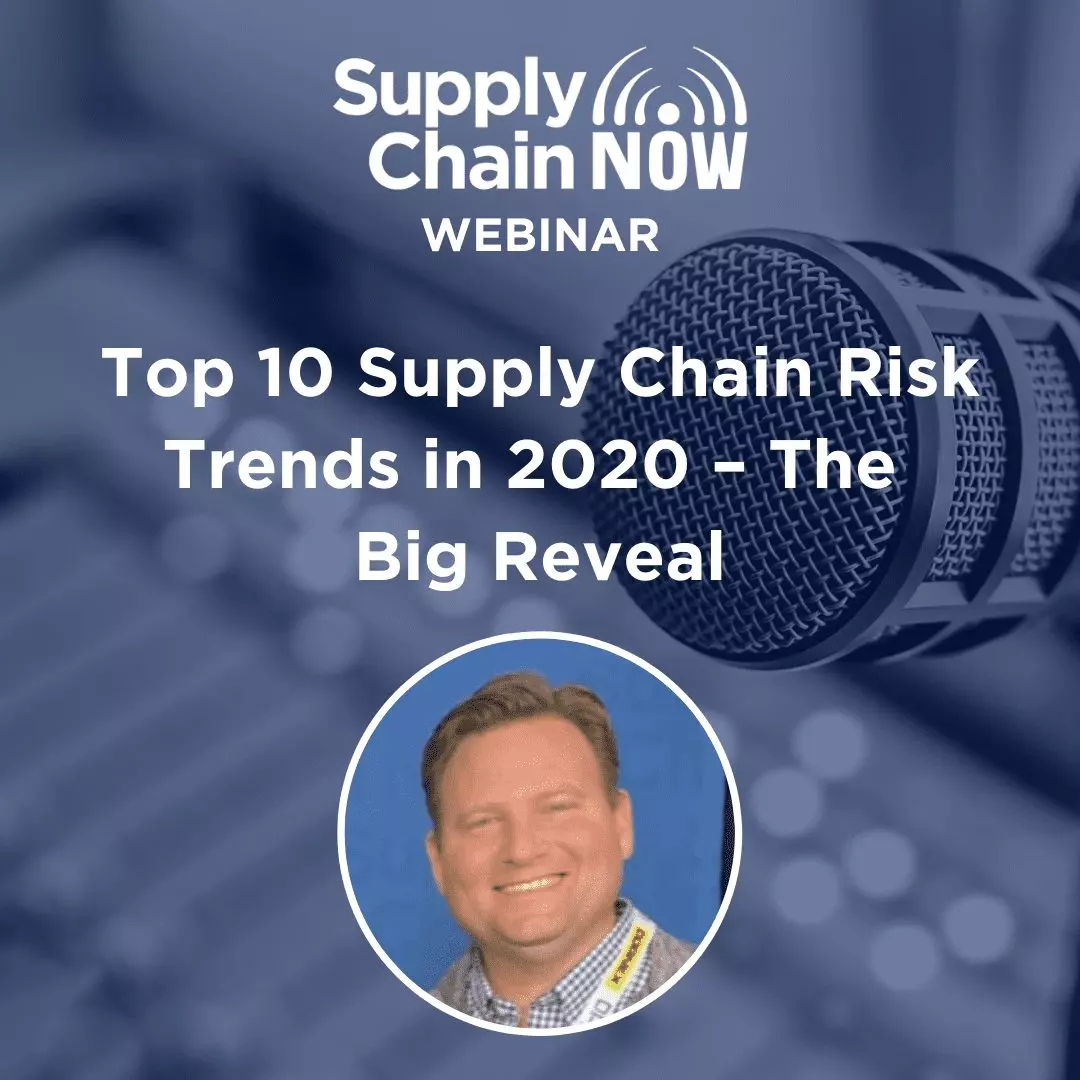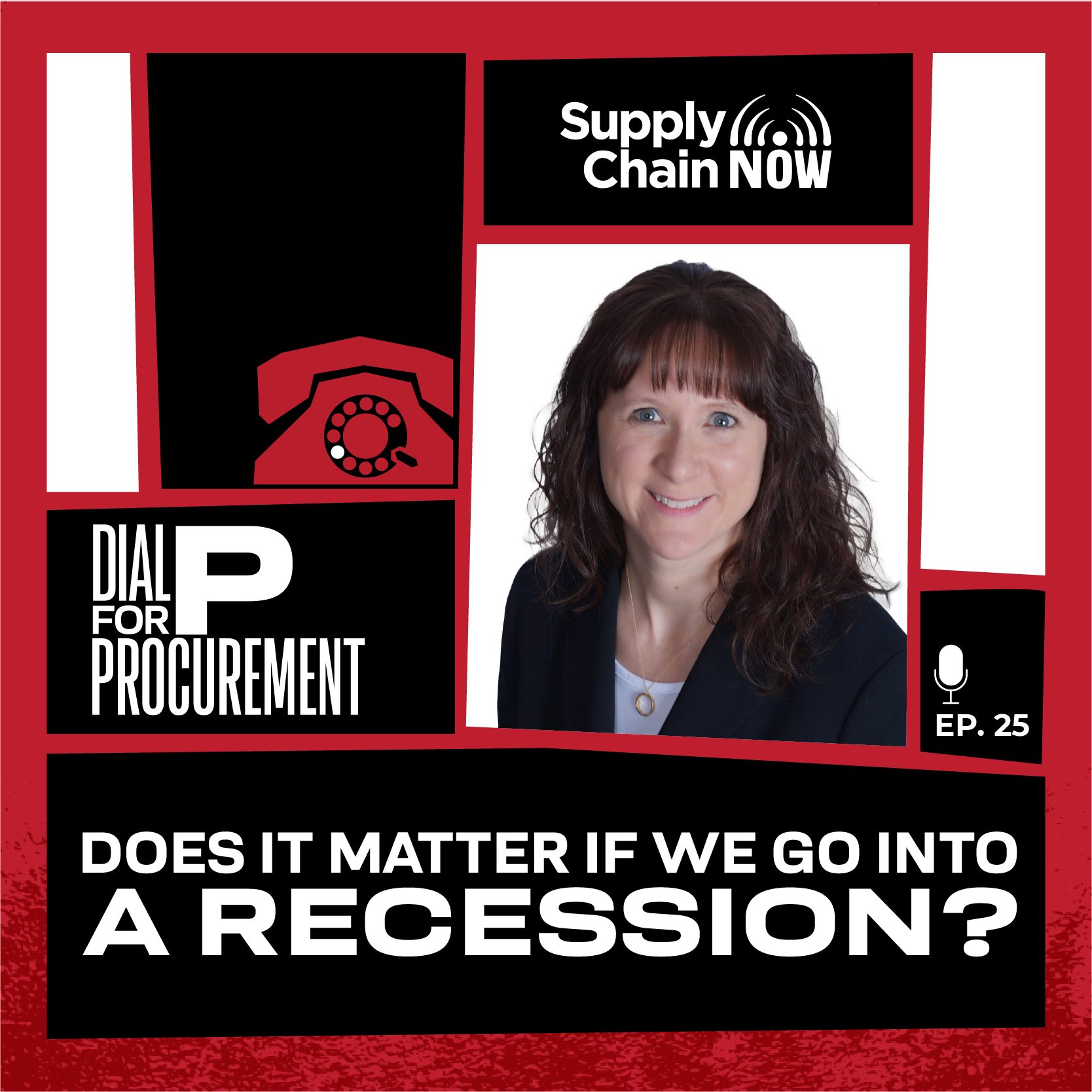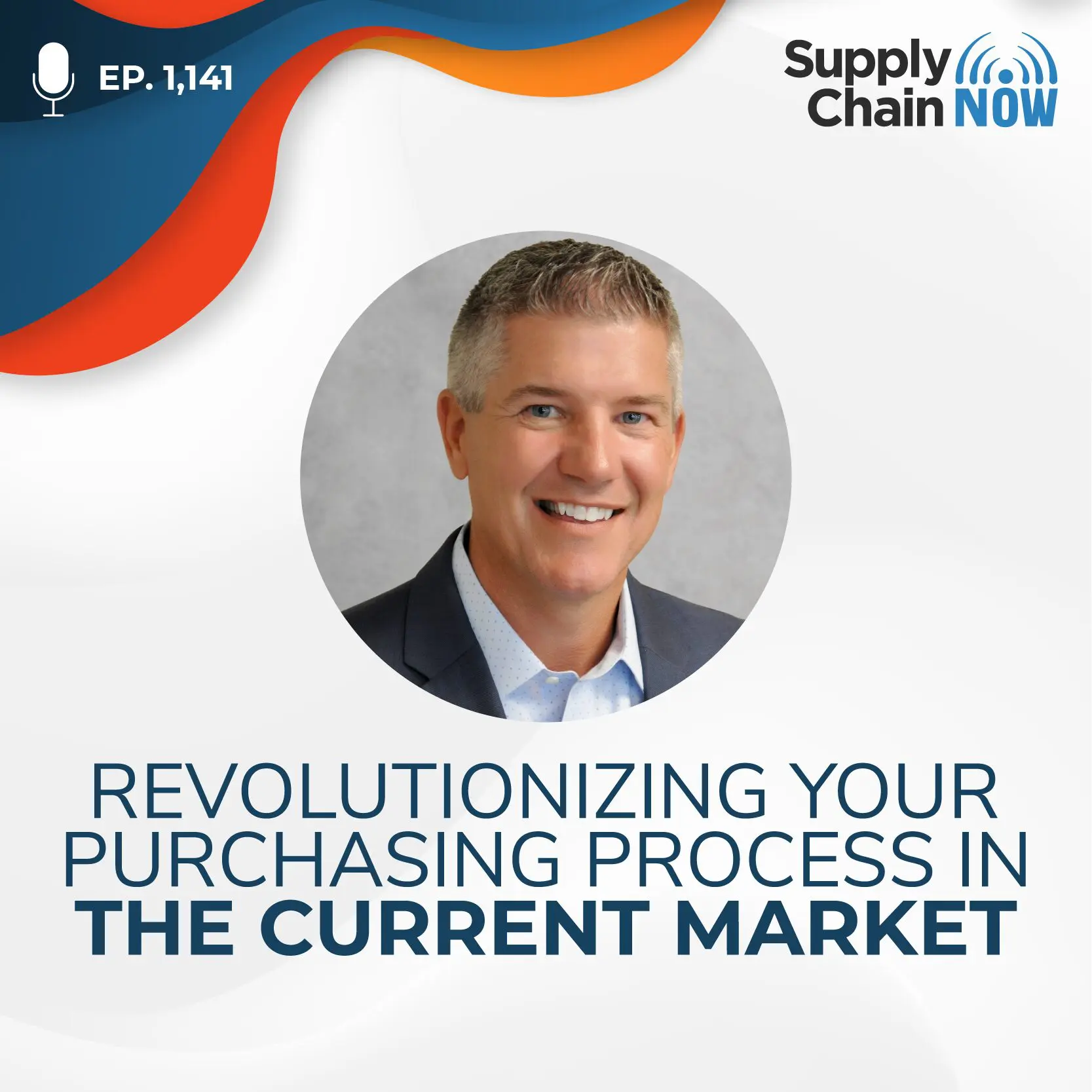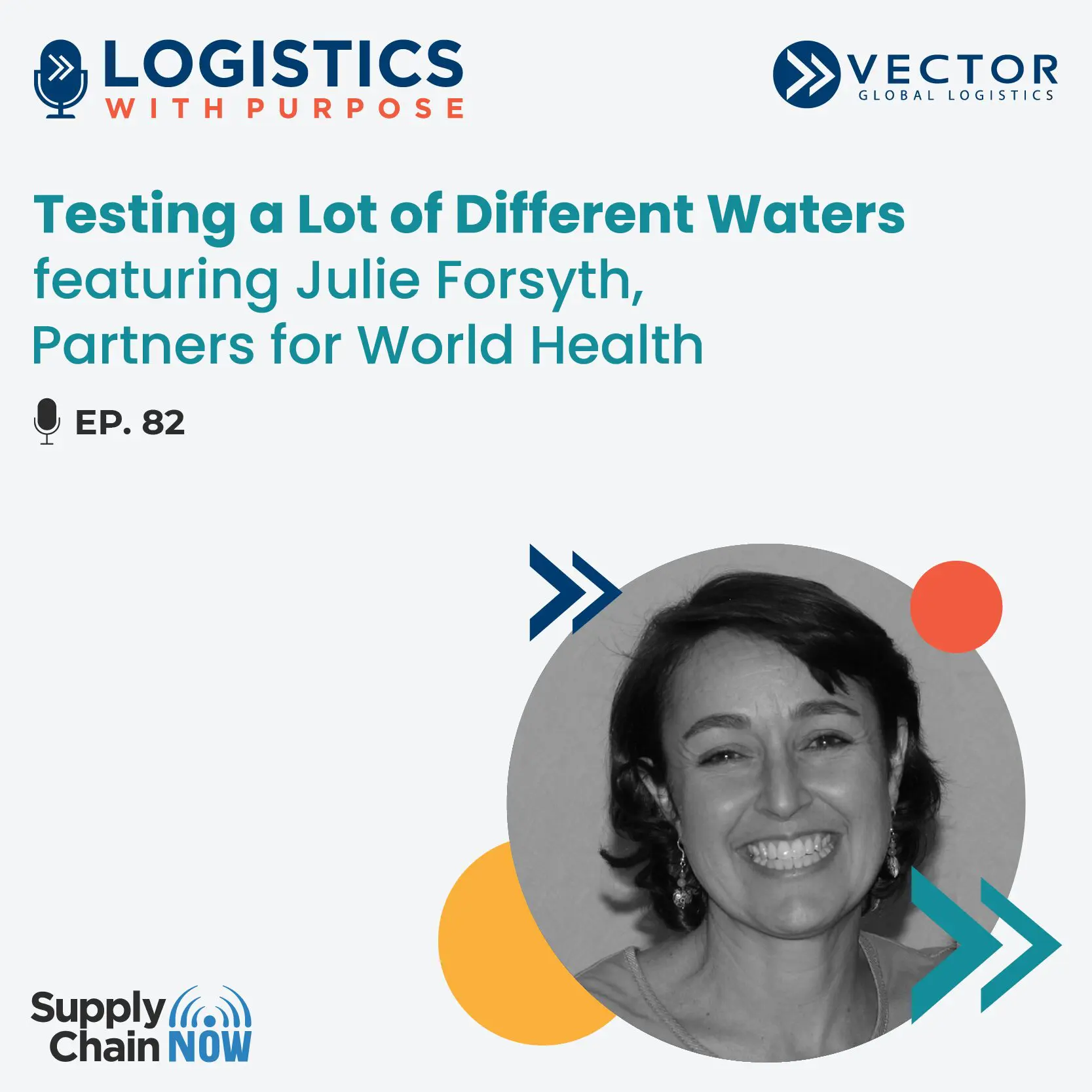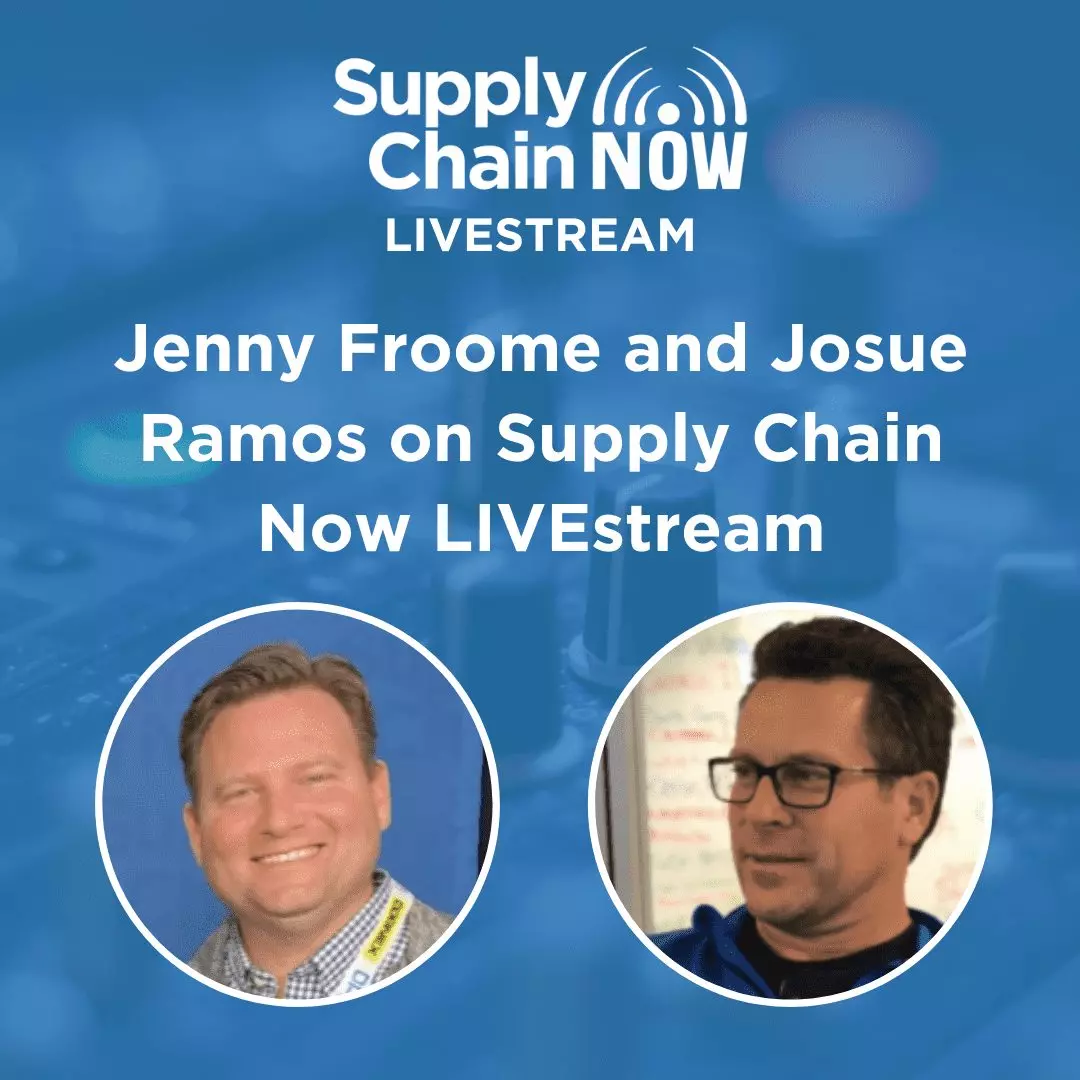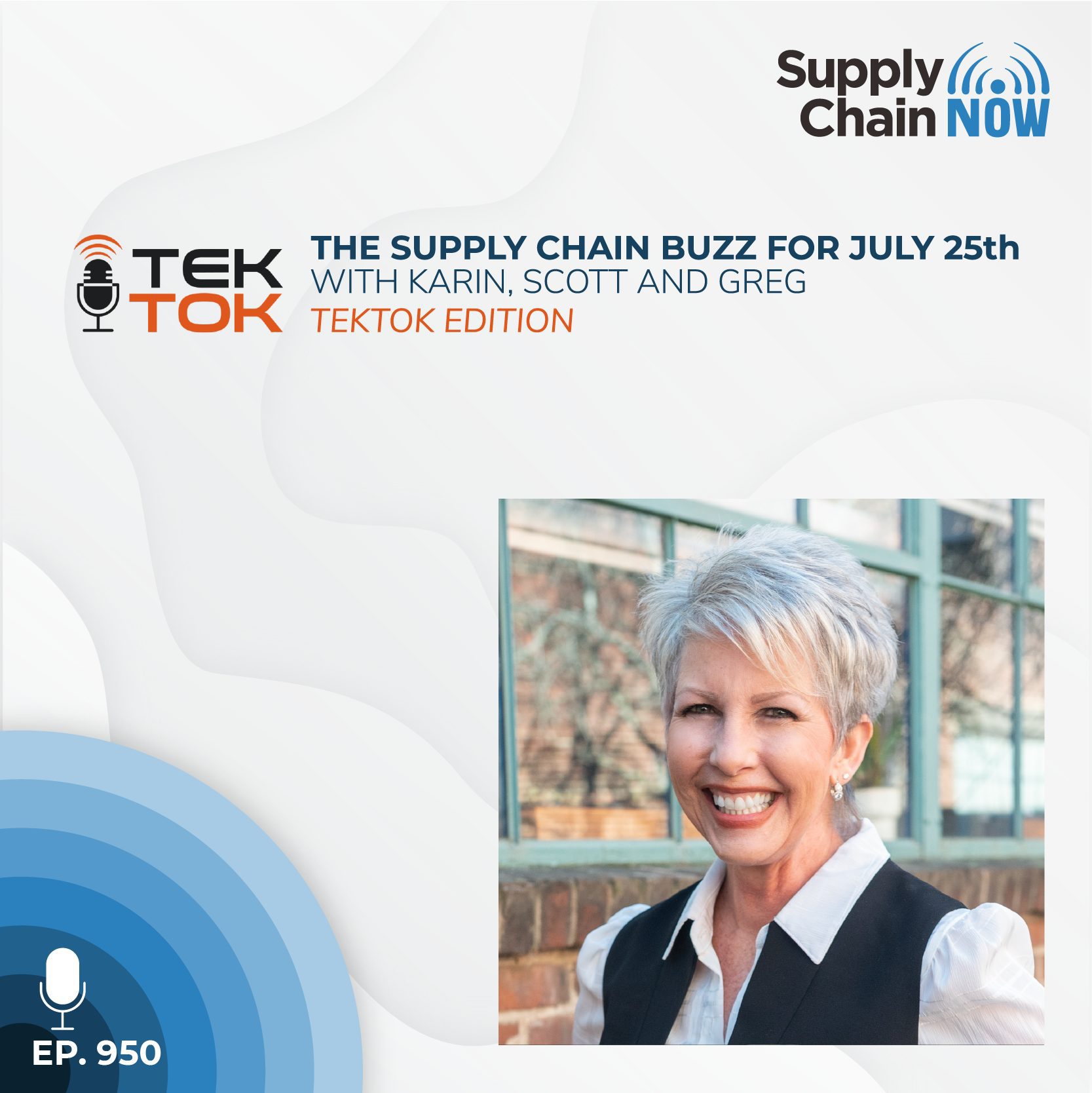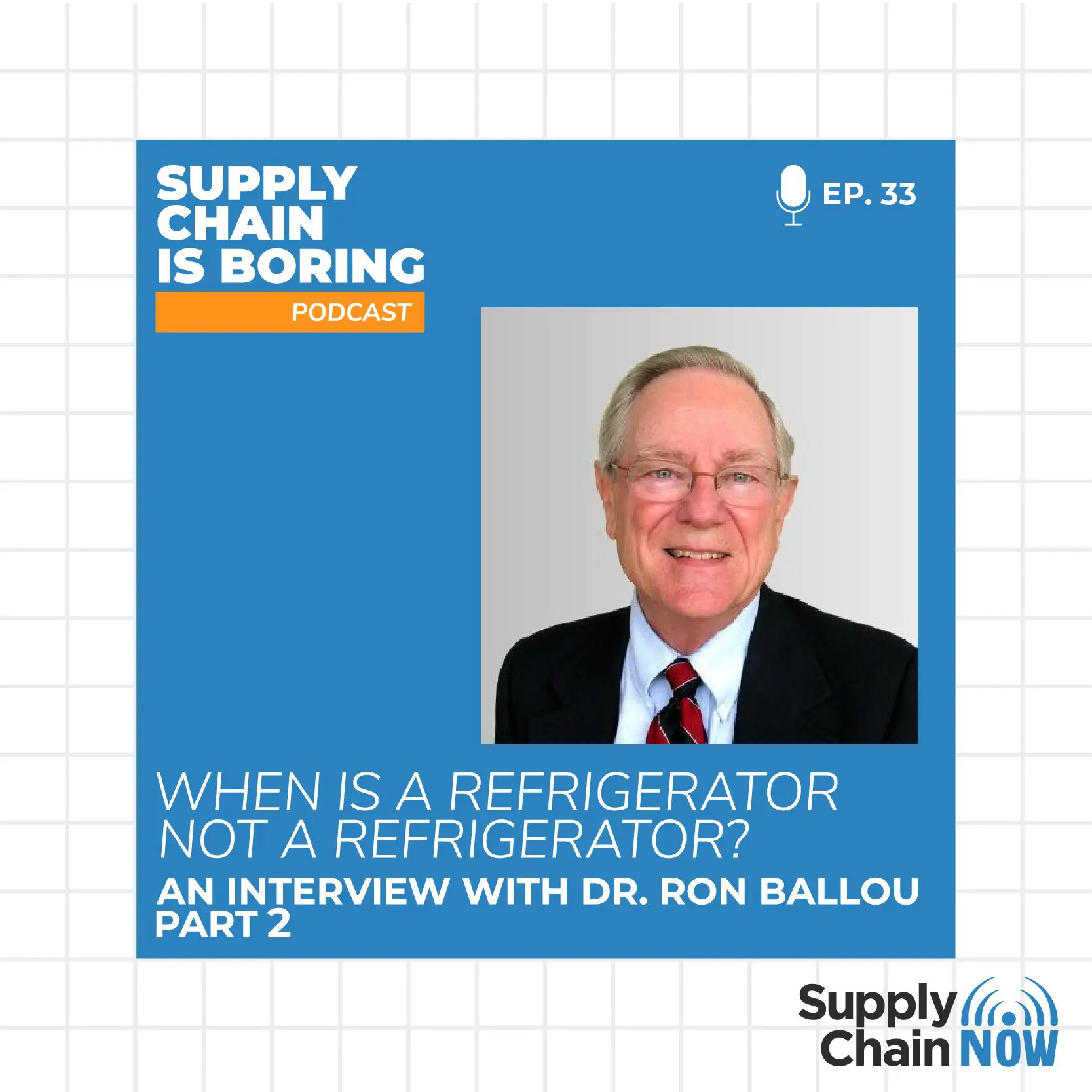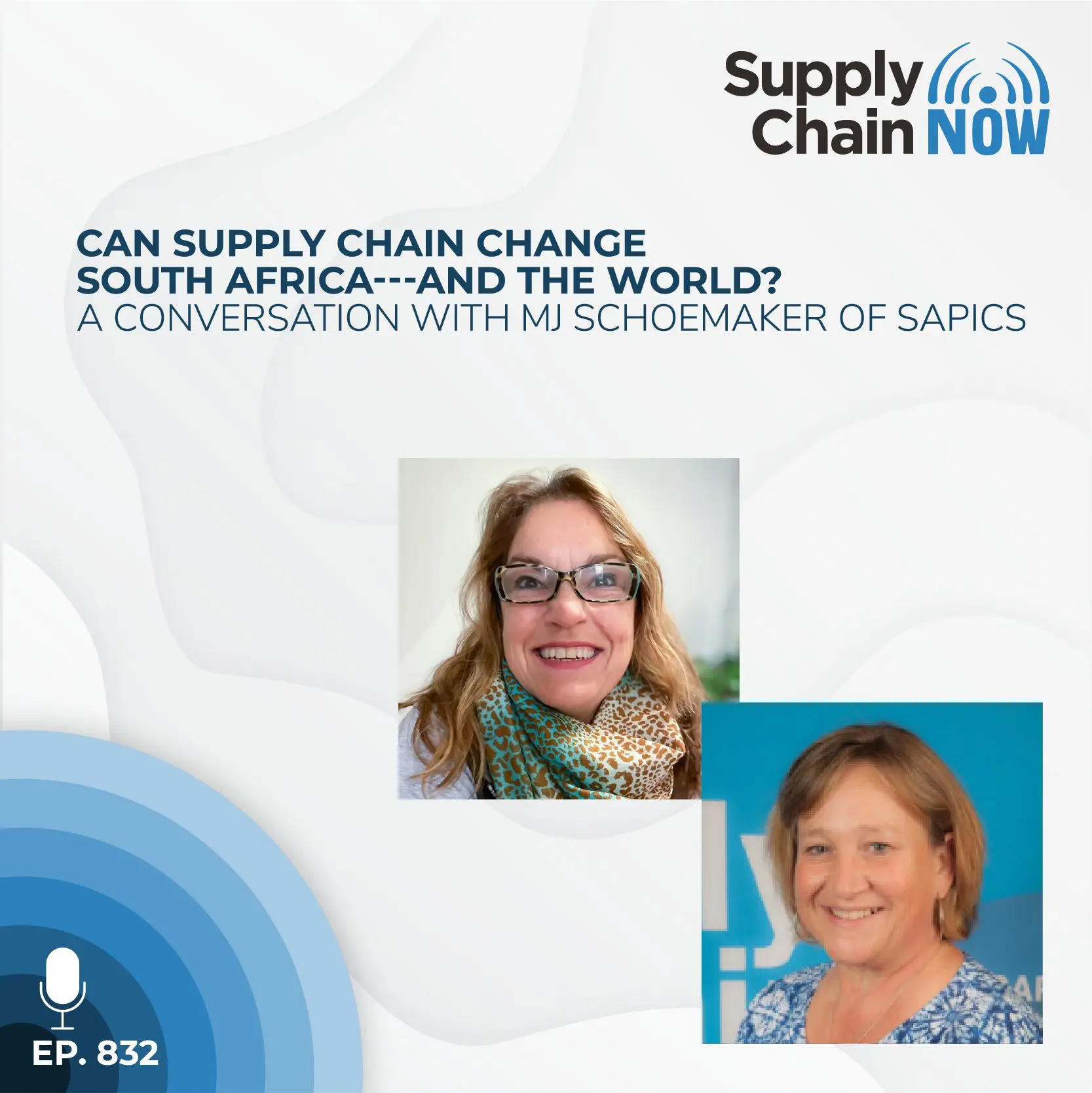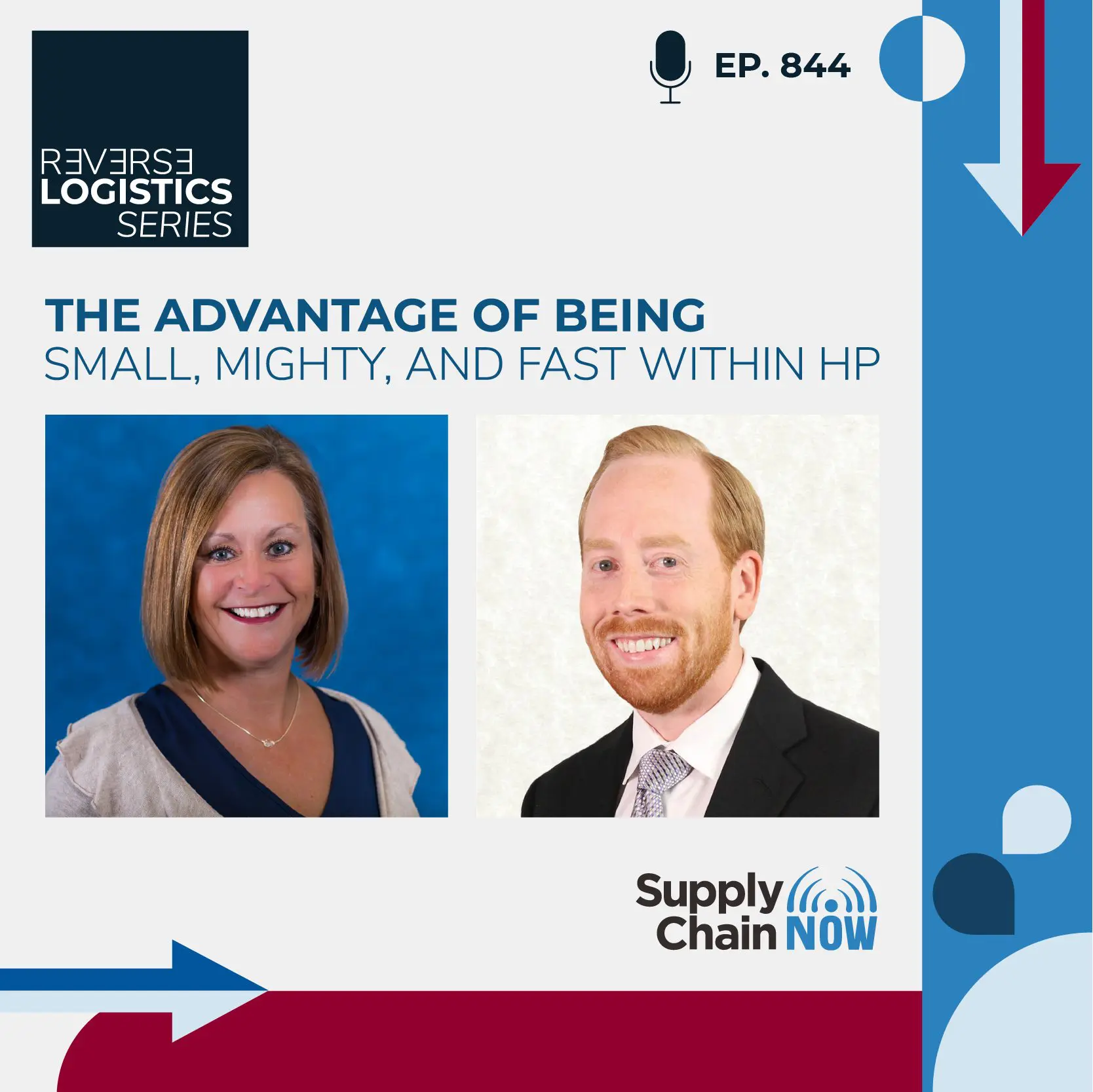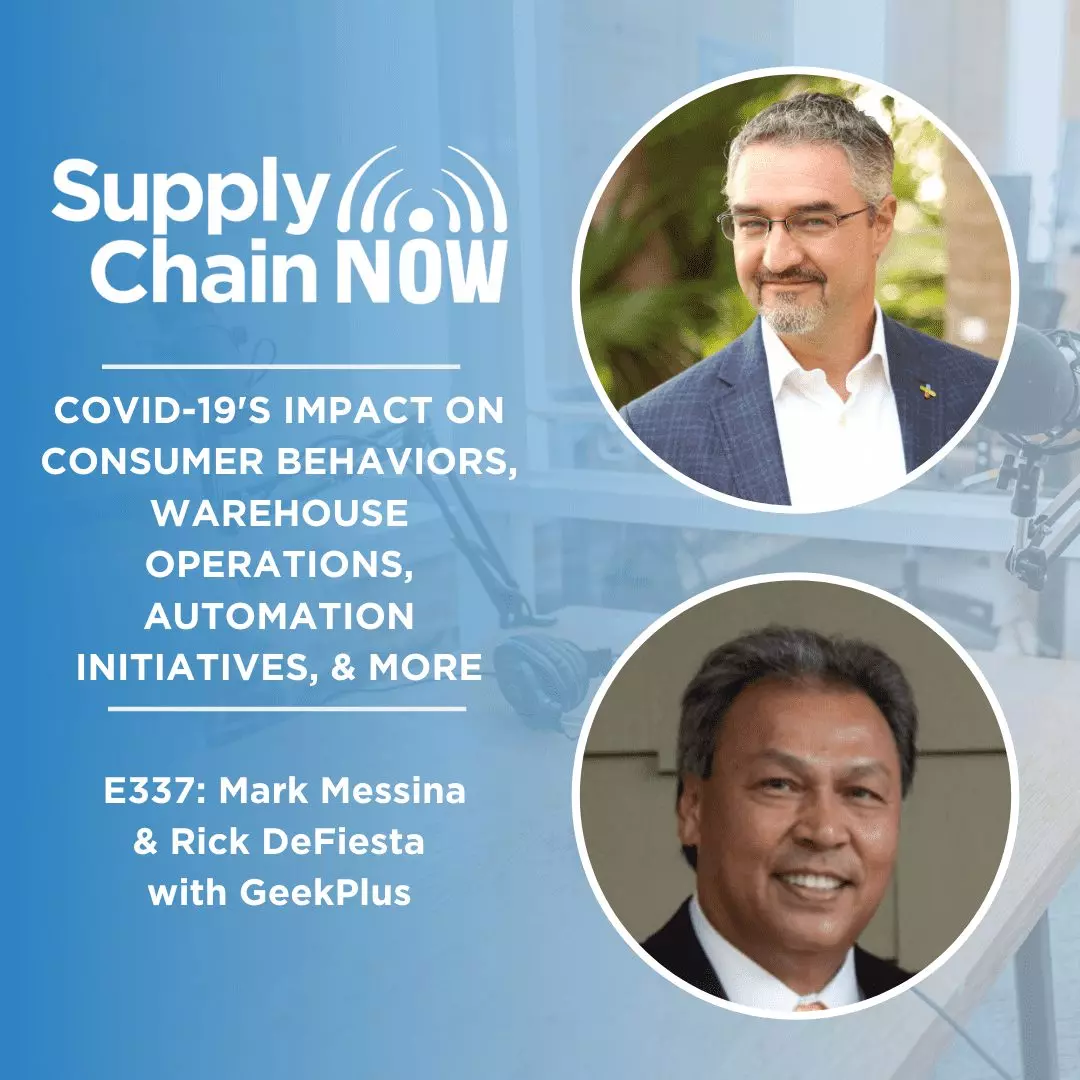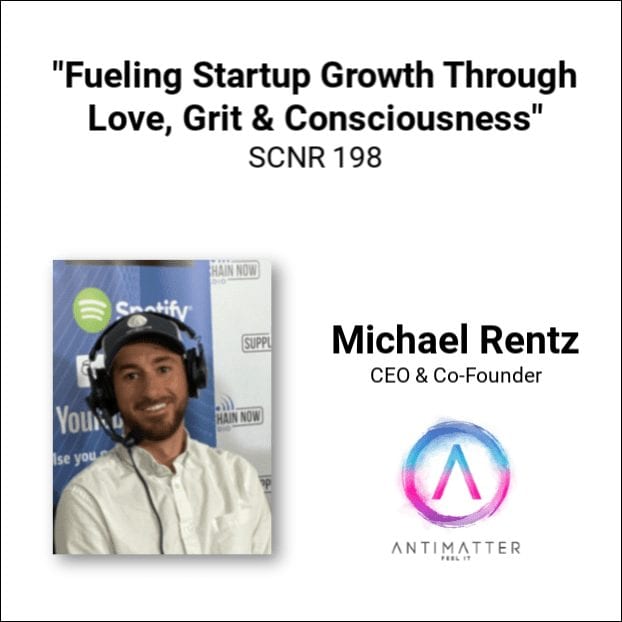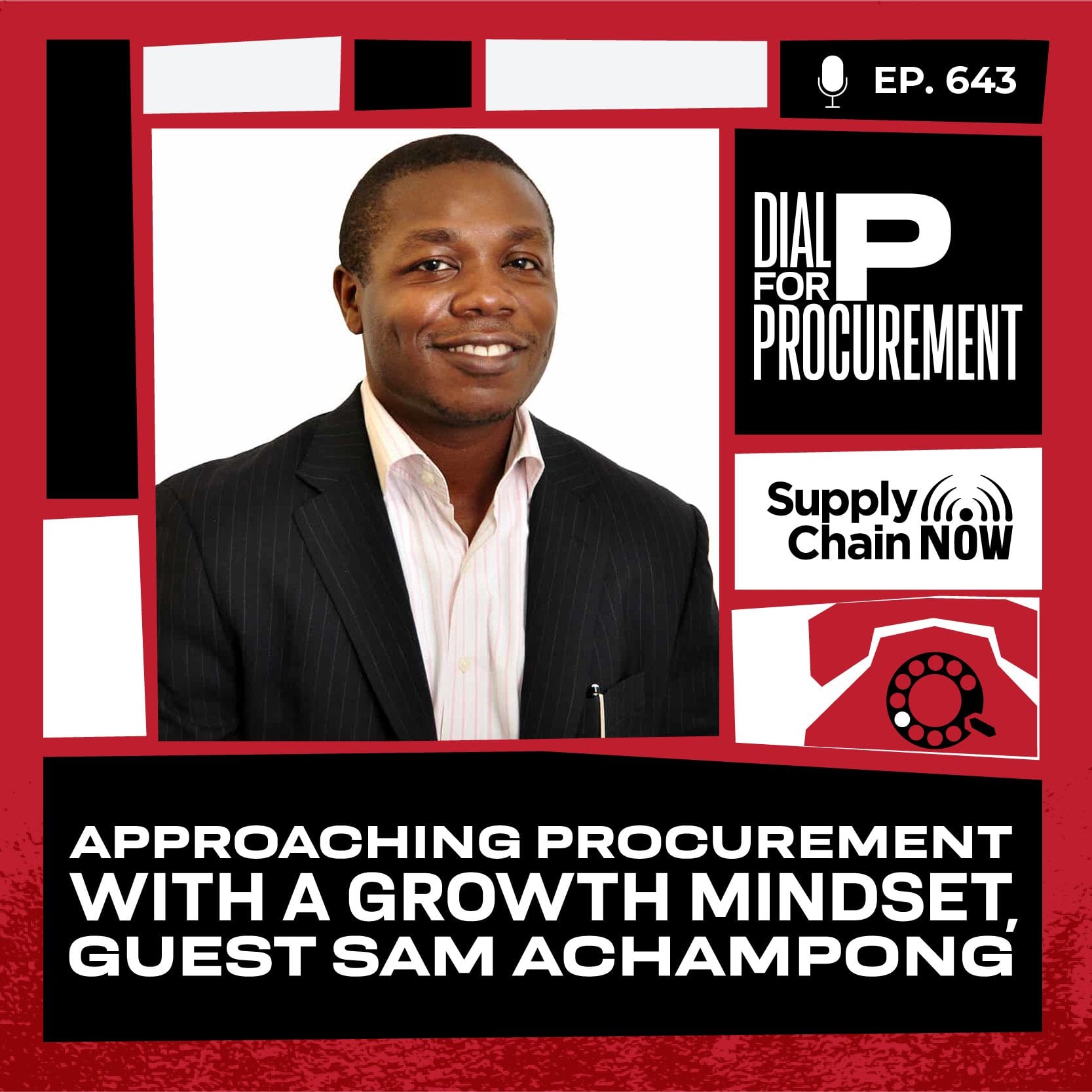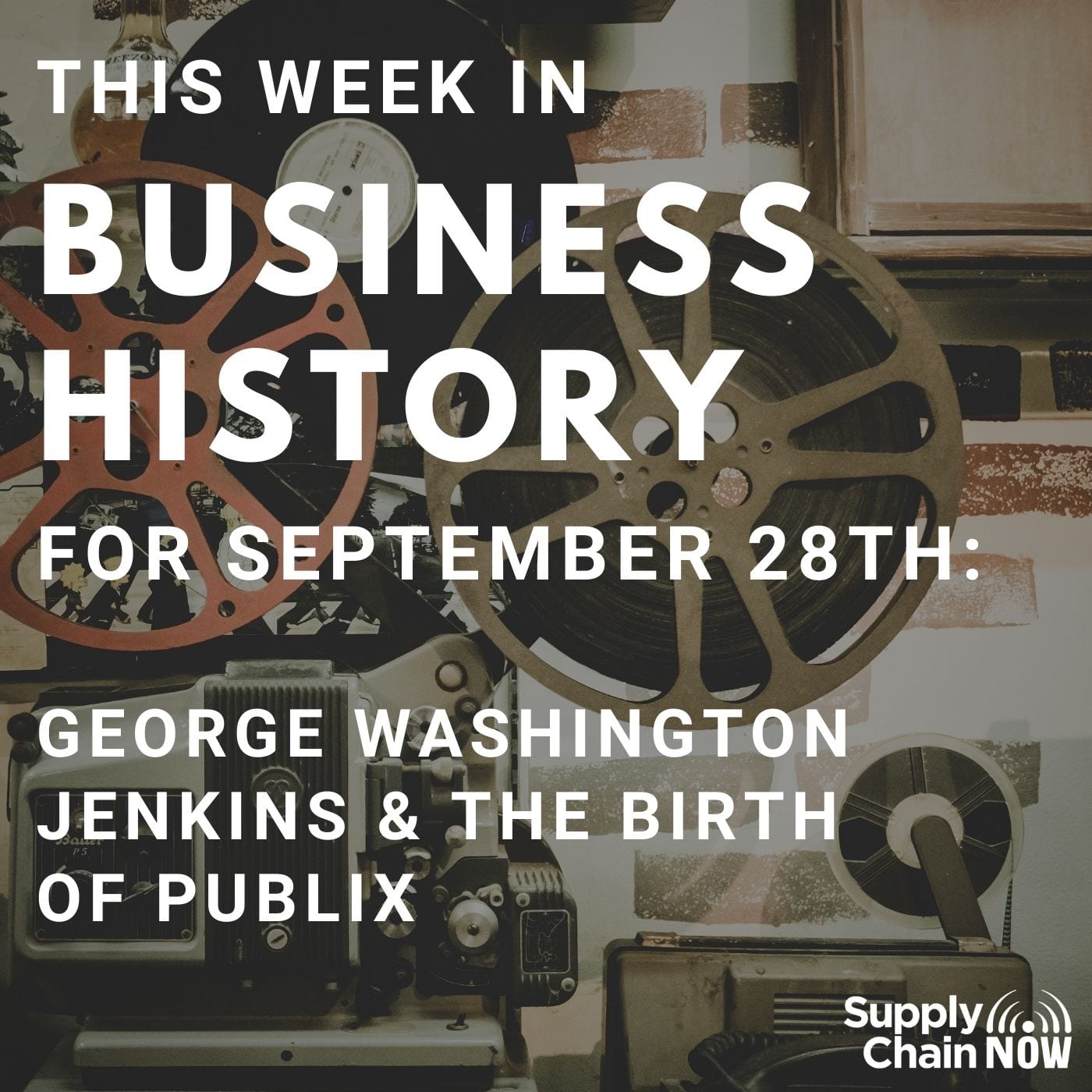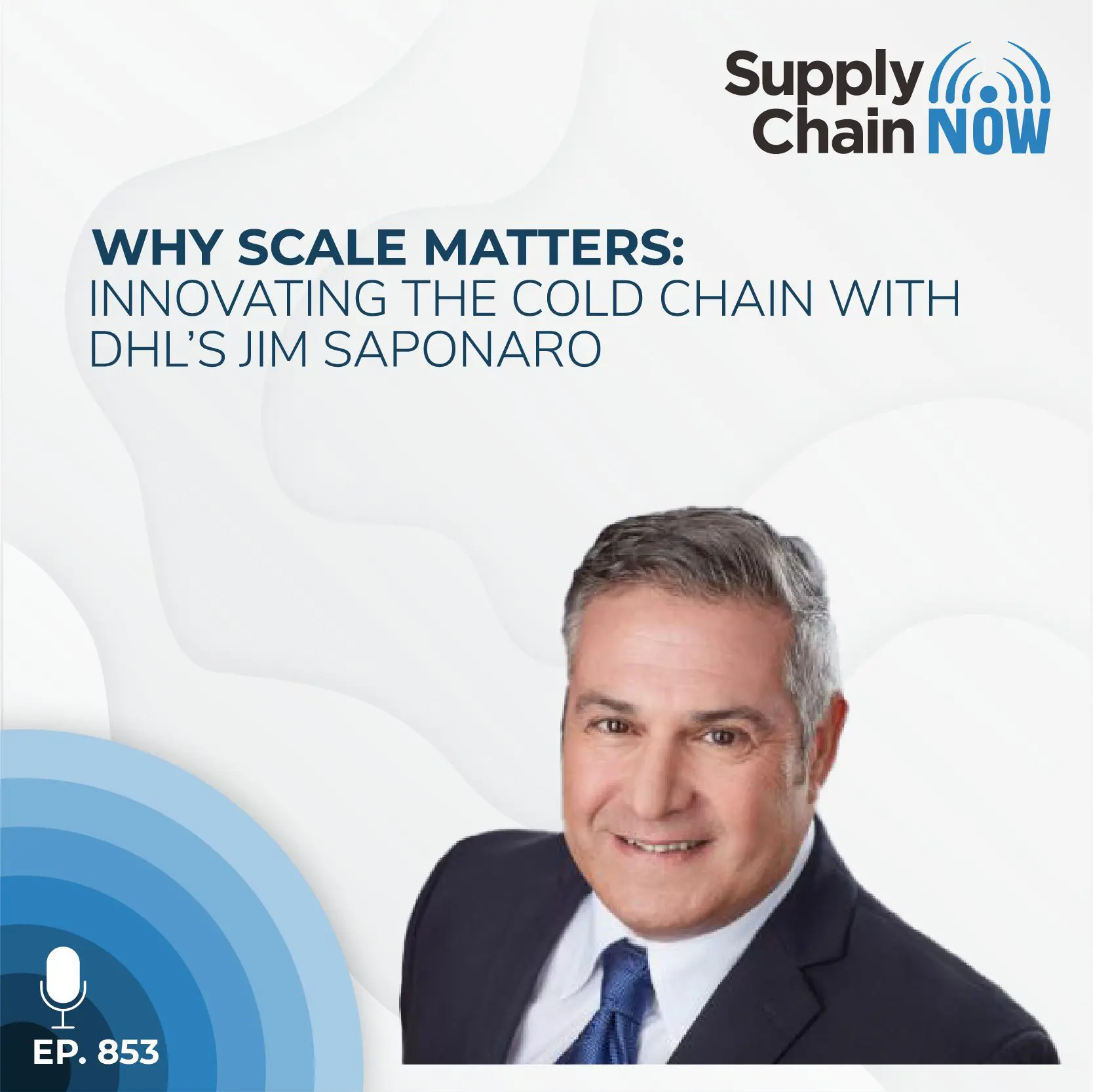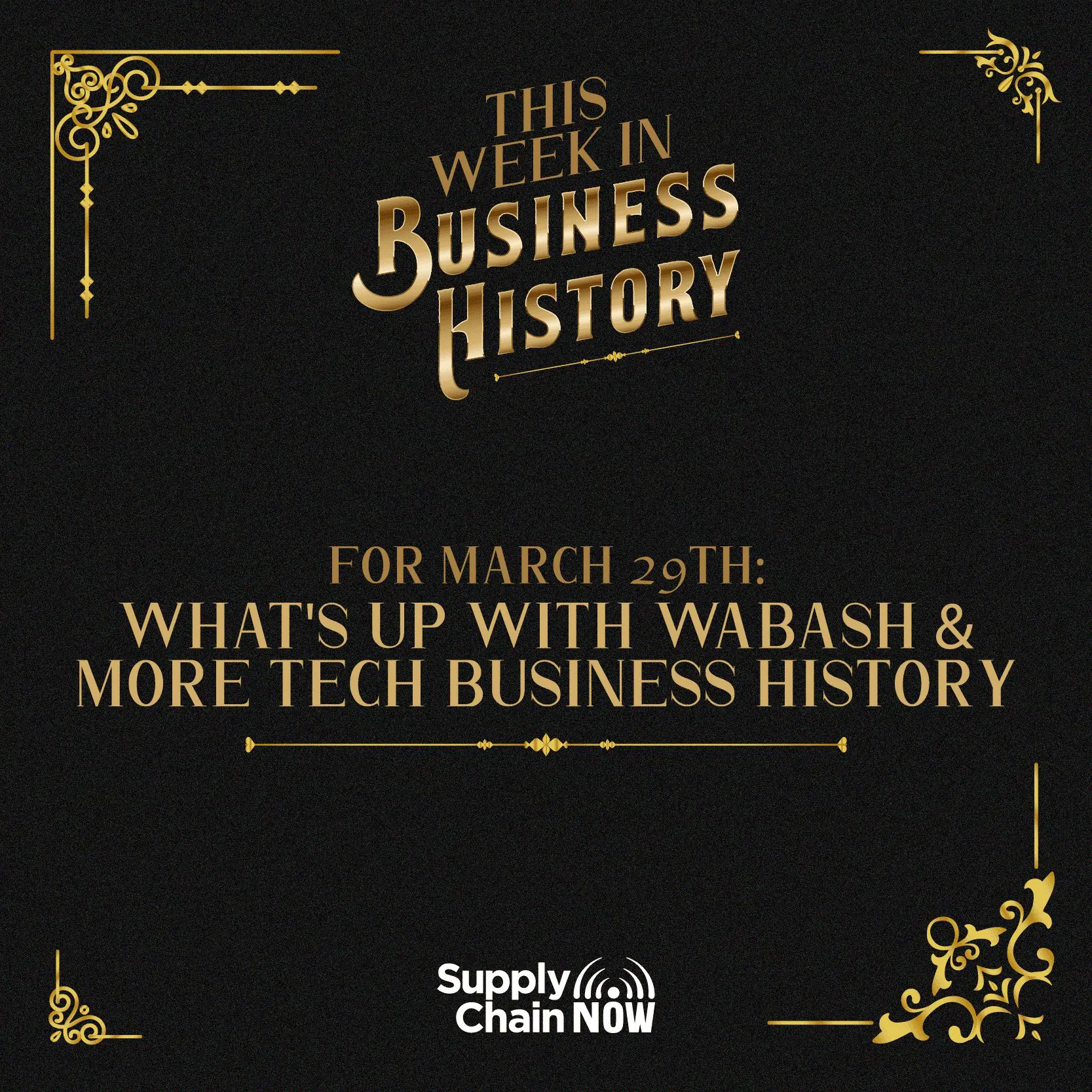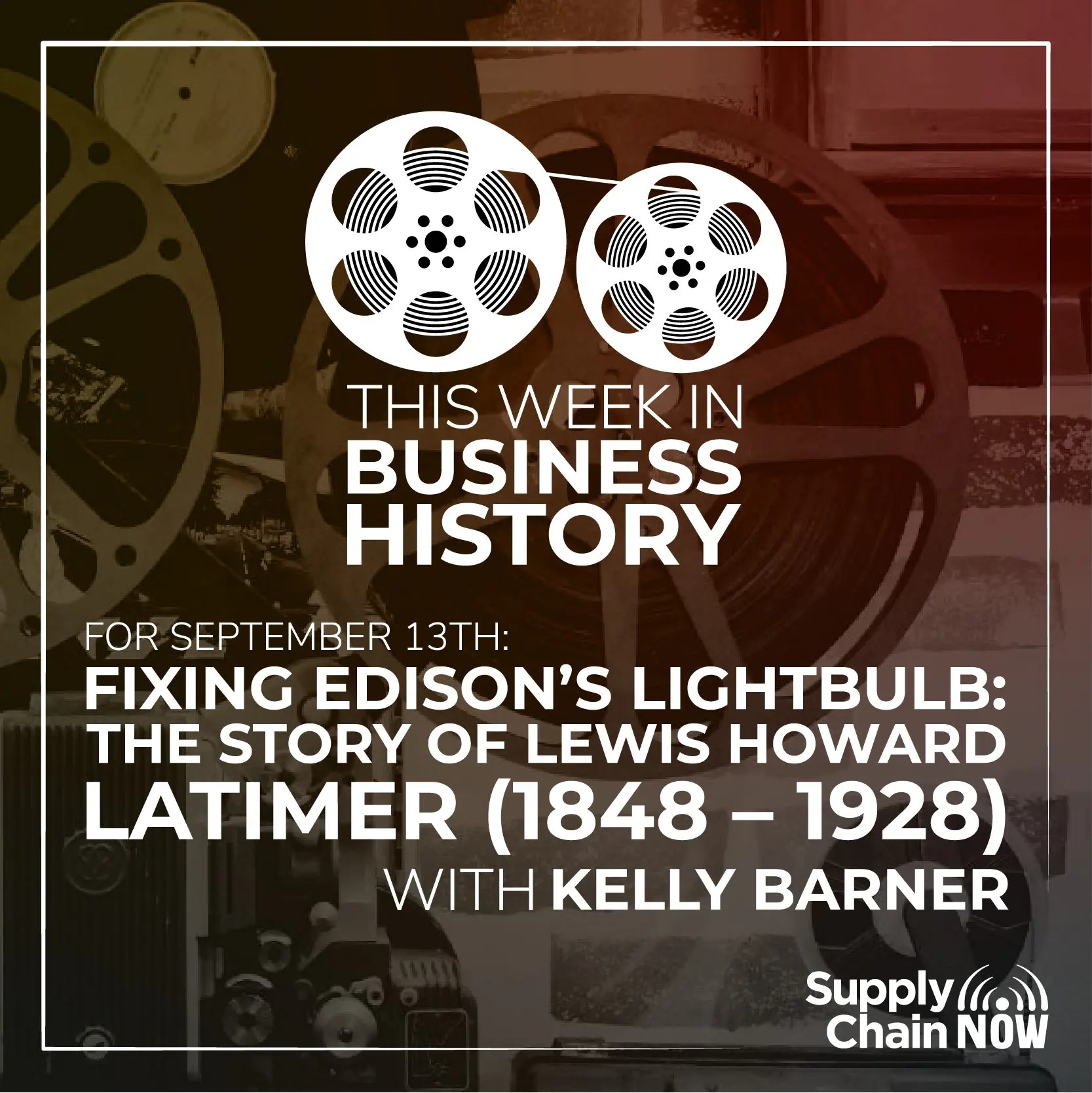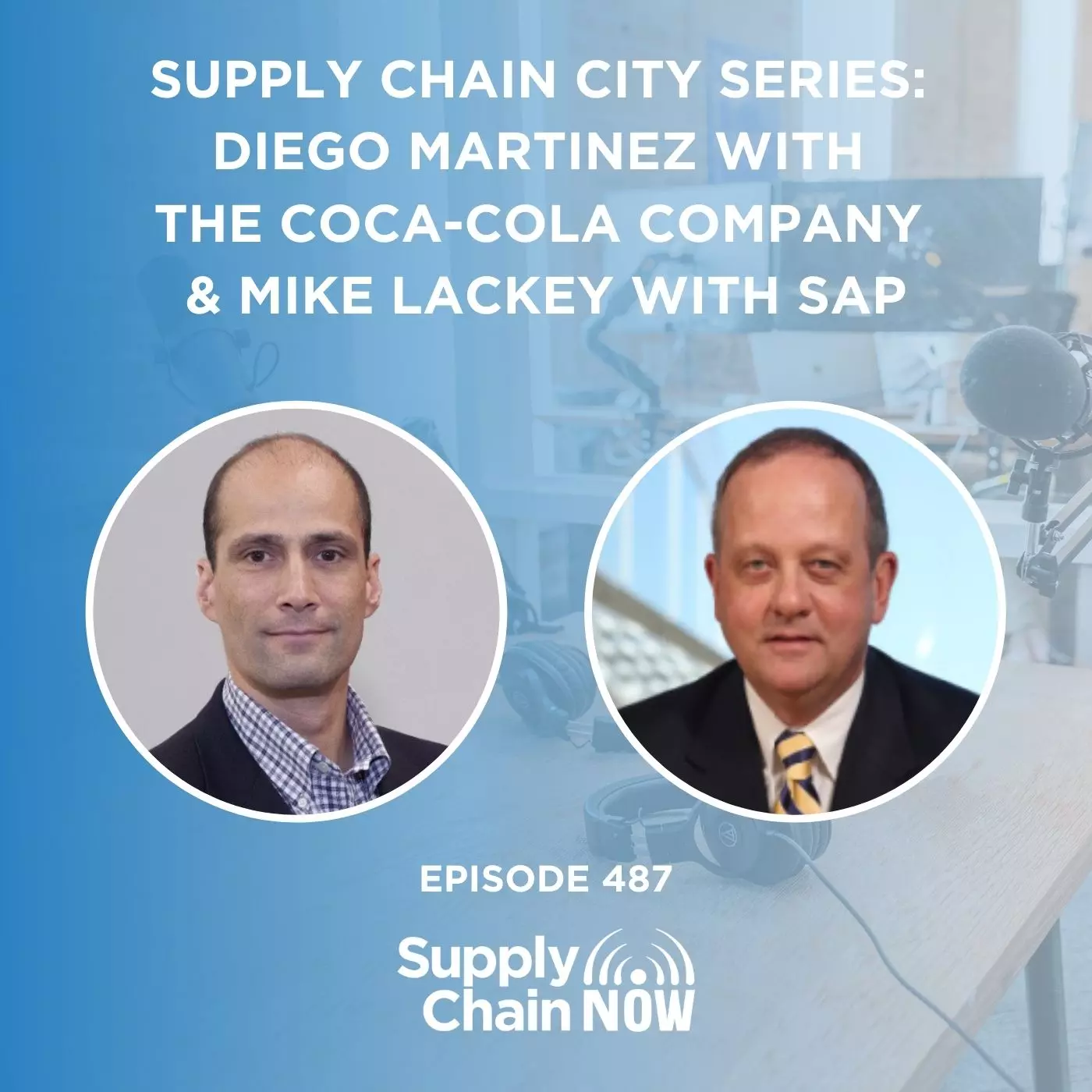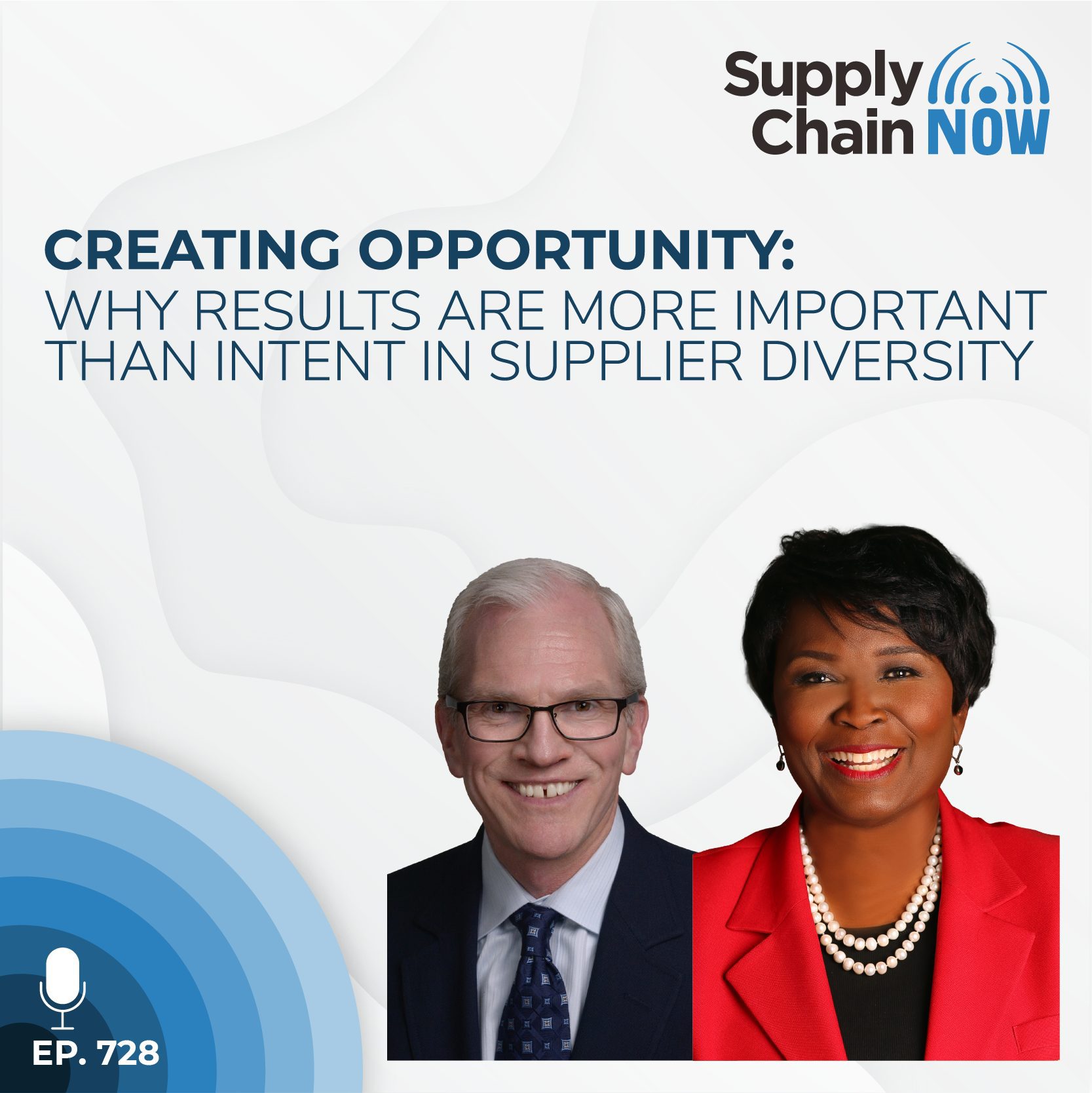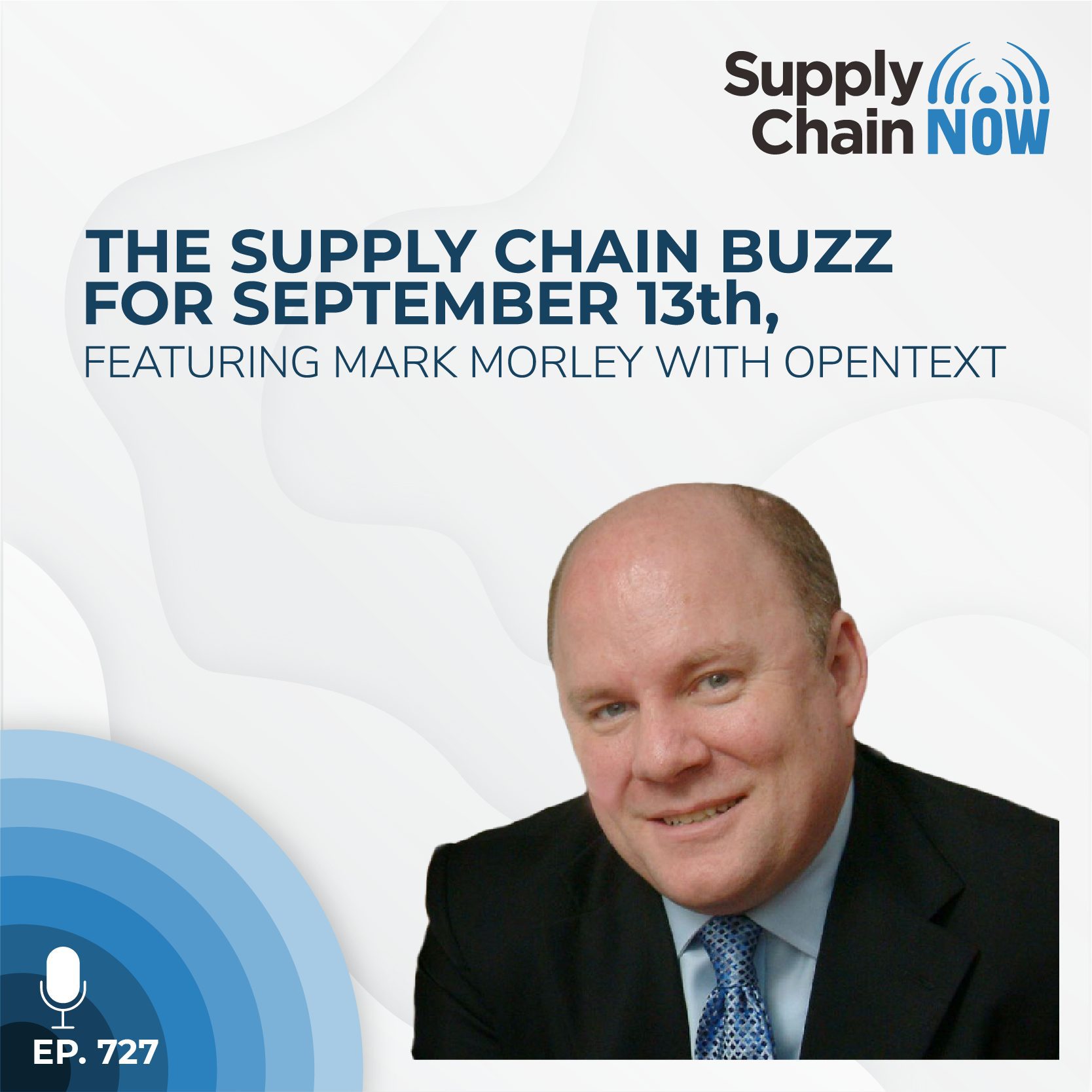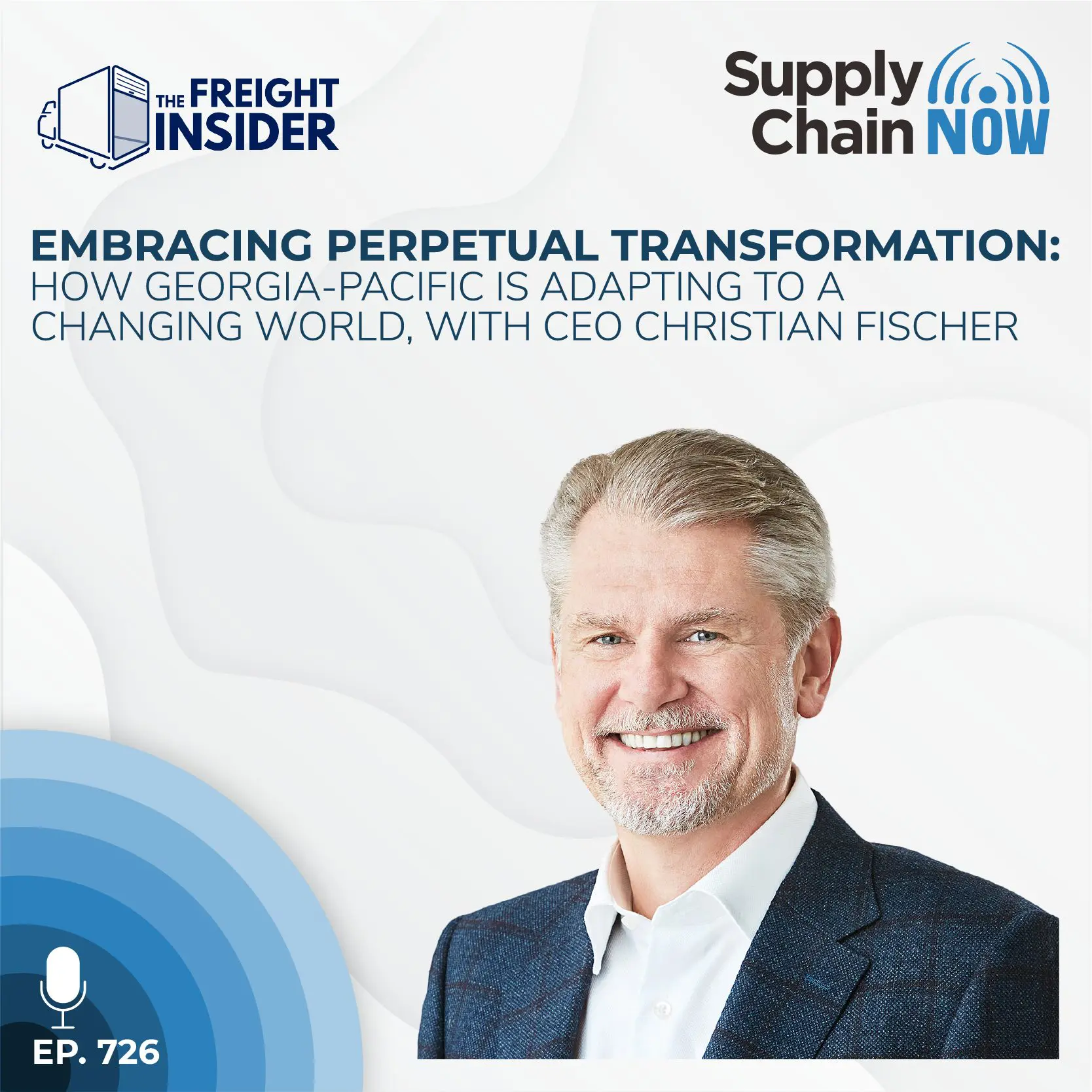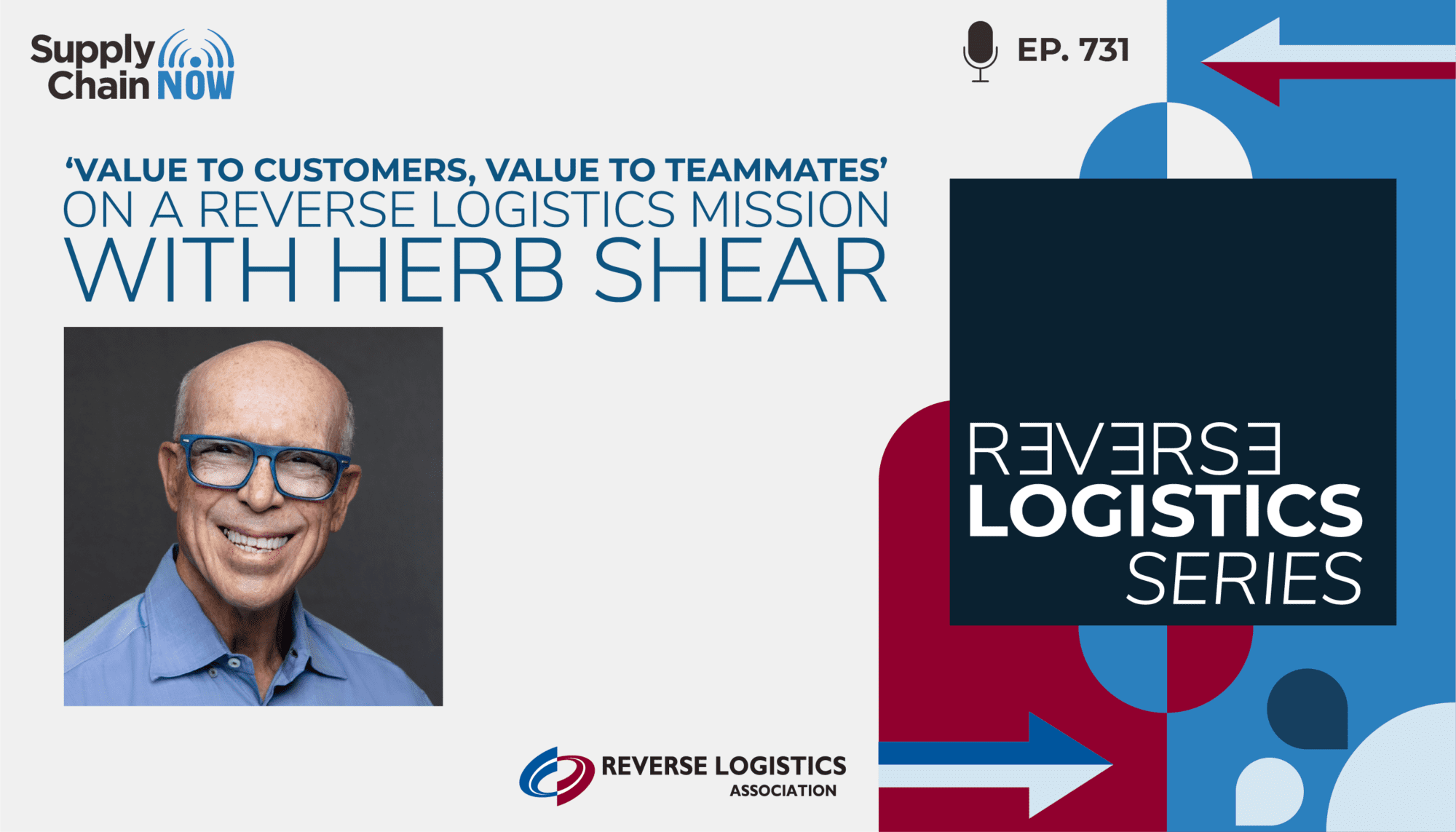
It's somewhat overlooked, but with return rates being so high, if companies aren't serious about how they're going to handle their returns, it’s going to impact their profitability.
- Herb Shear, Executive Chairman, G2 Reverse Logistics
Episode Summary
The recent explosion in eCommerce has made the management of returns, or reverse logistics, a critical component of the customer experience. But it hasn’t always been that way. In the early 1990s, companies were just starting to look at how they might address the inventory clogging up their distribution centers.
Herb Shear is the Executive Chairman at G2 Reverse Logistics, a comprehensive reverse logistics solution that combines analytics and operations to help maximize net recovery. He was one of the early pioneers of the practice that would become known as ‘reverse logistics’ in response to a customer request for help. The solution quickly caught on, especially with mass retailers, and laid the groundwork for what has become a highly sophisticated and fast-growing part of supply chain management.
In this episode of Supply Chain Now, which is part of the Reverse Logistics Series, Herb joins co-hosts Scott Luton and Tony Sciarrotta, Executive Director of the Reverse Logistics Association, to take listeners from the earliest days of reverse logistics to the cutting edge practices being implemented today:
- When ease of customer returns began to be viewed as a way for retailers to compete for market share
- How the development of new AI-enabled technologies is supporting today’s complex omnichannel reverse logistics requirements
- How the Shear Family Foundation is using their success from helping people ‘send things back’ to give back to communities experiencing food insecurity
Episode Transcript
Intro/Outro (00:03):
Welcome to supply chain. Now the voice of global supply chain supply chain now focuses on the best in the business for our worldwide audience, the people, the technologies, the best practices, and today’s critical issues. The challenges and opportunities stay tuned to hear from those making global business happen right here on supply chain now,
Scott Luton (00:32):
Hey, good morning, everybody. Scott Luton and special guest host Tony Sciarrotta with you here on supply chain. Now welcome to today’s episode, Tony, how you doing?
Tony Sciarrotta (00:41):
I’m doing great, but you got big shoes for me to fill. I don’t know if I can replace Greg White yet, you know, we’re trying, but the man has a great sense of humor and, and knowledge and I, and I I’m honored to be trying to fill in for him.
Scott Luton (00:55):
Well, I appreciate that. Talk about big shoes here today, as we continue our reverse logistics series, which of course supply chain now does in partnership with the, uh, the fine folks over the reverse logistics association, that we’ve got a hall of Famer, basically big guests business leader, that some call the father of the reverse logistics industry. So stay tuned folks as Tony and I work really hard with our guests to raise your supply chain. Akutan you excited about this? Like I am absolutely.
Tony Sciarrotta (01:23):
It’s a great chance to talk to, like you said, the father of this song.
Scott Luton (01:27):
So with no further ado, let’s introduce our guests here today. We’re talking with a tightened ministry. Our guests joined gin co back in 1971, where he became his family’s third generation to be involved in the logistics business. It’s in his blood probably, uh, he grew GENCO to employ over 12,000 team members worldwide. Wow. While developing quite a reputation for driving innovation in industry to that end, our guests is past recipient of the CSC MP distinguished service award. That is the highest honor that that organization bestows upon individuals that have made a significant career long contribution to the supply chain management profession. Now not only that until we be here all day, if we run off all the accolades, but also he’s been honored as the first recipient of the reverse logistics association, lifetime achievement award, but he’s not done yet. Again, that’s just to wear long lists of honors and recognitions. So with no further ado, let’s welcome in Herb Shear chairman G2, reverse logistics, herb, how you doing, sir?
Herb Shear (02:31):
Good. How are you doing today?
Scott Luton (02:32):
We are doing wonderful. And we’ve been really excited about this conversation happened with Tony.
Tony Sciarrotta (02:38):
We have, it’s great to get to the roots that have led to everything else that’s being done. That’s great,
Scott Luton (02:44):
Man. W so when you hear that herb, and we’re gonna talk about, um, getting a little better than them in a moment, but what a sense of fulfillment when you hear folks talk about your journey and your contributions in industry leadership, really an industry has a
Herb Shear (02:59):
Good, a great journey. Uh, it’s still an underappreciated, uh, area that has lots of potential for companies to, uh, improve what they’re doing for their customers and improve the profitability. So it says still good. It’s still a good journey.
Scott Luton (03:16):
Well, and you’re not done yet. I’m glad you made that point. And the other thing, Tony, I hope when, when it’s all said and done and after our time industry and to be called the father of anything, man, uh, you’d have to be keeping my ego in check, maybe I don’t know, but, uh, we get a chance to dive into that story here today with herb shear. So Tony, uh, we’re going to start with getting to know one of our favorite questions around here is where folks grew up, where are they from? So herb, if you could indulge us, where did you grow up and give us a few anecdotes about your upbringing?
Herb Shear (03:49):
Sure. I grew up in Pittsburgh, Pennsylvania and was here through junior high school. Then I went to a boarding, uh, high school in Eastern Pennsylvania and then ended up in college at Southern Illinois university in Carbondale, Illinois. So, and then I came back and then I came back to Pittsburgh.
Scott Luton (04:11):
So clearly Pittsburgh plays a big, big chapter, a big common theme in your journey. What do you, what do you love the most when you think back before you went to boarding school? When you think about those earlier moments, you know, growing up in Pittsburgh as a kid, what was one of your favorite parts to that?
Herb Shear (04:27):
It was a good city to, to grow up in with my father and grandfather. I got a kind of always got an orientation to what business was like and how important it was to service customers because they ran a small trucking company. So, uh, w w it was a great upbringing.
Scott Luton (04:43):
One final question about that. Cause w we, as we mentioned, you’re third generation in logistics, and clearly, as you just shared there, you must have learned a lot from your grandfather and father who were in the industry. One of the things you mentioned was taking care of the customer, any other lifeless or, um, uh, um, constant lesson, timeless lessons, while trying to say that you picked up from your father or grandfather,
Herb Shear (05:07):
Uh, I think they kept things simple and it was really a two basic tenants is take care of, take care of your customers and, and treat the people who, who work for you, who do take care of your customers really well. So those were two, two basic business tenants that I grew up with.
Scott Luton (05:25):
Love that. All right. So Tony, I know there’s plenty of more there, but we’ve got an hour with herb shear here. Where are we going next, Tony? Well,
Tony Sciarrotta (05:32):
We’re going to talk with her a little bit about the journey, and this is a, an unusual journey, but it’s a family journey. Herb, you basically grew up in the environment that you wound up in, but before you got to that corner office, or you did a number of roles at, at GENCO, and it might help people in the audience to kind of listen in and then talk about where you started with your hands on and how you got to that corner office and the steps along the way, because it wasn’t just given to you her. Right? We know that. And so we’d love to hear a little bit more about that.
Herb Shear (06:04):
Sure. My family was, uh, primarily in the trucking business and ran a trucking company about 1520 trucks. It serviced about a 50 mile radius of Pittsburgh. And this was, this was deregulation pack back in the seventies when I came in and beyond. And before that, uh, transportation was regulated and my dad dabbled a little bit in warehousing. So when I came into the business, there was a, uh, warehouse operation that wasn’t doing very well and, uh, said, why don’t you go over there and see what you can do with this thing. And the name of the warehouse was general commodities warehouse and distributing company was real mouthful. So that’s where GENCO, the acronym GENCO came from. Some people think it came from the godfather. We’ve watched godfather to his company with GENCO also. So we always got our bills paid, never had a problem with that, but I, I went into this, a warehouse that employed about 15 Teamsters and operated about 80,000 square feet of space. And, uh, that’s and, uh, started to turn, turn it around.
Tony Sciarrotta (07:20):
Well, it was warehousing. And you mentioned Teamsters and being from Pittsburgh and my being from Detroit, I think we could have a lot of really good stories that we can’t discuss on camera, but with that facility, and at one point you woke up and said, uh, you know, this is a warehouse, there’s a lot of warehouses. I’m going to do something a little different with this warehouse. And so how did you come to that idea of going after the returns that nobody else was thinking about?
Herb Shear (07:51):
Yeah, uh, it, it really started, um, with a, uh, a customer request. We were, uh, doing, uh, overflow warehousing for a company called far more, which is no longer in business. It was ended up being a big corporate scandal, but they were growing like a weed. And they called us one day and said, our distribution center is clogged up with all these returns coming back from our stores. Do you have some place we could store these returns? And we’re looking for a software program that we can use to process them. And I said that, sure, we have the space. And we had three people on a, uh, in a systems group. And I said, if you tell us the specifications of what you want, we’ll, we’ll write the software. And we would like the commercial rights to a market. And they said, and they said fine.
Herb Shear (08:45):
So, so we went ahead and did that in the initial software that we wrote in the processing center that we set up for them was really for change drug and grocery with, which was a different style return. Then, uh, you know, we actually, you know, got into and really grew, but that’s how it, but that’s how it got started. Then around 19, I think around 1992, we were approached by target that they were looking for somebody to run a return center for them and also provide them with software. And we, we, uh, pitched them. They liked our pitch. They hired us, we rewrote the software for mass merchant retailing, and it took off, it took off after that every, every, uh, major retailer wanted it.
Scott Luton (09:31):
So give us a really quick, give us a, what year are we talking, especially when you wrote the first software and then when you walk in the software here, what, what timeframe was that?
Herb Shear (09:40):
Yeah, so the first version of software was written around 19 88, 89. And initially until 90, 19 92, we were selling software to the chain drug and grocery industry. And that’s really, their, their returns are kind of basic because generally in the grocery industry most gets donated to food banks or, or it has to be disposed of if it, if it can’t be used cha change drugs, some, some somewhat similar. So when we got the opportunity with target, that changed the whole model to consumer, to consumer returns, which has lots of various disposition, uh, options, a much, much more sophisticated type of return.
Tony Sciarrotta (10:25):
Well, it was famous in the industry. It was called our log. It was the, and we talk about this all the time. Nobody really does good software for the reverse side. So herb and GENCO created not only the first software, but as you said, her geared towards mass merchants. And although target was your first date, you quickly got into the dating circle with Walmart and with Sears and with Kmart. I mean, you dated a few of the winners out there.
Herb Shear (10:54):
Uh, yeah. Yeah. That became very popular by the major, uh, among the major retailers and even a lot of their suppliers.
Scott Luton (11:02):
Um, well, you know, I got to just comment on far more. I hadn’t heard that name in a long time and I grew up in Aiken, South Carolina, where there was a far more in the late eighties, early nineties. And they were, you could get just about anything, including rent, video games and movies, and far more, and that’s such a different time, but it’s so interesting that, that, that first opportunity in kind of a somewhat niche market provided innovation opportunity for your team to start the change, Tony, to change the reverse logistics side of, of global supply chain, which of course was important then as the even gotten only more important now,
Tony Sciarrotta (11:41):
Well, now that we’re dating ourselves a little bit, Scott, herb, I think in 1992, when you launched this with, with your first date with target, I don’t think there was even a term reverse logistics being used.
Herb Shear (11:53):
Yeah, that’s correct.
Tony Sciarrotta (11:55):
It didn’t come into play until I think it was James stock. Dr. James stock put it in a book and around 1996, and then of course going backwards. And what was also interesting about what GENCO did Scott is every year, I don’t want to say it was a party, but it was a get together of all the major clients of GENCO and was an opportunity not just to get together, but her maid made the, uh, intention of bringing in the industry, voices, the smart people in the room brought him into the room. And I know from experience around 19 98, 99, I attended one of the events and I heard Dr. Dale Rogers, uh, speak about reverse logistics. And that was the term when I first started getting into it to hear it. And so her, you put on those events, you brought everyone together and it wasn’t just really to have a good time. It was really designed to help share stories, share best practices and trying to push it. And I was always impressed herb, that you focused on doing that agenda. That was, that was really something.
Herb Shear (13:02):
Thank you. Appreciate it.
Scott Luton (13:04):
Let’s, I’m a, still one of your questions, Tony, uh, speaking to GENCO and clearly what, with what you just stated there, I’m speaking to the success of the organization growth or of the organization. Herb, what else, when you think of, of just how much y’all grew GENCO and where you started and where you ended up in the corner office, Tony mentioned, and all the opportunities you provided for your team members while also driving change in industry, what was some of the secrets of your success there?
Herb Shear (13:32):
I think it was actually a pretty simple and what I’m going to say. I don’t think there’s anybody in business who wouldn’t say the same thing. I think it’s just the way that we executed it and what we did. We had a really simple mission statement and a was a nine words. And everybody in the company credit could remember it and focus. And it goes back to those basic tenants. I was talking about my father and grandfather. It was value to customers, value to teammates, uh, continued to be a profitable company to reinvest back in the business. That that was our, uh, that was our mission. But I think that the way we used it and got everybody focused on it, uh, is what made ma made us successful. Um, we measured it. So the financial part is easy to measure. Everybody has financials. You know how well, while you’re doing financial aid, every, every quarter, uh, everybody on our senior management team, which was about 10, had to call six or seven customers and survey them, we didn’t want an outside firm to do it.
Herb Shear (14:44):
And when we first started doing that, they said we can’t do that because they’ll tell us things we don’t want to hear. I said, we do want to hear cause how else can we fix it and make it better? Because value to customers means where, where we’re never going to settle for status quo. We always have to keep doing better, find out what our customers want us to do better. And we, we were able to measure that and reward, um, based on the success of, uh, uh, the value that our customers felt. We were creating for the south the same way about our teammates. We wanted, um, Jen co to be a really good place to work. So we, we surveyed, um, a third of our teammates every four months. So over a year, a hundred, almost a hundred percent and said, uh, you know, how are, how are we doing as a, uh, how are we doing as a company? Is this a good place to work? Because we thought if our teammates felt good about coming to work every day to beneficiaries are going to be our customers, if they didn’t feel good about coming to work, who is going to suffer, uh, customers, um, uh, we’re going to suffer. So I think the way we did it differently is we, we actually, we, you know, measured it and rewarded for good success.
Tony Sciarrotta (16:05):
But I think we just heard is net promoter score before it was net promoter score. That’s that? That’s no, it’s a secret Scott, but in a way it’s not, it’s, it’s just basic treating people. Right. And, and the fact that you’re right. I could see how you scared your people. When you said we’re going to call up our customers and ask them what they think of us. I mean, that’s, that’s, that sounds radical except the basic, so it’s a great secret that you shared her
Scott Luton (16:34):
Also her, no one likes bad news, but if we don’t take the time to listen to it, to your point, nothing changes right. Stay in our blind spot and we keep, uh, under customers, right?
Herb Shear (16:46):
Yeah. We can fix an issue when it’s a small issue. If we don’t know about it over time, it becomes a big issue. Right.
Scott Luton (16:53):
Excellent point. Okay. So Tony, I hate that. I hate to leave the ginkgo story. There’s so much more there. I’m sure, but we want to kind of, where are we going next with?
Tony Sciarrotta (17:03):
Well, let’s, let’s one last part of the chin goes story and herb, there are some secrets to the success that you’ve just shared and that’s important, but timing is everything in life as well. In 1992, it was the beginning of the birth of the mass merchants. Uh, the mass channel stores who were by and large taking everything back from customers, no matter what. So the Walmarts and the Sears and the Kmarts and the targets, they were all taking so many returns back. That timing is everything. GENCO herb, you were in the right place at the right time and you help them with their returns problems. And they kept growing their business because returns were easy and you found solutions and it, and it’s just an, it’s an amazing journey of timing and persistence at the same
Herb Shear (17:50):
Time. Yeah. Thank you. Yeah. Yeah. That’s correct. Retailers started, one of the things I started competing on was, uh, ease of returns that you could, but what was interesting about that when, uh, when the economy, uh, the economy used to cycle more than it’s done in the 2000 so far. So when, when, when business was good, uh, the retailers are kinda cut back a little bit on the ease of returns. And when we were in a down cycle, they were right there. They, they, they east up substantially. Sometimes we got more returned to the down cycle than an up cycle.
Tony Sciarrotta (18:24):
Exactly. Exactly. That’s the GENCO story. Now you’ve turned us into G2, a little bit different company, uh, stuff we want to tell us a little bit about G2 and what G2 is looking to do.
Herb Shear (18:39):
Ah, sure. So G2 is designing a different type of software for reverse logistics. I think the best way I can explain it is, um, our, our log where there was a really good piece of software, but it was dynamic. It was static in the sense that, uh, once you establish this position for where we’re product would go, though, those dispositions just stayed static. They, they very seldom changed. And you just, if it’s going to be a vendor return, you know, it’s always going to be a vendor return. If it’s going to go to liquidation, that’s always going to go to liquidation if it’s going to be donated and so on and so forth. And, and, and I think that was good. Cause most retort, all returns then were store returns. Now the market’s different cause you’ve got e-commerce returns brands that have better, you know, selling both to retail customers and to consumers, brand returns and omni-channel returns. So it’s, uh, it’s a, it’s a whole different array of returns. And the new software now is, is going to be dynamic because we can use tools. We didn’t have back. Then we can use, uh, power for analytics. We can use, um, AI, our artificial intelligence. And we can look at a return from the time it’s initiated and start making decisions about that return. That’ll handle it for the least amount of cost and get the best recovery for it can almost predict
Tony Sciarrotta (20:16):
Them these days.
Herb Shear (20:18):
Yeah. Yeah. And that, and that’s what it’s going to, and that’s what I would describe as being dynamic. Cause it’s going to be predictive in both reducing costs of how many touches and how much transport has to occur and then where’s the best place for it to land to get the highest recovery value. Naturally the one term I always uses on now is net recovery because the highest recovery you’ll always get is selling it online, but that’s a grocery. And once you, once you take all the costs away, you have a net recovery. Uh, so it’s very, it’s very possible. You can sell off a power to stuff, get a better, a better net recovery for that pallet and selling it piece by piece on online for it, for everything that’s on that pallet.
Scott Luton (21:07):
I got to add as fascinating. I got to ask both of y’all this question, Jared, think we’d live in an age where folks would buy a pallet from a retailer and unpack it on YouTube, uh, which, which is a moneymaker in and of itself. And then of course, whatever they want to resell, uh, from that pallet, these are, these are, these are intriguing times we’re living in urban Tony, right?
Tony Sciarrotta (21:32):
Those are entrepreneurs, uh, that are amazing to your point, Scott and, and her, they, they existed back then. Um, they would buy this liquidation back then, but they didn’t have YouTube to show themselves often. And, um, and, and, and just turn it into a story and write, and they’re becoming actors and they’re becoming a, you know, used car salesman. No, uh, her, you and I never thought we’d see that, right.
Herb Shear (22:03):
That’s for sure. It’s a whole different, a whole different time now with all the different technologies,
Scott Luton (22:10):
As you’re, as you were sharing your journey here, both with GENCO and with G2 and just the reverse logistics, um, itself, it seems like there’s a lot of old common, consistent challenges is, and then some new and some with new wrinkles, it’s, we’re still trying to solve some of the same challenges that are timeless. It’s just, we’re doing it in a different landscape and somebody in some way, shape or form. Would you agree with that, herb?
Herb Shear (22:37):
Yeah. Yeah. I think we have better tools today than we had 10 and 15 years ago to, you know, to solve these problems with first definitely a, a better landscape.
Scott Luton (22:48):
And I would also tell you, we’ve talked about this quite a bit. Uh, the consumers also seemingly won’t more and more, um, smarter savvier approaches to, to really handling and processing returns to take advantage of that. What’d you call it net what’d you call it her net recovery,
Herb Shear (23:06):
Net recovery. Right.
Scott Luton (23:08):
So, so things see shelves again and give other folks a chance to, to use and purchase the product. Right. That’s that’s it seems like consumers really want smarter strategies there. Huh?
Herb Shear (23:18):
Uh, yeah. Yeah, I’d agree. And I, I think kind of, because e-commerce is really, uh, you know, propelled that and when you, you know, you look at the, when, when it was just brick and mortar stores of average return rates for three, 4% cross a Walmart or a target or a Sears or a Kmart today, when you blend up, uh, you know, you blend Omni channel and e-commerce and everything, you’re your 10 to 12% return rates on, on, on, on products. So, uh, uh, there’s a, there’s a lot more of it and, um, it needs, it needs to find a second home. Hello.
Scott Luton (23:55):
Okay. So you’ve already spoken to one of the questions we’ve asked, I think has already kind of come up and that’s when, when you had that Eureka moment that you found your passion for reverse logistics and returns processing and that, and that seems to be part of that first, that first software build, uh, back in the late eighties, was that where your passion for all things reverse logistics started? No,
Herb Shear (24:20):
I think I’ve already started, uh, with, uh, when we were able to pitch, target and have them, uh, hire us. That became that’s what made it really exciting now that that brought us into a really, uh, new and exciting market
Scott Luton (24:34):
When it went a bit broader and there was a, there was a bigger opportunity, right?
Herb Shear (24:38):
Yeah. And a company just started to take off like crazy. It was like the wild west.
Scott Luton (24:44):
I love that. That always paints a Nate fun image. We’re talking about the wild, wild west of gosh, off, uh, supply chain, uh, containers shipping all these days. Right. Tony
Tony Sciarrotta (24:55):
And Scotland’s, let’s attach to that. The fact that prior to that moment, when, when herb got this GENCO operation going as a centralized return center, everything was decentralized. It either was handled at the store level or went back to the original shipping warehouse, which was a disaster completely. And it gets shoved off into a corner right here. And then once a year they would come along and say, yeah, I’ll give you a hundred bucks for all that junk. And it was, you talk about the wild, wild west. It was crazy.
Herb Shear (25:28):
Oh yeah. Yeah. In fact that Sears was throwing it all away in landfills. Uh, they, they were just, uh, they, they had, every year, they, they had, uh, a supplier of the year banquets and awards and we went and I’m sitting at this table with all of their major suppliers from Whirlpool and, you know, who were selling them hundreds of millions of dollars of stuff. And they’re looking at me like, why are you at this table? And then, um, Martin, as a CEO got up and announced that GENCO is their supplier of the year. Wow. Uh, and their annual report, they listed us as one of the three reasons for turn around because we played about $300 million on their bottom line because they were throwing all the stuff away. Wow.
Scott Luton (26:11):
So that, and, and pun intended to have reverse logistics, have a seat at the table. Uh, that seemed to be one of the earliest moments where it truly did. And, and, and with good reason, given the impact you just shared.
Herb Shear (26:24):
Yeah. Yeah.
Scott Luton (26:25):
All right. So you don’t, you, don’t often Tony to get to sit down and pick the brain of the father of anything here in this case. And father of reverse logistics. Let’s just kind of pull the story forward, right. 20, 21 and, and, uh, kind of a look ahead, fascinating times, right. You and I both have chatted about how we hope that business schools out there. They’ve got no shortage of stories to be teaching for four years and years to come at a minimum. Right.
Tony Sciarrotta (26:54):
My hand up yesterday and asked the class, uh, the workshop I was teaching. Does anyone know of a school teaching a degree in reverse logistics yet? No one knows it. It does. It’s not out there. All of these top 25 supply chain schools from Penn state, Arizona state directors to on and on and on her. But I know no one teaches reverse logistics. They squeeze it into a supply chain class maybe. And, and, and as Herb’s indicating, and as we’ve said so many times, there’s so much complexity to this, right. It, frankly, it, I think herb already alluded to the fact that it needs artificial intelligence to deal with all of these complexities of a return versus the forward side. I mean, I love that you guys are the supply chain, uh, school of hard knocks and information, but it’s a lot simpler on the forward side than, than on the reverse and herb you’ve lived through it. And you’ve talked about what the company now needs to do to really be an advantage for, for, for return.
Herb Shear (27:59):
Uh, yeah. I don’t think there’s an appreciation of how, cause you were saying Tony is how complex the reverse supply chain is, uh, and all, and all the different pieces that have to be put together and determine which ones fit best for each situation. I think it’s, it’s somewhat overlooked, but if, uh, you know, with return rates being so high, if companies aren’t serious about how they’re going to handle their returns, if you’re going to impact their profitability,
Scott Luton (28:28):
Um, excellent. And their reputation, which we’re going to touch on here in a second. Alright. See, I love by the way, going back to your story about, uh, when you first developed the software for four more, I love how that starts with, gave me some specs, gave me some specs, you know, uh, if we can, if we can have specs and inputs so that we can take advantage of the latest tools, you know, we will better, we’ll better the industry and, and, uh, and, and how we process returns as well as how do we educate consumers? Which we’re all consumers, of course it not, not hitting anybody over the head, but you know, these behaviors of, of buying 10 trout trying on all 10 instead of eight back, I mean, you know, that’s, that’s, that’s not good. That’s not good. And just because you can do it, you know, uh, think twice, but anyway, Tony, you were gonna say something,
Tony Sciarrotta (29:16):
Um, that specs conversation, Scott, it’s important to remember what herb was alluding to about the new software they’ve developed. That’s dynamic dynamic means it has to respond to and having worked at Phillips for so many years, the nightmare was we were trying to sell return goods and they were selling for less on the internet. I was like that doesn’t work. So there’s, there’s an example of complexity that the dynamics system like, like curb and G2 have developed now a herb, if I understand it, you’re looking at everything across the internet, all the different options. There are times, as you said, when it’s better to donate there’s times when it’s better to sell a pallet of, um, I don’t want to use the word junk of, of returns and there’s times where it’s better to pull every piece out and sell it individually and think about the software that, that herb and G2 have created to do that. Scott, it’s very, very complicated.
Scott Luton (30:12):
I love that her, any additional thoughts or
Herb Shear (30:14):
Tony described it really well.
Tony Sciarrotta (30:18):
All right. Well, I’ve learned from the best Scott that’s, that’s part of it here. I’m giving you the words that herb has keeping the meal.
Scott Luton (30:26):
Well, you know, regardless if you’re talking software to handle and, and react with the chains of landscape to handle, uh, returns processing, stock and shipping you name it these days, a dynamic solution is, uh, the best way to go, right? It gives the most flexibility and, uh, and, and changes on a moment’s notice. So look forward to learning more about G2 in the months ahead, herb. All right. What else, when you, when you survey the current landscape or where the reverse logistics industry is headed, what or anything we hadn’t touched on yet? What else intrigues you about where we are right now?
Herb Shear (31:01):
I, I think what’s intriguing to me is that it’s, uh, a growing market, a large asset supplier into a marketplace. Uh it’s uh, it’s a growing market. It’s a market that the pie is getting bigger and bigger. And the number of, uh, competitors that are playing in the market are relatively small. If you compare it to supply chain, you know, in the, in, in, in supply chain, you’ve got hundreds, maybe thousands of, uh, com companies competing with each other. Uh, you don’t, you don’t have that, that, that, and reverse logistics.
Scott Luton (31:37):
When do you expect that to change? And do you expect there to be a lot more entrance into the reverse logistics industry in the years to come any, any predictions?
Herb Shear (31:48):
I think we’re saying a lot of three PLS that, that want to get in or say, you know, they can do reverse logistics, but they don’t know how to, and you really can’t do it without software. If you don’t have a software solution, you really can’t do, uh, uh, any type of meaningful, reverse logistics programs.
Tony Sciarrotta (32:13):
The other aspect of that herb is there’s, there’s not enough players, as you indicated on a supply thing side compared to that, uh, but more important is the retailers and the manufacturers want an end to end solution. So they don’t want just the company that handles the transportation and just one company handling the repair and just one company doing the reselling and other resources, they kind of want end to end solutions.
Herb Shear (32:40):
Yeah, I think that’s correct. Yeah. Yeah. I’d agree with that.
Scott Luton (32:46):
Uh, you know, we, we touched on brand and reputation a moment ago, and I want to pose a question along those lines to you, but anything else when it, when it comes to, you know, it sounds like you’ve got your fingers on the pulse, maybe all 10 of them, herb, on the, on the pulse of what’s going on across reverse logistics, anything else stick out to you that you’d like to share with us?
Herb Shear (33:05):
No, I think we’ve covered quite a bit. I think the only thing that kind of, uh, amazes me was, uh, you know, back in the nineties that, uh, CSC MP, you know, they were saying, yeah, reverse logistics is really something everybody’s gotta, gotta get involved in. You know, this is really important stuff. And, uh, 25 years later, it’s still saying the same thing I think,
Tony Sciarrotta (33:30):
And they won’t even invite me to speak there. Her, it’s just a unbelievable, but what Scott, I do want to ask her about some trends that are out there that could be disturbing or interesting. And her, you’re starting to see some companies, e-commerce companies make a business decision to tell somebody to keep product and give them a full credit instead of sending it back. What are your thoughts on that area?
Herb Shear (33:56):
Yeah, I, I, I think when you’re looking at something that’s really inexpensive, you take a, a $5 item and the cost of shipping it back and processing it. It’s more, more than it’s worth. It’s probably easier to say the consumer keep it. I don’t, my, my concern about it is, uh, is it going to lead to, um, increased levels of fraud? Where, where I ordered, you know, I need, I need a package of batteries. I ordered a package of batteries for five bucks, and I say, uh, gee, you sent me the wrong batteries. And they say, well, keep it anyway. We’ll, we’ll send you more. So, so there’s really going to have to be a good software that monitors that and is able to, uh, uh, determine where, where fraud is occurring. Otherwise I think it could lead to large levels of fraud. I think, I think that’ll mostly occur with, with products that just the value of them just isn’t, it isn’t worth the return costs.
Tony Sciarrotta (34:56):
Herb you’ve been aware of, of the, uh, the new, uh, initiatives towards a circular economy and reverse logistics. I mean, circular economy doesn’t happen without reverse. So how do you see reverse logistics playing more into that circular economy initiative globally?
Herb Shear (35:14):
Yeah, well, I, I, I think the, to some extent, um, it’s, it’s been circular. Uh, it’s, it’s just being, being maybe express more now because, uh, you, you sell an item, the, uh, buyer keeps it, so it’s done. You, you sell an item, the buyer returns it tonight now coming through, and you want to circulate that, that, that item, if you can back into the marketplace, if that’s what gets it, if that’s what gets its best value, I think that’s what, what basically, uh, always has been happening. I think now it can just happen much more efficiently.
Tony Sciarrotta (35:54):
Absolutely agree with that.
Scott Luton (35:56):
And it’s telling you likes to say, if you make it easy for consumers to return their products, don’t be surprised when they do decide earlier increase in a return rates you’ve mentioned earlier, herb. All right. So let’s talk about brand reputation and admiration. So herb, what you need when you, uh, as we, again, we’re all consumers here. And even if we happen to be in supply chain and one shaper, or one way shape or form, who do you admire when it comes to how they, uh, their reverse logistics and or returns approach?
Herb Shear (36:31):
Uh, well, it’s a small, it’s a small industry. I actually really admire Tony and then not saying it because he’s, he he’s interviewing, but, but Tony has been involved with reverse logistics. I remember with Dale Rogers from, from, from the very beginning, you know, he’s been a part of this and he’s really taken our RLA to, uh, to a really new, new level. Our ROA was weather was okay, but it wasn’t doing what it really needed to do to promote the, uh, uh, the industry. And, uh, Tony has really taken it to a level today where it encompasses a whole lot of different industries. And it’s really, uh, raising re you know, the, uh, view of reverse logistics and how important, uh, uh, and how and how important it is. Uh, and, and there’s nobody else really out there doing that. And, uh, I, I really admire, I really admire, I really admire that
Scott Luton (37:30):
Outstanding Tony that’s high praise,
Tony Sciarrotta (37:33):
So unexpected and, and appreciate it. And, and I’m really humbled. And I, and I, and I, and in some ways I so much appreciate that. And then in some ways I’m like, God, can we just get a couple more voices out here so that I’m not invited to every single supply chain event that’s out there like this week at the parcel forum, it’s like, we need more voices because herb it’s, it’s it’s, as you said, it’s important to elevate it, and we need more degree programs, and we need focus on that customer satisfaction that’s lacking. And that’s why people send things back. I mean, it’s just, it, it, uh, it can be, is way more involved than the forward side. Uh, and, and I do appreciate that, and I know Scott, you helped get the word out and we really appreciate it. It needs to be out there, uh, supply chains important, and certainly in the last 18 months, but the other, we haven’t seen by the way, the result of the last 18 months on the result on the return side, yet, I still believe there’s trailers of returns sitting out there. So there’s a there’s, we need more help. We, uh, to Herb’s point, there’s only a few players in it. And, uh, you know, you, you could almost count them on two hands, the ones that are making impact like G2, right. And we’ve gotten some of those on with this program. So, um, really,
Scott Luton (38:58):
We would just need to ordain some Dickens for you that can help heavy carry the load and shape. All right. So let’s talk. Uh, so we’re talking the shear family foundation next, Tony, is that right?
Tony Sciarrotta (39:14):
Yeah. Uh, herb, uh, you’ve done this so long and, and, and it’s meaningful that you’ve taken the time to develop an entire new foundation from your side, from your family. What did you tell us what, uh, what you’ve done with the sheer family foundation and who you’re helping?
Herb Shear (39:32):
Uh, sure. So when we, when we saw, uh, John Carter, FedEx, uh, we, we formed a family foundation with some of the proceeds from that sale, where we’re pretty focused on a few areas that, uh, that we want to support. One of our most important areas was something I got involved with a long time ago, uh, with the Pittsburgh food bank is hunger insecurity. So, so that’s a big, that’s a big funding initiative for, for us in, in the Pittsburgh area, in the Chicago area, Las Vegas area, uh, where, where, where we have other family members, uh, we, we, we support programs that help people get regular meals. And today nutritious meals. We, we, we also, as part of that, like the hurricane that just came through the Louisiana, it, it creates a tremendous, tremendous need for food, uh, until things can get back to normal.
Herb Shear (40:31):
So we’ll support food banks, uh, in those areas to help them distribute food out to the, to the people that, that need it. Uh, one of the things we’re running, some prototype programs on that, uh, we’re, uh, we’re, we’re, we’re seeing a little bit of, uh, success with is, um, there’s two ways to attack hunger. One is when you talk to most food banks and you say, what’s your vision? They’ll say our vision is to eliminate hunger well or hunger insecurity. And unfortunately it’s been around for thousands of years and the supply is never meets the demand. So we’re trying to put, w we’re looking at programs that tack the man and say, is there, are there ways to reduce the demand for food insecurity? So we’re, we’ve been doing some prototype programs where we put a job counselor into a food pantry and someone coming in might just need some help with a resume.
Herb Shear (41:29):
They might need a couple hundred dollars to get a certificate that shows you’re to do a certain type of work. And if they can get better employment, their need for food assistance might become, uh, might, might become less where we’re supporting another program that helps people, church teaches them how to grow their own food, become like urban farmers. Uh, and if they grow more than what they need, how to set up a little food stand and run a small business. So we’re trying to look at some innovative programs on the, uh, demand side is as well as supporting the supply side of, of food insecurity.
Tony Sciarrotta (42:08):
Okay. That’s so perfect. That’s leading by example, by the way, her and, and I know that, uh, Scott and supply chain now have done a lot to promote, uh, some of those important charities. And, and we’ve taken the position of also at our conference, uh, promoting a, uh, uh, a charity golf outing and, and giving all those funds to the cell phones for soldiers group. And so you’ve led by example, and that really counts in any organization, Scott, right? That’s such a big thing,
Scott Luton (42:41):
Deeds, not words, that’s what it’s all about. Deeds, not words. And certainly herb share. You’re a leader that takes action and strong bias for action, and we can’t get enough of that. So it’s been an honor to spend the last hour with you, with you in particular, in joined by Tony here, and Tony appreciate your, your group, uh, and what you do. And of course your facilitation to allow us to share Herb’s journey and his, and his, um, uh, his insights with our global community, but let’s make sure, uh, I’m hoping that some of our listeners are going to want to, uh, check out G2. They’re going to want to check out shear family foundation. What’s the easiest way for them to connect with you and your team?
Herb Shear (43:23):
I think the best way would be through LinkedIn because we’ve put so much security. He stays on, on, on, on, on email that sometimes emails don’t all come through. Right? But my email address is G2, R l.com. So that’s one way, but LinkedIn, uh, probably everything, you know, would come through LinkedIn.
Scott Luton (43:42):
LinkedIn’s better. And of course you can also check out G two R l.com, right? Correct. Wonderful. Her sheer chairman, G2, reverse logistics, father of the reverse logistics industry really appreciate your time here today. Don’t go away just yet because Tony, I want to make sure folks know how to, I mean, gosh, when you get praised from the one and only herb shear folks need to know what you’re up to at RLA. So how can folks connect with you?
Tony Sciarrotta (44:09):
Well, the best way is our website, which is rla.org, rla.org, and everything is there. Since we’re an association, we show you who the members are. We show G2 RL on our website. Uh, we show connections to our board members. Uh, I may have to finally pull down the, uh, phone number, Scott, because a, the malware that’s coming through there now, and the text messages is a porridge and won’t stop. Uh, so we do respond to emails. We’ve, uh, uh, Herb’s correct. The privacy protection that we have to do these days is overwhelming, but we have a site and people can find us through that site. We’re based in Atlanta as you know, uh, but we, we are a global organization with a voice in Europe, a voice in Asia of voices in the U S and our focus of course, is the member companies of our community, uh, the retailers, the manufacturers, and then companies like curves that look to provide solutions for them. So, uh, thank you for letting me mention it again. It is tony@rla.org, uh, that easy on email. So thank you
Scott Luton (45:23):
That easy, just that easy. Okay. Big thanks, herb. Shear. Thanks so much for spending some time with us here today. Thank you for the opportunity. Really, really appreciate being with you and Tony. Absolutely. We’ll put our finger back on the pulse of what you’re up to soon. Uh, Tony’s wrote a big thanks to you and early our LA team for what you do, push the industry forward. You know, we’re standing on the shoulders of Titans like Herb’s Scheer, uh, folks, hopefully you enjoyed this conversation as much as I have. It’s really a real treat for us here at supply chain. Now be sure if you like conversations like this, they all can’t be this good though. We can always get great guests like herb. Hey, but check us out wherever you get your podcasts from be sure to subscribe. So you don’t miss conversations like that. You can also find a supply chain now.com, but most importantly, you’ve heard it. You’ve heard us talk about it here. A lot in this conversation. Deeds, not words on that note, do good give forward, but be the change that’s needed in the world today. Be like herb shear, and we’re going to be a better place on that note. We’ll see you next time right here. That’s the, watch it now. Thanks for budding.
Intro/Outro (46:26):
Thanks for being a part of our supply chain. Now, community check out all of our programming@supplychainnow.com and make sure you subscribe to supply chain. Now anywhere you listen to podcasts and follow us on Facebook, LinkedIn, Twitter, and Instagram. See you next time on supply chain. Now.
Featured Guests
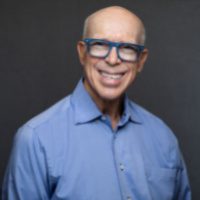
Herb Shear is the Chairman of the Shear Family Office and G2 Reverse Logistics. Herb was formally the Executive Chairman and CEO of GENCO. Herb joined GENCO in 1971 and became the family’s third generation involved in the logistics business. Herb successfully led the company’s growth to employ over 12,000 teammates. The growth was accomplished through a strategy of organic growth and strategic acquisition. The companies service offering included transportation management, freight brokerage, distribution and fulfillment management, and reverse logistics. Herb is the first recipient of the Reverse Logistics Association’s Lifetime Achievement Award. He is a past recipient of the Council of Supply Chain Management Professionals’ Distinguished Service Award, the association’s highest honor to an individual who has made significant, career-long contributions to the supply chain management and logistics professions. Herb is also a past recipient of the Syracuse University Martin J. Whitman School of Management’s Salzberg Medallion, awarded annually to an outstanding practitioner, advocate, academician or researcher in the field of transportation, distribution and logistics management, and to companies for pioneering ideas and policies that have reshaped the industry. Herb holds a bachelor’s degree in Finance and completed post-graduate studies in Business Administration from Southern Illinois University. He has also completed Executive Entrepreneurial and Leadership Programs at Stanford University, Carnegie Mellon University and Northwestern University. He serves on the Board of Directors for the University of Pittsburgh and The Pittsburgh Foundation. Connect with Herb on LinkedIn.
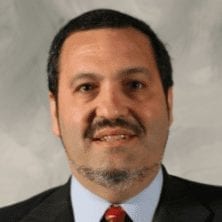
Tony Sciarrotta serves as Executive Director of the Reverse Logistics Association. He was nominated and selected by the Board to serve as the Executive Director on August 1, 2016. Since Mr. Sciarrotta had been an active member serving in committee leadership of Reverse Logistics Association since 2005, he had also served on the Board of RLA from 2005 to 2012 while employed at Philips Consumer Lifestyle as their Director of Sales & Marketing. So it was a simple decision for the selection team at RLA to approve Mr. Sciarrotta. Since his experience, qualifications and service to RLA was more than substantial to meet the requirement that was needed as the next Executive Director. Mr. Sciarrotta has held a variety of sales and marketing positions in the consumer electronics industry for over 35 years, most recently as the President of Reverse IT Sales & Consulting. Tony brings so much experience to the RLA team, including 25 years at Philips Consumer Lifestyle. His background helped prepare him for a developmental role as director for returns management activities, and in 1998 Tony was assigned to create and manage a cross functional department to reduce returns and their associated costs. He was successful at implementing effective returns policies and procedures with a variety of dealers, and in 2005, Tony assumed responsibility for maximizing asset recovery of all returned consumer goods. Tony has specifically targeted best avenues for reselling returned goods at the model level, by using tools developed with finance support. In 2013, after establishing best-in-class results for returns in the consumer goods industry, Tony retired from Philips and now sits on various committees and industry groups. Learn more about the Reverse Logistics Association here: https://rla.org/
Hosts
Additional Links & Resources
WEBINAR- State of the Supply Chain Report – Priorities for Building Resiliency in Your Supply Network
